 Sign in
Sign in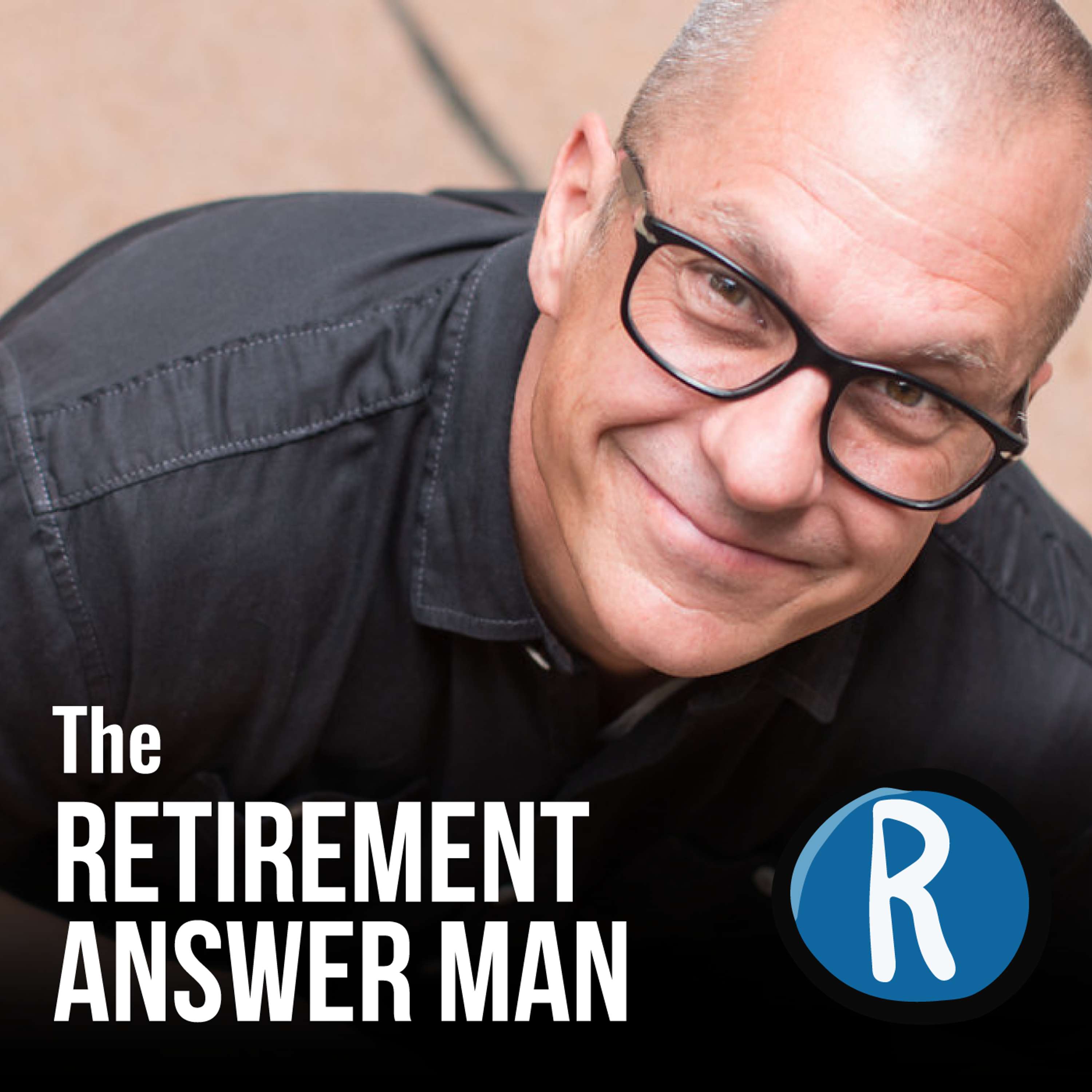
Education
Business
Roger Whitney, CFP®, CIMA®, RMA, CPWA®
A top retirement podcast. Roger Whitney, CFP®, CIMA®, CPWA®, RMA, guides you on how to actually do retirement well financially and personally. This retirement podcast isn't afraid to talk about the softer side of retirement. It will teach you how to retire with confidence. Two-time PLUTUS winner for best retirement podcast / blog and the 2019 winner for best financial planner blog. This retirement podcast covers how to create a paycheck, medicare, healthcare, Social Security, tax management in retirement as well as retirement travel and other non-financial issues you'll need to address to rock retirement. Retirement isn’t an age OR a financial number. It’s finding that balance between living well today and feeling confident about your retirement. It’s about gaining more freedom to pursue the life you want. Join the rock retirement community at www.rogerwhitney.com
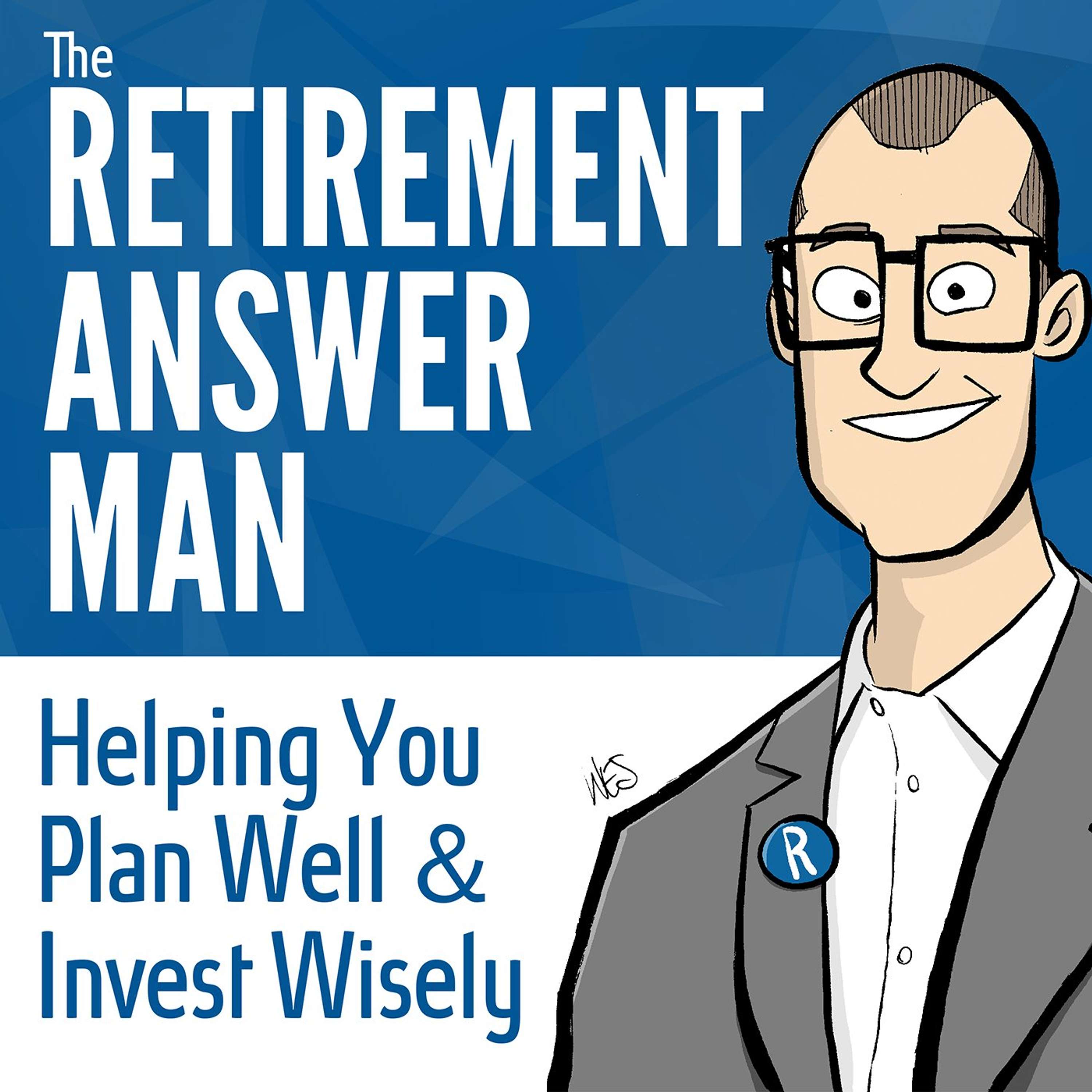
#173 - Investment Risk Management for Regular People
Get ready for part three of our Retirement Investing series. On this week’s episode of the Retirement Answer Man, we’ll talk about risk management, types of risk to watch out for, and why the common approach to managing risk might not be a good fit for you. This one will be a lot more technical than our previous two shows, so get ready to get your geek on! You can’t get something from Nothing As my mother always said, “You can’t get something from nothing.” This rings true especially in the world of investing. You can’t expect to reap the rewards of your investments unless you are willing to give up something. For most that sacrifice comes in the form of risk. All investing has risks and the better you understand those risks and know which are worth taking, the better prepared you will be to invest wisely for your retirement. Stay tuned to get a glimpse of the different risks you might have to face. Diversify your portfolio to fit your goals Investment risk is very real, but if you are wise about how you invest your assets, you can reduce that risk. However, a diversified portfolio that eliminates risk might not help you meet your investment goals. It’s important that you become clear on what you want out of your retirement investments so that you can know how to diversify your assets in order to meet those goals. Join me in this episode of the Retirement Answer Man to hear my tips on how to create a good balance. Mainstream risk management might not be right for you Risk management is a topic we hear a lot about in our modern investing culture. There’s even a common method used to discern how much risk it too much. In this episode of the Retirement Answer Man, I'll discuss why I think the mainstream view of risk management falls short and how you can develop a balanced view that will help you achieve your retirement goals. Don’t listen to the Investment Professionals There is a huge disconnect between investment professionals and the regular person. Most people think of risk as losing money and are more concerned about what their investments can do for them to create their ideal retirement than they are about optimizing their portfolio. The professionals on the other hand look at risk management based on statistical factors in order to create an optimized portfolio. Often times an optimized portfolio has nothing to do with the life goals you and your family may have. In this episode, I dive into the thinking behind the professionals so we can figure out if the standard approach is right for you.OUTLINE OF THIS EPISODE OF THE RETIREMENT ANSWER MAN[0:30] You can’t get something for nothing.[0:45] In order to reap the benefits of potential investments, you have to be willing to give something up.HOT TOPIC SEGMENT[2:24] Markets are at an all time high and risk is being more sensationalized than ever before.[3:00] Mainstream Risk management.[4:00] Types of risk that are not talked about very often.[5:00] The Risk of Longevity.[6:00] The risk of Inflation.[6:45] Managing the boogie-man of risk.WHAT’S THAT MEAN SEGMENT[6:55] What is an index?[8:27} What is standard deviation?[12:08] What is a correlation?PRACTICAL PLANNING SEGMENT[14:00] “Between calculated risk and reckless decision making lies the dividing line between profit and loss.”[14:50] There is a huge disconnect between investment professionals and regular people.[16:55] 2 Major types of risk that we are affected by.[17:00] Risks can be reduced by the diversification of assets.[19:00] Systematic and Market risk. There is no way to eliminate these risks.[26:50] How do I know what my risk tolerance is?[27:00] The disconnect.TODAY’S SMART SPRINT SEGMENT[33:30] Figure out what the asset allocation is in your portfolio, and why.THE HAPPY LAB SEGMENT[34:28] I’m happy that we got through this discussion of risk. If you are having a hard time explaining something, hit the big points and tell stories.RESOURCES MENTIONED IN THIS EPISODE Contact Roger: http://www.rogerwhitney.com/retirementanswers/Roger’s retirement learning center: www.RogerWhitney.com/learnThe Retirement Answer Man Facebook page: www.Facebook.com/RetirementAnswerMan
37:1007/06/2017
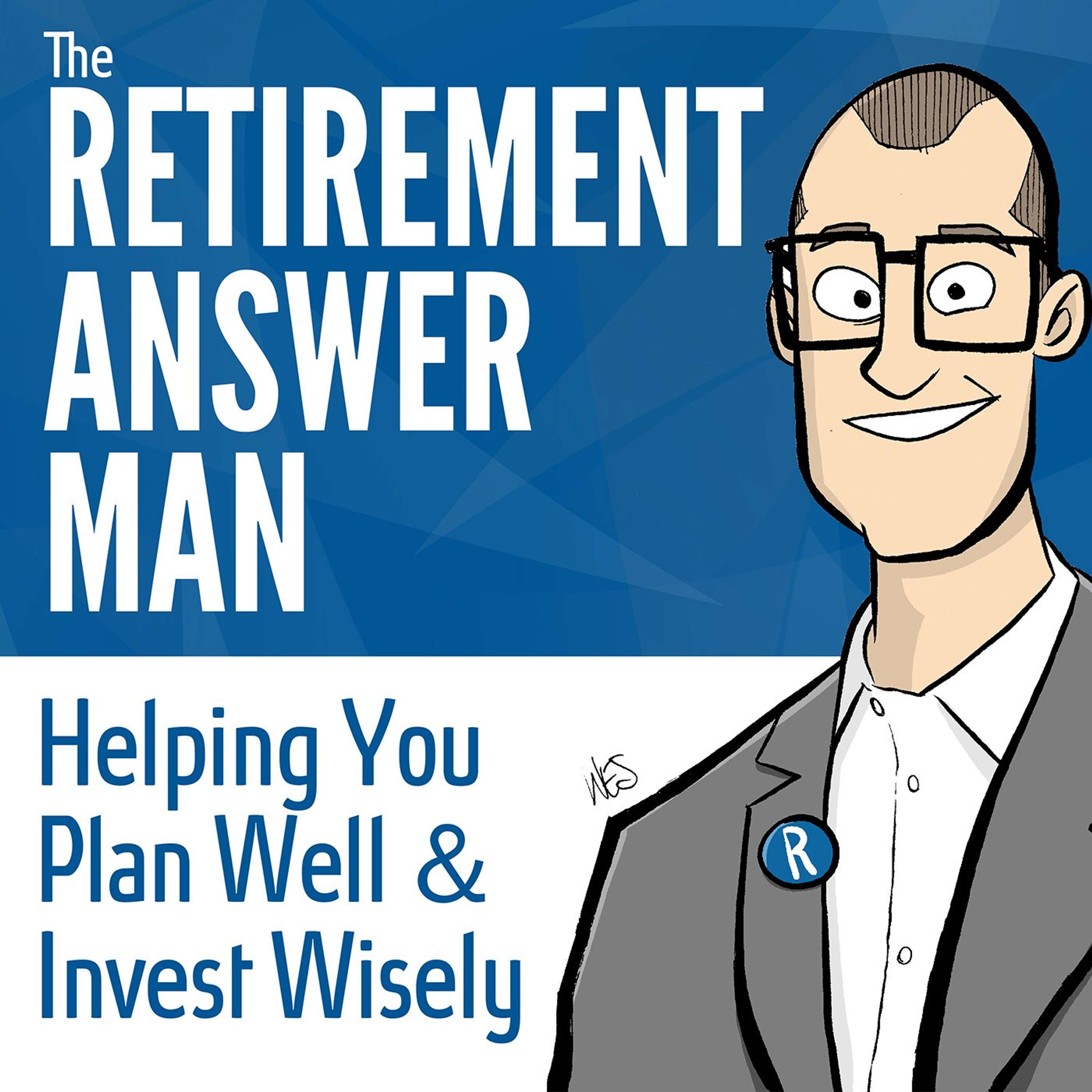
#172 - Building A Strong Foundation For Your Retirement Investments
Hello everyone and welcome once again to the Retirement Answer Man Show, I am your host Roger Whitney and I am the Retirement Answer Man. This show is part 2 in our series on investing. Today we will look at why maintaining a strong investment foundation is so important as you enter retirement and what steps you can take to build it. We’ll walk through three major types of investments, their average returns and how inflation can affect them. It may have more of an impact than you realize. Keep listening to hear the details. Investing during retirement is like riding into the wind When we were younger, working in our career, and contributing regularly to our investments, we enjoyed a bit of flexibility. Flexibility to adapt to market downturns or to our own bad investment decisions because we had a constant flow of money going into our investment plan. However, now that we are nearing retirement, that flexibility is fading and will eventually be gone. We will no longer be working a job that allows us to contribute to our portfolio and we will most likely be drawing on our investments in order to sustain the life we desire in retirement. This loss of flexibility makes it crucial to have a strong investment foundation when you enter retirement so that you can pivot your investments to work for you instead of you working for your investments. Listen to this episode to hear how to build a great foundation. Common asset classes, their returns, and what history reveals There are three main asset classes we think of when we talk about investing. Cash or Cash-like assets, Bonds, and Stocks or equities. More than likely your portfolio is made up of a collection of these three classes. Some are useful in generating income for your retirement and some are not. In today’s episode, I want to dive into each of them and look at the historical returns to get a rough idea of how we can expect each of these asset classes to perform in the future. In addition, I’ll factor in inflation and see where that leaves these common three. Make sure you listen to this episode to get my thoughts on the usefulness of each of these assets. Taking steps towards Retirement Success In last week's show, I challenged you to gather up all of your investment statements into one place so that we could work on them together.. Well, the time has come. Go grab those statements and get ready to analyze them with honesty and discernment so that you can begin taking steps towards building a foundation for a great retirement. Don’t over rationalize happiness! If you are anything like me, there are activities you do that make you happy. For me, it is mountain biking. The feeling of a good workout, the exhilaration of pushing my limits, and the peace of relaxing in nature brings me a lot of happiness. The other day I was planning on going out for a ride, but as the time approached I found myself trying to talk myself out if it. I came up with some pretty good reasons why I shouldn’t go but in the end, I went anyway. When I finished, I realized that the happiness it brought me was worth it and I should try to not over-rationalize it again. Do you have something that brings you joy, that you often talk yourself out of? Don’t! OUTLINE OF THIS EPISODE OF THE RETIREMENT ANSWER MAN[0:30] The weird science of Investing.[2:56] Building a good investment foundation.HOT TOPIC SEGMENT[4:42] Investing wisely when you are nearing retirement is more important than ever.[5:00] When you need your investments to work for you to generate the life you want, you need a specialist to aid you.[7:00] When you are entering retirement, you have less ability to absorb market fluctuation.[8:45] Without the ability to continue contributing to your investments, it might feel like you are riding against the wind.[11:00] Investment mistakes become a much bigger deal once you reach retirement. One small fumble can have huge impacts on your quality of life.[13:00] IT’s time to get your investments working for you!WHAT’S THAT MEAN SEGMENT[14:00] What is an asset class?[15:52] What are returns?[16:43] What are Capital Market Assumptions?PRACTICAL PLANNING SEGMENT[10:20] Roadmap of the coming weeks.[19:27] The Bruce Lee philosophy.[20:00} Three main asset classes and what history teaches us.[21:00] Cash-like investments.[22:55] Bonds.[26:30] Stocks or equities.[30:25] How does inflation change this?THE HAPPY LAB SEGMENT[34:08] Are things you enjoy doing that you talk yourself out of? You shouldn’t.TODAY’S SMART SPRINT SEGMENT[354:15] Take out your investment accounts that you gathered in the last episode. Look at them while asking the question “Is this weird science or does this investment get me where I need to go?”RESOURCES MENTIONED IN THIS EPISODEContact Roger: http://www.rogerwhitney.com/retirementanswers/Roger’s retirement learning center: www.RogerWhitney.com/learnThe Retirement Answer Man Facebook page: www.Facebook.com/RetirementAnswerMan
37:3131/05/2017
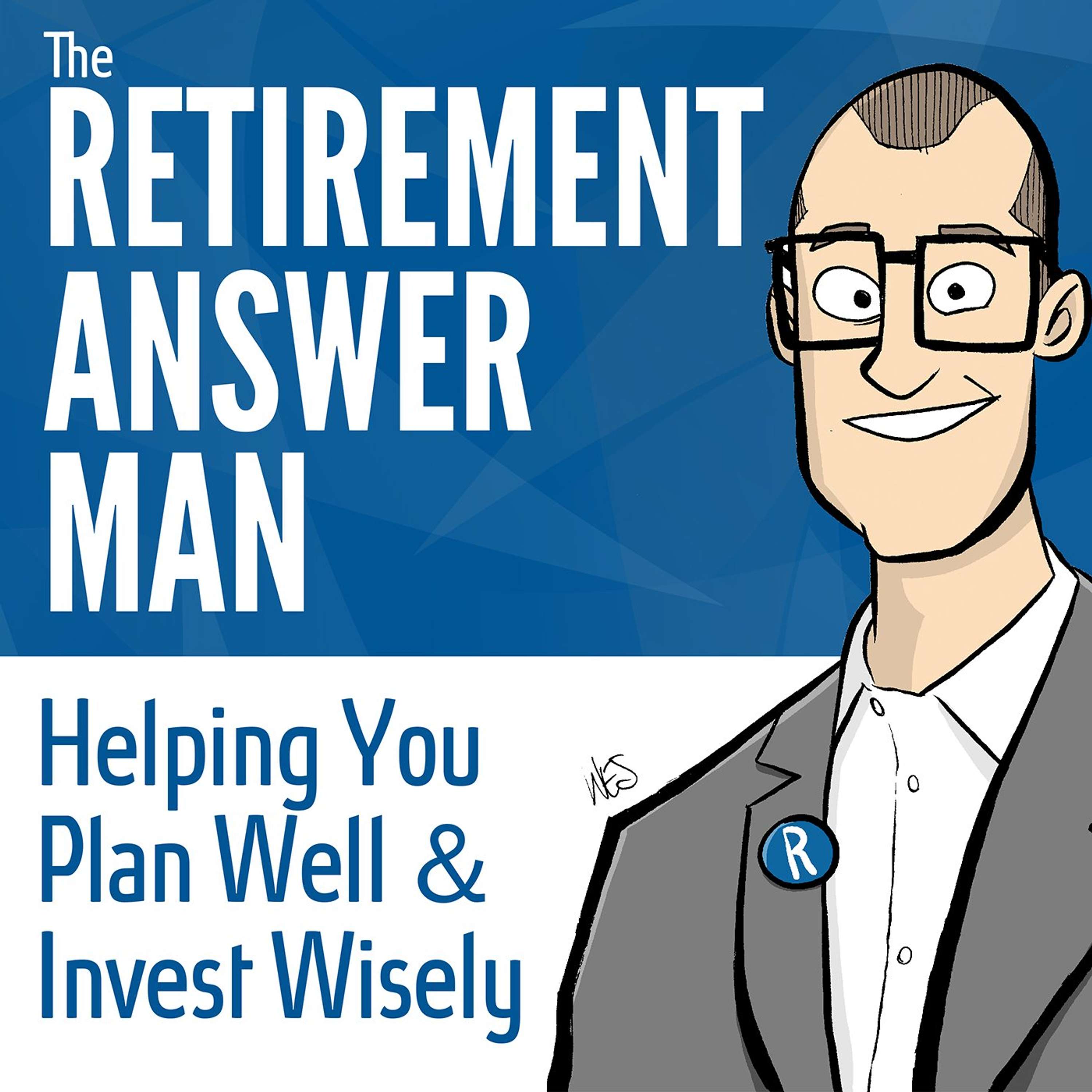
#171 - J. David Stein on How Not To Gamble Your Retirement Away
Welcome back to the Retirement Answer Man show. Today begins a new series on Investing. I am very excited about being able to offer you this series and I hope you will find some value that fits your situation. In this week’s episode, we are chatting with a great guy, David Stein. He has many years of experience in the financial investing world and has seen it all. Today he shares some simple advice to help you not gamble away your retirement but rather approach your investing with clarity and confidence. Join me as I unpack the knowledge he has to offer. Stay tuned as well for a helpful tool I have found that makes your internet experience virtually ad free. Here we go! The Difference between Investing, Speculating, and Gambling Investing, Speculating, and Gambling are very different things. While all three can make you money, Speculating and Gambling have a much higher possibility of costing you your retirement. Our special guest today is David Stein, a former financial adviser and the host of the Money For The Rest Of Us podcast. David knows the risks that are inherent in investing, he worked through the 2008 market crash and was able to come out the other side on top. His mentality when it comes to investing later in life for retirement is to take a more passive approach. When you were young and frequently contributing to your investments was the time to have riskier investments, but now may not be the best time to take those chances. Rather, you should make your investments work for you to generate the life you want. David walks through a few questions to consider when investing to determine what a healthy risk level may be. Make sure you listen to this episode to hear this fantastic conversation. Marketplace trends and how to adjust to them The Marketplace has trends, and David Stein says that understanding these trends and recognizing them is key to investing. If we are aware of what the markets are doing and what they might do in the future we can make educated decisions instead of gambling on the unknown hoping for a favorable outcome. Make sure you listen to this whole episode to hear David’s helpful tips on how to avoid being a gambler. Moderating activity as you age to safeguard your happiness I was recently out mountain biking and having not done it in a while I was taking it slow. I avoided a few challenging routes until I felt comfortable in my abilities. When I finally attempted to traverse a challenging section, I crashed hard and banged myself up! Now I could have let that discourage me from going riding again, but instead, I went out again and moderated the risk by taking it slow. If you can do this in all areas of life as you get older, you will feel empowered, capable, and happy. Easy tool to keep your internet browsing ad free I came across a tool the other day that you can add to your web browser. It will blocks ads from showing on the web pages you visit. I am currently looking at the homepage of Yahoo Finance and it’s telling me it is blocking 44 ads. WOW! I can finally find what I am looking for without the distraction of ads and this may help me save a bit of money as well. I’ll tell you all about it in this episode. OUTLINE OF THIS EPISODE OF THE RETIREMENT ANSWER MAN[0:31] When my mother died, I took my inheritance and bought my first investments[2:00] Your investment mindset needs to change when you near retirement[3:00] It’s time to stop accumulating wealth and start making that wealth work for you[3:30] Our special guest David SteinHOT TOPIC SEGMENT[4:47] Your internet experience[5:00] Adds are pervasive and companies are great at tracking your activity.[6:40] Adblock will automatically block ads on the sites you visitPRACTICAL PLANNING SEGMENT[8:36] Conversation with David Stein[10:25] Investment presentations[11:47] Difference between Investing, Speculating, and Gambling.[16:53] Fundamental questions to consider when investing[21:25] Trends in the markets and adjusting your risks to fit them[22:00] We should balance a generational view of our investing with a lifetime view[24:40] Pros and Cons of using an active manager[31:50] How to be an investor instead of a Speculator or GamblerTHE HAPPY LAB SEGMENT[34:45] Learn to moderate your activities as you get older. Don’t stop doing just find a healthy balanceTODAY’S SMART SPRINT SEGMENT[37:30] Gather your investment accounts and organize them. Figure out how you are allocated. This will get you ready for upcoming steps in future shows.RESOURCES MENTIONED IN THIS EPISODEContact Roger: http://www.rogerwhitney.com/retirementanswers/Roger’s retirement learning center: www.RogerWhitney.com/learnThe Retirement Answer Man Facebook page: www.Facebook.com/RetirementAnswerManDavid’s podcast Money For The Rest Of Us
39:5624/05/2017
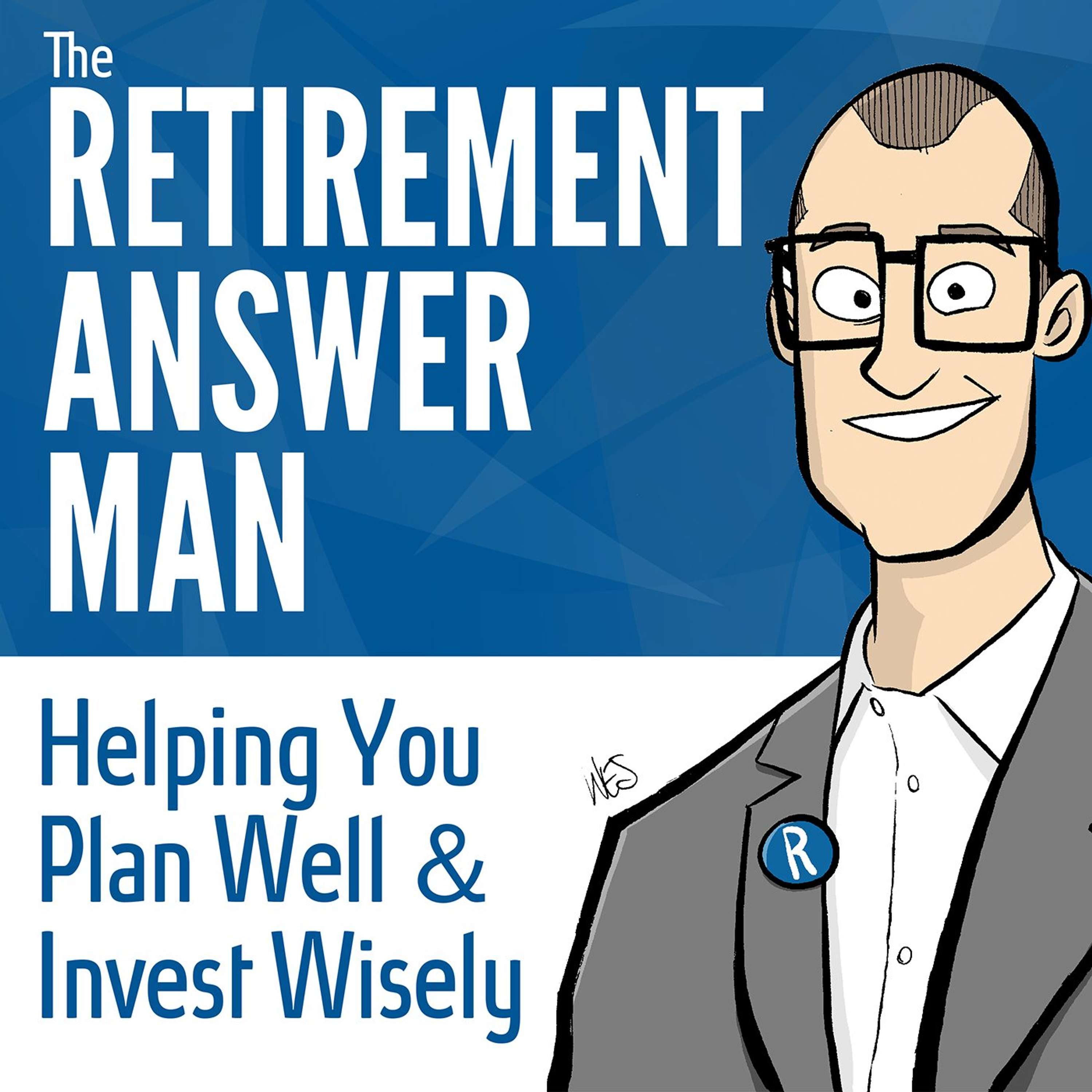
#170-Learn From Your Mistakes To Create A Great Retirement
Welcome back to the Retirement Answer Man Podcast. My name is Roger Whitney and I am the Retirement Answer Man. On this week’s episode, I will be answering several listener questions about dementia, HSA’s, and next level investing. I’ll also outline the road to “brokesville” so that you can steer clear of catastrophe in your retirement planning. Come along with me as we discuss how to learn from your mistakes to create a great retirement. Stay tuned to this episode to hear it all! The Road to “Brokesville” Not many people choose to be broke, but we often walk down paths that lead us straight to “brokesville” and a stressful retirement. In this week’s episode of the Retirement Answer Man, I’ll outline 7 major mistakes that can lead you down this road. Listen up and take notes, you’ll want to make sure you avoid these pitfalls and learn from your mistakes. Protect your retirement from dementia As we get older our memory isn’t always what it used to be. For some, it can go as far as full blown dementia. How can you safeguard your investments or your parent's investments from lapses in judgment or memory? Well, a listener wrote in with this very question. I’ve got some practical tips for him to protect the security of his family's investments. Make sure you listen to this episode to find out how. Work on your strengths, delegate your weaknesses I’m sure you have heard it said, “Identify your weaknesses and work on them.” This is often a good idea in order to grow as a well-rounded individual, but in the area of retirement I say work on your strengths and delegate your weaknesses. Our strengths are what make us happy and keep us feeling fulfilled while our weaknesses often times do the opposite. If you can find someone who is strong in areas in which you are weak and delegate to them, you will find yourself feeling happier and more optimistic about your future retirement. Ask yourself hard questions to protect your retirement. This week I challenge you to have a hard conversation with yourself. Walk through each of the steps to “brokesville” and ask yourself if they are true of you. You may find that you are making some of these mistakes right now. Face the hard truths and make the changes necessary to build a better future. Make sure you listen to this entire episode of Retirement Answer Man to hear what to avoid. OUTLINE OF THIS EPISODE OF THE RETIREMENT ANSWER MAN [0:29] Looking back in life on our mistakes.[1:30] Life is messy.[1:30] Planning for retirement is like riding a bike.HOT TOPIC SEGMENT [3:47] The road to “brokesville.” The 7 biggest mistakes.[6:03] Buying a big house.[8:13] Taking an 8-year car loan.[9:00] Flawed investment strategy.[10:18] Paying Uncle Sam too much.[11:11] Getting divorced.[12:28] Keeping up with the Joneses.[14:00] Cosigning on a loan.PRACTICAL PLANNING SEGMENT [17:00] Listener questions.[17:00] How do I lovingly help my elderly parent with dementia let go of managing his investments.[27:43] Is an HSA right for me?[30:00] Advanced savings steps.THE HAPPY LAB SEGMENT [33:16] Work at your strengths and delegate your weaknesses.TODAY’S SMART SPRINT SEGMENT [36:00] Walk through the 7 mistakes that lead to “brokesville” and see which ones you need to work at avoiding.RESOURCES MENTIONED IN THIS EPISODE Contact Roger: http://www.rogerwhitney.com/retirementanswers/Roger’s retirement learning center: www.RogerWhitney.com/learnThe Retirement Answer Man Facebook page: www.Facebook.com/RetirementAnswerMan
38:0917/05/2017
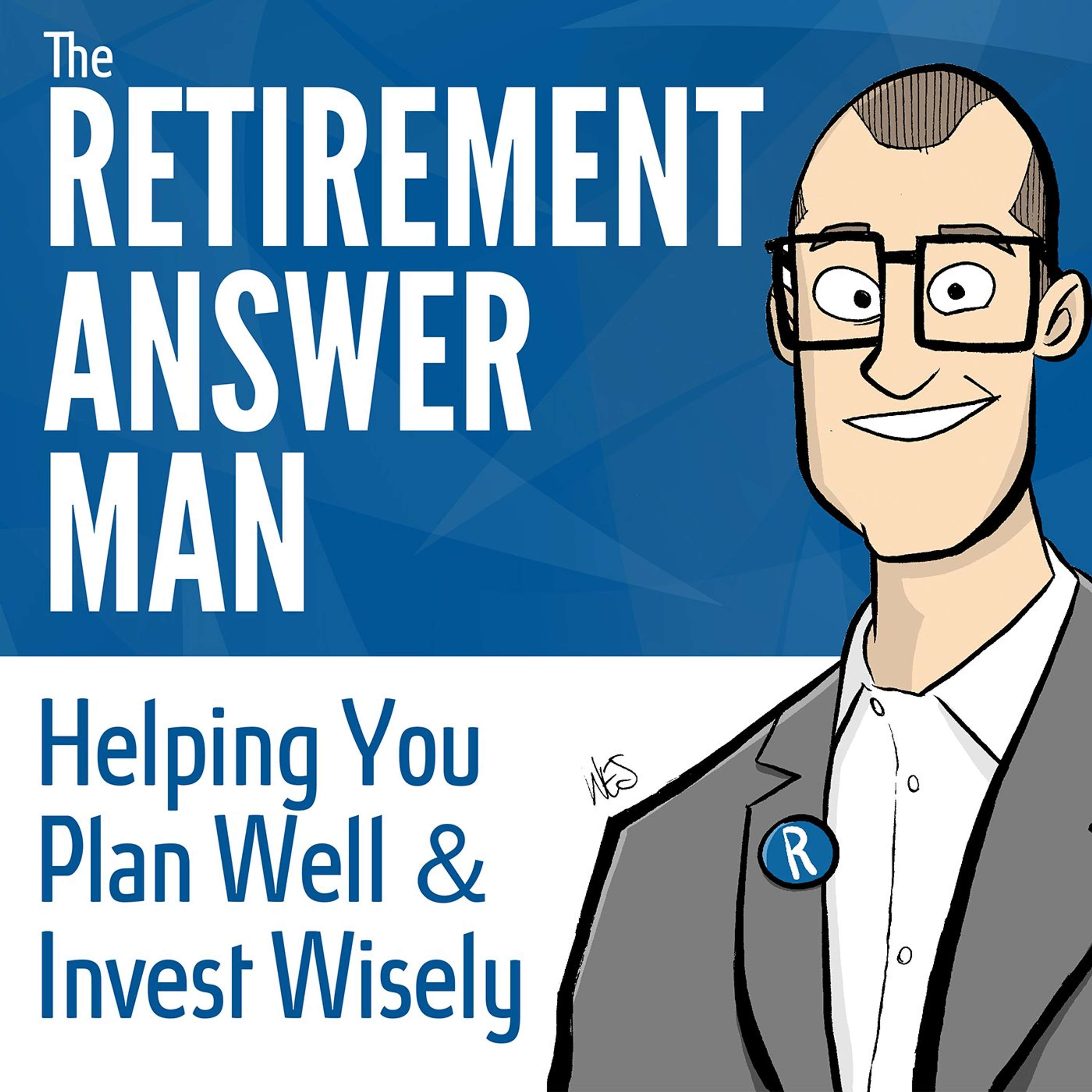
#169 - A Business Exit Strategy That Creates Family Legacy With Randy Long
I love being an entrepreneur! Not only does it give me an avenue to exercise my creativity it gives me the flexibility to live the life I desire, work the way I want to work, and build a legacy for my family. The value of your business can be put into three categories: Cash flow, Lifestyle, and Enterprise value. On this week’s episode of the Retirement Answer Man, we will be talking with my special guest Randy Long about building your business in a way that grown its enterprise value. Having a strong enterprise value will enable you to create a successful business exit strategy that will help you create a lasting legacy for your family. Stay tuned to hear Randy’s helpful tips. Your internet provider might be selling you out! We all know that the internet can be dangerous, but now it might become riskier than ever. Congress recently lifted restrictions that required your internet provider to get your permission before selling your data. So now your browsing history, online habits, and who knows what else might be up for grabs to the highest bidder. There’s no doubt this could pose a security threat to people like me who work with very sensitive financial information. However, there is a solution, a way you can protect your data from the prying eye. Make sure you listen to this episode to hear how I keep my info secure online. Extracting enterprise value with Randy Long Today’s guest is Randy Long a certified exit planner and CEO of Long Business Advisory LLC. He has patented a Braveheart Planning Process where he works with entrepreneurs to help them maximize the value they can get from their business. In our conversation, we will discuss how to transition from building a business to building a legacy and how to structure your business to be appealing to buyers. There are some great tips that you won’t want to miss so stay tuned. Quantity time might be better than Quality time I just returned from a vacation with my wife in the Caribbean. We were gone for 8 days and at times that felt a bit too long and we laid around a lot without much to do. However, it afforded us time to connect and have some important conversations. We’ve all heard the term “Quality Time” and while I agree that you need to seek quality in the time that you have I also believe that you can’t have Quality time without Quantity time. Quantity time gives you the flexibility to create moments that you otherwise wouldn’t have been able to. Creating a Business Exit Strategy is an important step towards the future but it won’t bring you lasting joy. Quality relationships with the ones you love will bring you that joy! Listen to this episode to hear more of my thoughts on creating a happy life. Markets are at an all-time high, it’s time to assess your investment risk The markets are continuing at a record high since the election. Things are sunny in the investment world. This is the time when you need to make repairs and tweaks to your investment plan. Don’t wait for a drop in the market to reassess your risk tolerances, do it now while everything is good. If you need help with this assessment I can lend you a hand. Listen to this episode to hear how. OUTLINE OF THIS EPISODE OF THE RETIREMENT ANSWER MAN [0:26] I love being an entrepreneur.[1:43] Three ways you get value from a business you own.[2:18] What is enterprise value?HOT TOPIC SEGMENT [4:43] My Vacation to the Caribbean.[5:54] Your Internet service provider can legally sell your data.[7:28] What is a VPN and why should I use one?PRACTICAL PLANNING SEGMENT [9:28] There’s a difference between Knowledge and Wisdom.[10:10] Why do you build a business?[13:00] Transitioning from building your business to building a legacy.[16:10] Moving towards exiting your business.[19:10] Things that make a business appealing to buyers.[22:10] Making your business valuable apart from the cash flow.THE HAPPY LAB SEGMENT [30:45] Quantity time is better than Quality time.TODAY’S SMART SPRINT SEGMENT [33:29] Markets are at an all-time high which means it is time to assess your investment risk.RESOURCES MENTIONED IN THIS EPISODE Contact Roger: http://www.rogerwhitney.com/retirementanswers/Roger’s retirement learning center: www.RogerWhitney.com/learnThe Retirement Answer Man Facebook page: www.Facebook.com/RetirementAnswerMan The BraveHeart Exit:: 7 Steps to Your Family Business Legacy Built to sell: Creating a Business That Can Thrive Without YouCloak Keep yourself safe with this Virtual Private Network tool
35:1410/05/2017
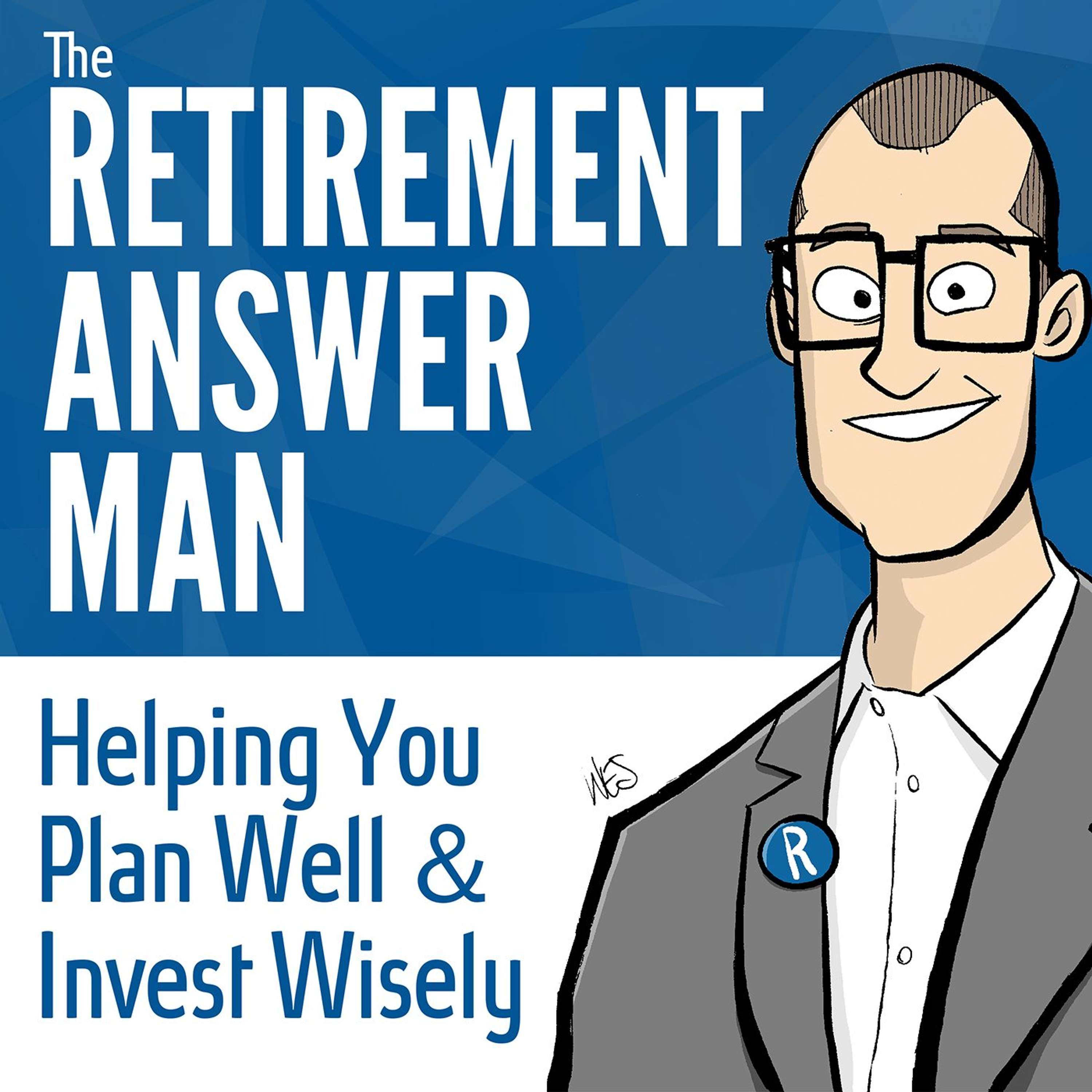
#168 - Using Your HSA To Slay The Health care Dragon
Hello everyone and welcome! I am Roger Whitney the Retirement Answer Man and today on the show we are talking about the Healthcare Dragon and the threat that it poses to your retirement as well as the lives of your family. It’s no surprise to hear that health care costs are rising, each year this beast continues to grow and unless you do something to combat it now, you might be in for a rough retirement. Tune into this episode to get some actionable tips to arm yourself against the Healthcare Dragon. The Healthcare Dragon might burn up your retirement. It’s growing, it’s hungry, and it eats retirement savings for breakfast! A recent survey showed that the average couple retiring in 2016 will need approximately $260K for health care costs during their retirement years. That’s a lot of money and can bite a sizeable chunk out of your retirement savings. If we are not proactive, our retirement savings could fall prey to this Healthcare Dragon. We have the perfect weapon to combat this threat, the Health Savings Account. Unfortunately, in our modern world, this sword is a bit dull. Join me on this episode of Retirement Answer Man as I discuss some practical ways to sharpen your HSA sword and defend you family and your retirement. 80% of people don’t plan for long-term health care. Our special guest Margie works with people who are in need of long-term health care in their later years, whether that be because of an accident or simply old age. She walks families through the challenges of long-term care and has seen how being prepared can save you a lot of heartache. She estimates that 80% of her clients are unprepared for long-term care. Having no plan puts stress on the individual as well as on the family and friends. If you want to avoid stress and have confidence in the midst of a health crisis, listen to this episode to hear Margie’s suggestions. Why you MUST understand your healthcare plan. If old age strikes or you are injured and in need of long-term health care there will be many things that need to be paid for. Some will be covered by your medical plan, some won’t. Being knowledgeable of your plan and knowing what it covers will help you prepare for the possibility of long-term care, giving you and your family peace of mind. Our guest Margie walks us through many of the aspects of health care that may not be covered by your plan. Listen to this episode to hear them all. Invest in yourself for a secure retirement. With health care during retirement requiring such a sizeable amount of money, it is wise to start preparing now. Starting an HSA or maximizing your current HSA can work wonders but that is not the only thing you can do. Investing in your health and your relationships can minimize the need of future long-term care and give you a strong community of people to turn to in your time of need. Click play on this episode of Retirement Answer Man to learn how to prepare. OUTLINE OF THIS EPISODE OF THE RETIREMENT ANSWER MAN [0:29] The Live Dragon of long term Health CareHOT TOPIC SEGMENT [2:20] Dragon slaying weapons[3:16] How a savings account works.[4:41] Our HSA sword is dull.[6:17] Steps we can take to improve our HSA.PRACTICAL PLANNING SEGMENT [9:37] Conversation with Margie about helping families navigate long-term care.[11:09] 80% of Margie’s clients have no long term care plans in place.[12:05] The benefit of thinking ahead.[15:15] The potential dangers of living independently.[21:35] Preparing for retirement and long-term care if you have no family.[23:17] The importance of understanding your medical plan.[26:07] How do people generally pay for long term care?[28:27] Do long-term care policies make the transition easier?TODAY’S SMART SPRINT SEGMENT [32:05] Look at your HSA. What is the maximum you can contribute and can you make that happen? If you don’t have an HSA, give some thought as to whether or not it would be a smart move for you and your family.THE HAPPY LAB SEGMENT [32:56] The average couple will need $260K for health care costs in retirement.[33:33] Take small steps to get an HSA if applicable, invest in your health, and invest in your life to make you feel more empowered to face the future.RESOURCES MENTIONED IN THIS EPISODE Contact Roger: http://www.rogerwhitney.com/retirementanswers/Roger’s retirement learning center: www.RogerWhitney.com/learnThe Retirement Answer Man Facebook page: www.Facebook.com/RetirementAnswerMan TWEETS YOU CAN USE TO SPREAD THE WORD Using Your #HSA To Slay The #Healthcare Dragon #RetirementAnswerMan The #Healthcare Dragon might burn up your #retirement #RetirementAnswerMan 80% of people don’t plan for long-term #healthare #RetirementAnswerMan Why you MUST understand your #healthcare plan #RetirementAnswerMan #Invest in yourself for a secure #retirement #RetirementAnswerMan
35:4903/05/2017
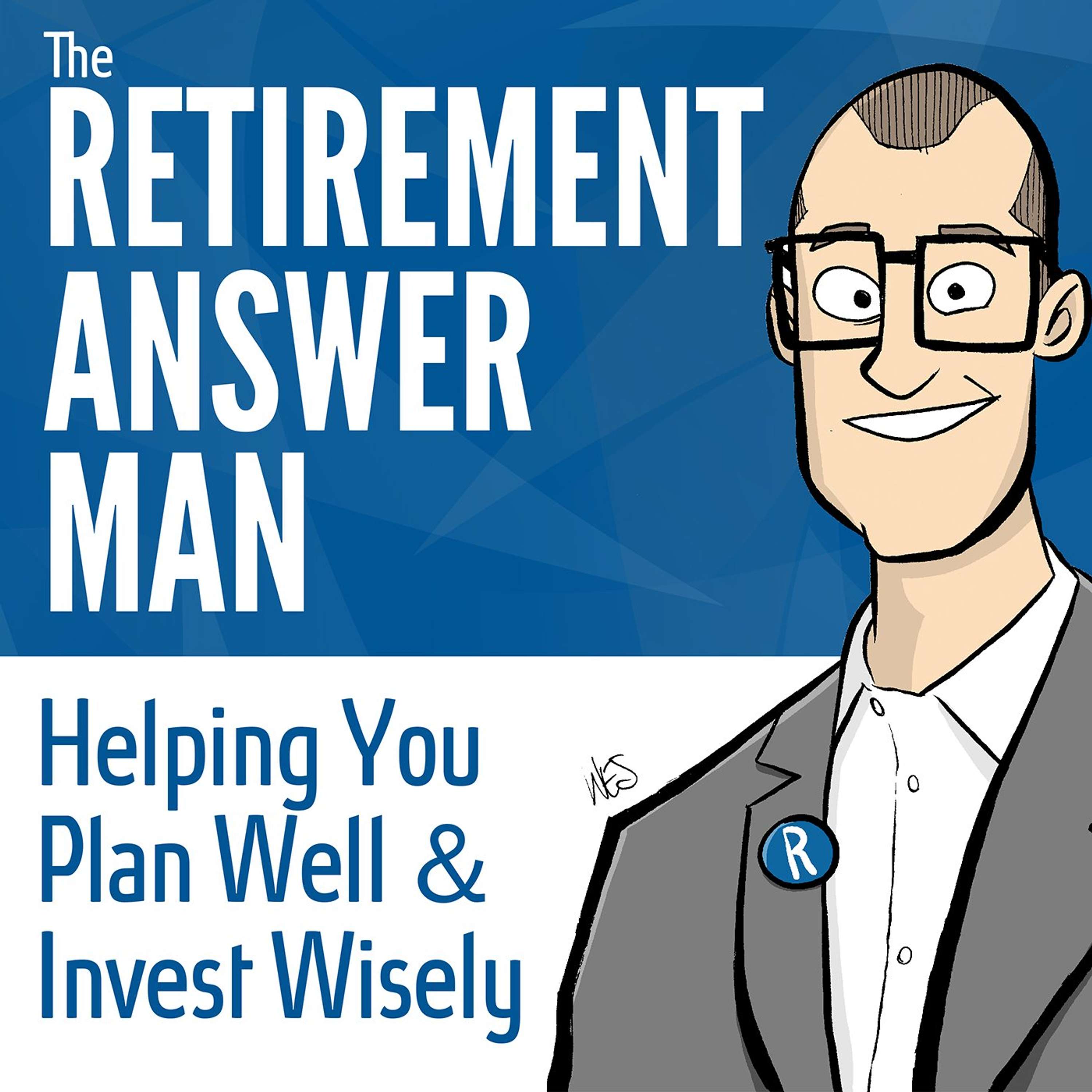
#167 - Should I use Social Security Income To Fuel My Retirement Investments?
Welcome to another episode of the Retirement Answer man, as always I am Roger Whitney the retirement answer man. This week's show is a hodgepodge of great actionable content that might give you the edge you need in your retirement plan. We’ll discuss why alcohol abuse is a problem for many people in retirement and lay out the reasons why. Listen as I answer listener questions and give my tips for investing your Social Security income. Stay tuned to hear it all! Alcohol abuse is a huge problem in retirement. Studies are showing that Alcohol abuse is the number one substance abuse problem for older adults. As Billy said in this episode, retirement almost turned him into an alcoholic. Alcoholism is not an inescapable fate. There are several reasons why one might abuse alcohol once retired. In this episode, I will talk about 6 factors that contribute to retirees drinking too much. Don’t miss this episode of the Retirement Answer Man. Refinancing your home can be a benefit and a curse. Noni wants to know if it would be a good idea to refinance her home and take money out to pay off credit card debts and put her kids through college. Although refinancing a home can be a smart move and paying off debt is almost always a good idea, there are situations where you should use caution. I’ll share my ideas with Noni as to whether or not her situation would benefit from a refinance and borrowing against her house. Stay tuned to hear my warnings so you don’t make a potential mistake. Does taking Social Security early mean more money to invest? Conventional wisdom would say that investing money annually at a good interest rate will bring you out on top. This is not always the case. On this episode of the Retirement Answer Man, Ruth asks for my thought on taking Social Security early in order to invest it. Her calculations show that she will reach age 80 with substantial financial growth having invested her Social Security instead of spending it. Stay tuned to see me run her figures through an investment forecast report taking into consideration the historical changes in the market. You might be surprised at the outcome. A plan is no good if you don’t live long enough to retire After exercising on Sunday, my back became extremely sore and stiff. It has been a struggle to go about daily life. Yet feeling this discomfort makes me thankful that I do not deal with an illness that puts me in a constant state of pain. The condition of our bodies is important. We cannot hope to live a full life if we are neglecting our health. Join me in this episode of the Retirement Answer Man to discuss listening to your body and doing what is best for it. Your retirement will thank you. OUTLINE OF THIS EPISODE OF THE RETIREMENT ANSWER MAN[0:29] Retirement almost turned billy into an alcoholic.[2:05] Stay tuned for listener questions.HOT TOPIC SEGMENT[3:35] Alcohol abuse is a big problem with older adults.[7:15] The quality of your marriage will contribute heavily to your happiness in retirement.PRACTICAL PLANNING SEGMENT[8:46] Should I refinance my house and borrow money for credit card debt and children’s educations?[4:35] Should I take social security and invest it?[19:42] Investment projection reports.[25:43] How safe are the password managers?[28:48] Is retirement is all about math?TODAY’S SMART SPRINT SEGMENT[3:29] Check the interest rates on all of your loans, house, car, credit cards. See if it would be prudent to refinance them.THE HAPPY LAB SEGMENT[31:22] Take care of yourself. Listen to your body.RESOURCES MENTIONED IN THIS EPISODE Contact Roger: http://www.rogerwhitney.com/retirementanswers/Roger’s retirement learning center: www.RogerWhitney.com/learnThe Retirement Answer Man Facebook page: www.Facebook.com/RetirementAnswerManSara’s book A Couple’s Guide to Happy Retirement.
33:5426/04/2017
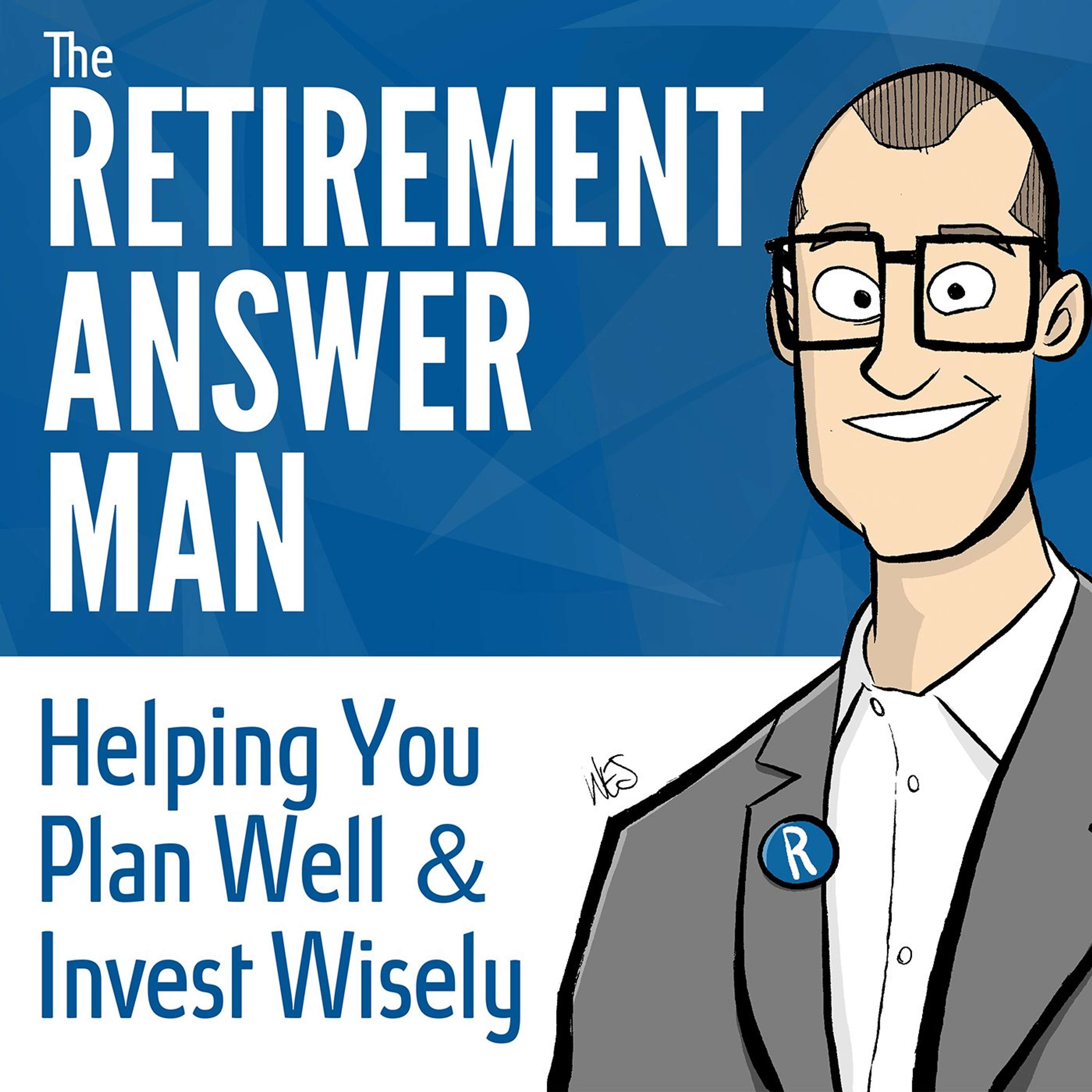
#166 Holistic Retirement Planning
After my last knee surgery, my doctor told me that I should NEVER AGAIN attempt to run like I have previously. That’s when it hit me, my best days physically are behind me. That was a sobering thought and a bit depressing. Thinking like this has a tendency to affect how we live and can very easily seep into every aspect of life; it could affect how I relate to my family, do my job, or how I view retirement planning. When it comes to retirement...are our best days behind us? Are we approaching a time where we are unproductive, broken, and tired? Dan Miller doesn’t think so! Listen to this episode of the Retirement Answer Man to hear why and to hear my guest Dan explain how to start living a fulfilling retirement now. We’ve got retirement planning all wrong. With the current life expectancy and medical care, we will live longer and healthier in retirement than ever before. This is a great thing but it presents a problem. A problem known as the retirement crisis where many Americans will not be able to save enough for retirement. Because of this very real issue, our cultures main goal in retirement planning is to save and invest and hopefully have enough when we retire. Doing so is stressful and can cause our relationships to suffer. When all we can think about is working as much as possible to provide for the future, we forget to think of the present. When retirement arrives, you are worn out and may have damaged your relationships to such an extent that there is not much to live for. Dan Miller, my guest on this episode, thinks there is a better way to approach retirement planning. Don’t miss it! Why wait for Retirement to start doing what you love? Dan Miller believes that a retirement of ease and relaxation is short lived. Even if you have managed to save enough to lounge on a beach, you may be lacking in purpose. Our purpose is what drives us, what keeps us breathing. If we have built great financial assets and are able to live it up but don’t have a purpose, life becomes depressing. Dan is convinced that the key to a happy retirement is to fill it with financially productive endeavors that bring you joy and ignite your passion. Having these sources of income will relieve much of the stress we often feel in the years leading up to retirement and can save us from the heartaches of misplaced priorities. But why wait until you retire to find those things that make you happy AND earn you money? Dan says we shouldn’t wait, and in this episode, he gives a simple framework to help you find your passion and start pursuing it now. Retirement isn’t a time, it’s a lifestyle. Our culture thinks of retirement as a time when you are free of your lifelong career and hopefully have the financial assets to enjoy a lifestyle you couldn’t previously. While this is true in many cases, it doesn’t have to be. Dan Miller wrote a book entitled 48 Days to the Work You Love. Through this book, he teaches you how to find something that you are passionate about and turn it into a revenue stream. By making a switch from your current career to a job that fulfills you and that you work on your own time you can start living that retirement lifestyle now. Tune into this episode to hear Dan share stories of how people have done this. Holistic retirement planning gives you power. The binary view of retirement as a set time for which we have to plan and save can rob us of our joy and our ability to be creative. A holistic approach to retirement as a lifestyle gives you the freedom to pursue your dreams and passions and express your creativity. You could even start today. This does away with stringent and stressful retirement planning and gives you the ability to live. OUTLINE OF THIS EPISODE OF THE RETIREMENT ANSWER MAN [0:27] My best days are behind me! HOT TOPIC SEGMENT [3:06] The problem with retirement.[4:42] Our number one focus is on saving and investing.[5:35] The numbers don’t work. We can’t continue to think of retirement as a time of inaction.[5:49] Thinking of retirement in such a binary way stifles our creativity and ability to problem solve.[7:09] What resources do we have to solve this retirement crisis?[9:23] Most retirement advice you are getting falls short and limits your ability to create a great life. PRACTICAL PLANNING SEGMENT [10:16] Conversation with Dan Miller.[14:00] Why would you wait for retirement to start doing what you love to do?[17:45] If retirement is less of a date and more of a pivot into living your passion, how do you make that change?[20:32] Examples of people following their dreams.[25:11] You might have to change your expectations in order to do what makes you happy.[28:35] Going through the process and finding what you love gives you control of your life. TODAY’S SMART SPRINT SEGMENT [33:50] Listen to Dan Miller’s podcast. THE HAPPY LAB SEGMENT [34:30] We are more creative than we give ourselves credit for. Thinking holistically about life and retirement gives you back the power to create an awesome life. RESOURCES MENTIONED IN THIS EPISODE Contact Roger: http://www.rogerwhitney.com/retirementanswers/Roger’s retirement learning center: www.RogerWhitney.com/learnThe Retirement Answer Man Facebook page: www.Facebook.com/RetirementAnswerManDan Miller’s Site: http://www.48days.comDan Miller’s Podcast: http://www.48days.com/category/48-days-podcastDan’s book: 48 Days to the Work You LoveTWEETS YOU CAN USE TO SPREAD THE WORD #Holistic #RetirementPlanning #RetirementAnswerMan @DanMiller48daysWe’ve got #retirementplanning all wrong #RetirementAnswerMan @DanMiller48daysWhy wait for Retirement to start #doingwhatyoulove? #RetirementAnswerMan @DanMiller48days#Retirement isn’t a time, it’s a lifestyle. #RetirementAnswerMan @DanMiller48days#Holistic #retirementplanning gives you power. #RetirementAnswerMan @DanMiller48days
37:1919/04/2017
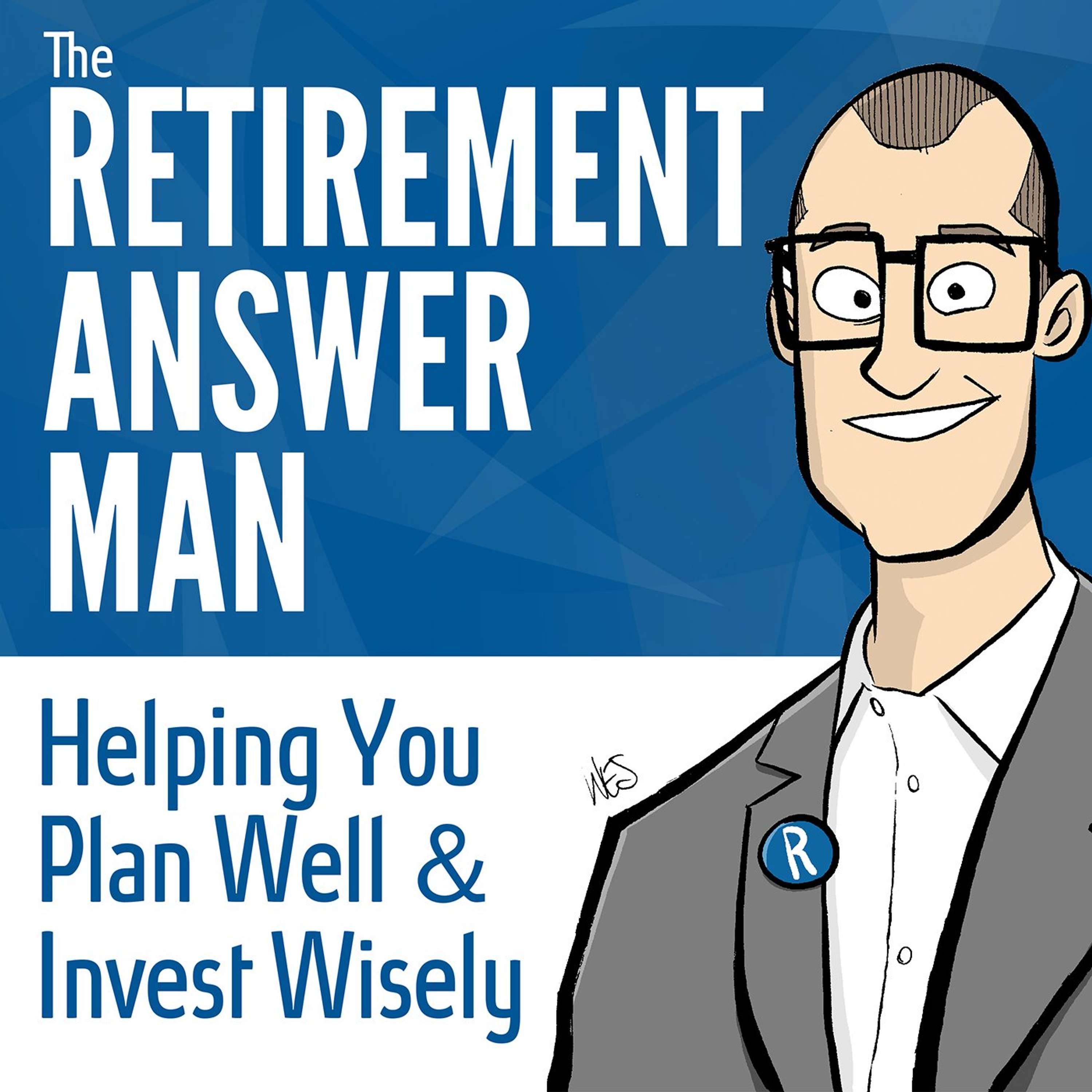
#165 - Retirement Crisis: Why Work You Love Might Be The Answer
Welcome to another episode of the Retirement Answer Man podcast. I am Roger Whitney the Retirement Answer Man and this weeks' topic is all about working during retirement. We all can agree that saving and investing are important but they often prove to be challenging. I believe there is another option a more fulfilling one. Work. On this episode, we will talk with Marc Miller, an author, and coach, about how we can structure our retirement to be both fulfilling and productive - and avoid the so-called retirement crisis altogether. Listen to this episode to hear Marc’s tips on working during retirement. You can’t save your way into a good retirement. It’s becoming clear that many Americans will not be able to save enough for retirement. The average American makes $50,000 per year, and with the cost of living in our economy, there is little to no room for retirement savings. This is what many are referring to as the “retirement crisis.” Is there another way or are we destined to live on the street? Marc Miller gives us hope in this episode of the Retirement Answer Man that there indeed is a way to have a great retirement by finding a way to work on your own terms at a job that you love. Stay tuned to hear how you can make the transition from your current career into your dream job. My goal is to never retire. Marc Miller doesn’t want to retire. He wants to live to the end of his life pursuing the things that make him happy and helping others do the same. He plans on doing this by pursuing a job that he can work on his own schedule. This will give him income late into his life as well as purpose and fulfillment. He figured out how to be his own boss and you can too. Listen to this episode to find out how you can avoid what many are calling the “retirement crisis.” The thing that fulfills you might be the answer to your retirement questions. If you are in the same boat that many Americans are and won’t be able to save enough for retirement, you’ll most likely need to have a job in retirement. The conventional full-time or part-time job can be taxing and deplete you emotionally and physically. A better option is to work for yourself doing what you love or find your dream job. But how can you find that thing you love? In this episode, I issue a challenge for the week that can help you identify what it is that you might pursue as an income generating activity in retirement. Listen to this episode to hear how. Are you your biggest cheerleader? I realized this last week that I tend to put myself down. I don’t give myself credit where I should and I belittle my abilities. Even though I have been doing this subconsciously, it still takes a toll on my motivation and how qualified I feel to accomplish my goals. I realized that I need to be my biggest cheerleader to encourage myself into greater opportunities and accomplishments. Are you your biggest cheerleader? Listen to this episode to hear more. OUTLINE OF THIS EPISODE OF THE RETIREMENT ANSWER MAN [0.27] About 40% of the US workforce has no retirement savings.[1.06] Is saving the only way to avoid this retirement crisis?HOT TOPIC SEGMENT[2.47] Saving and investing is not the only answer to the retirement planning question.[5.05] For many people, working during retirement will be a requirement.PRACTICAL PLANNING SEGMENT[9.10] Conversation with Marc Miller.[9.36] Marc’s goal is to NEVER retire.[13.28] How do I change things so that I can work on my own terms and generate more time freedom.[17.26] What skills do you want to continue to use and what skills do you want to leave behind?[18.13] The first step is self-awareness where you see whether or not your current lifestyle is meeting your needs and goals.[27.19] Marc’s book creates a framework to guide you through making a pivot towards working on your own terms.TODAY’S SMART SPRINT SEGMENT[32.48] What are you passionate about? What do you enjoy doing most? What gives you fulfillment? This week I want you to start thinking about these questions and come up with answers for them.THE HAPPY LAB SEGMENT[33.47] I tend to put myself down and I realized this week that I need to be my biggest cheerleader.RESOURCES MENTIONED IN THIS EPISODE Contact Roger: http://www.rogerwhitney.com/retirementanswers/Roger’s retirement learning center: www.RogerWhitney.com/learnThe Retirement Answer Man Facebook page: www.Facebook.com/RetirementAnswerManMarc Miller’s book Repurpose your Career TWEETS YOU CAN USE TO SPREAD THE WORD #RetirementCrisis: Why Work You Love Might Be The #Answer #retirementanswerman @CareerPivotYou can’t save your way into a good #retirement. @retirementanswerman @CareerPivotMy #goal is to never #retire. #retirementanswerman @CareerPivotThe thing that #fulfills you might be the answer to your #retirement questions. #retirementanswerman @CareerPivot
37:2412/04/2017
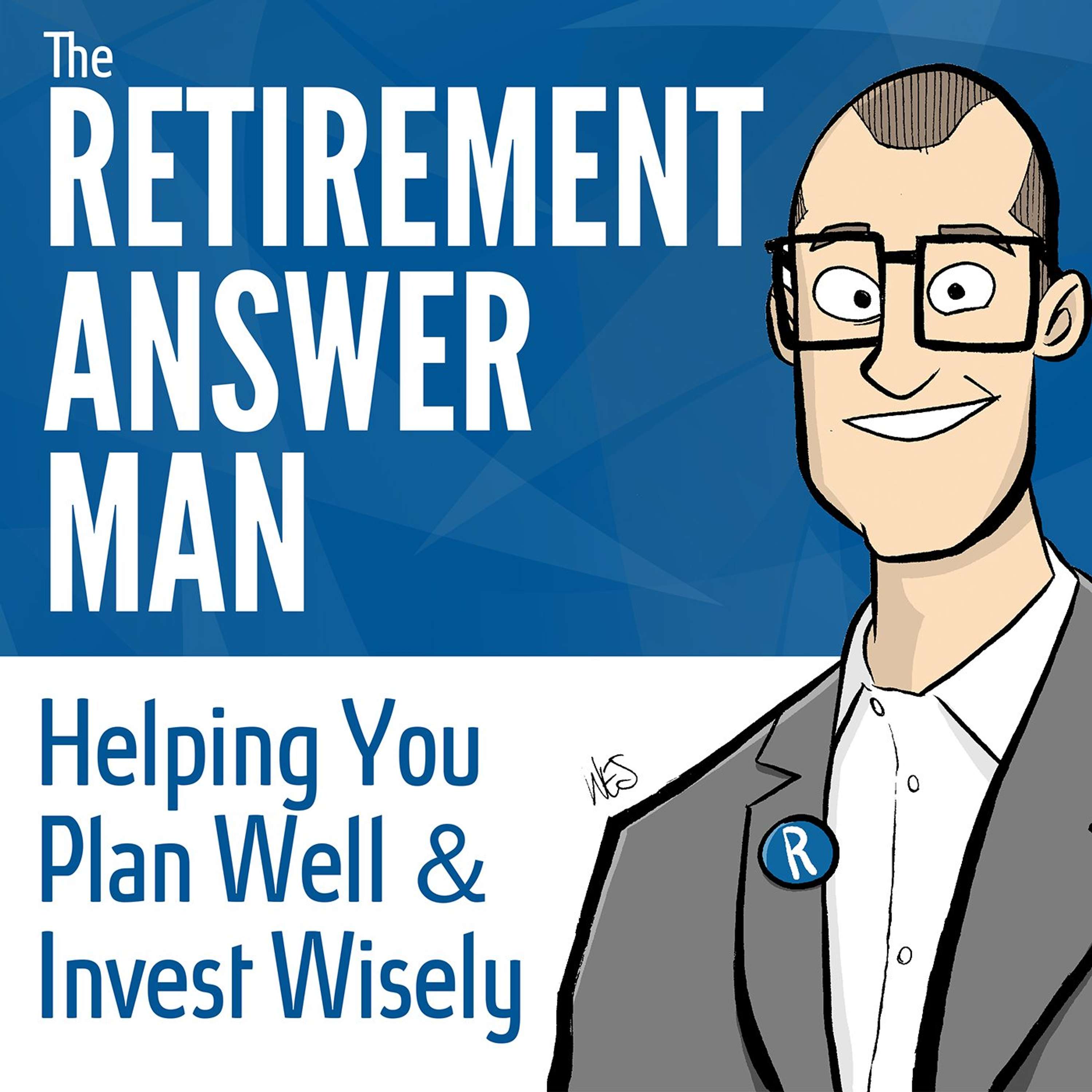
#164 - My adviser stole my money! A simple way to avoid investment fraud.
Last week I got a call from a good friend. His sister-in-law believes her financial advisor has been stealing from her. I offered to help them get to the bottom of this and figure out what exactly what has been happening. Investment risk is a very real threat in today’s world. Scam artists are everywhere and many of them are very good at appearing legitimate. There are several ways to research a potential investment or adviser that will give you insight into whether or not they are trustworthy. Join me in this episode to hear my tips on how you can be confident you are working with a trustworthy advisor or find out if your current advisor is not what he seems. Avoid the most common types of investment fraud. Investment fraud is very common. Many of us don’t know what to look for in potential investments to verify whether it is trustworthy or not. You may not understand how everything works and feel unqualified to assess the legitimacy of the investment. However, there are a few telltale signs that will tell you whether or not you should trust the investment opportunity or advisor. In this episode, I will explain 4 of the most common types of investment fraud and walk you through how to identify them. You don’t want to miss this! Simple ways to make sure your advisor won’t steal from you. It’s our worst nightmare, and for some of us, it has come true. Having your financial advisor, the one you have trusted with your money, steal from you can ruin your life. With so many different types of investment opportunities available today it is easier than ever to get scammed. How can you make sure the financial advisor you are considering is who they say they are and won’t steal from you? It’s actually quite easy. Stay tuned to this episode of the Retirement Answer Man to hear me explain how to check the legitimacy and trustworthiness of you advisor. Your beliefs will dictate how you react to crises. Believe it or not, your beliefs dictate your responses; in the easy times as well as in the hard times. While you may not wake up to find that you have been a victim of investment fraud, chances are, something will go wrong today. Rather than reacting negatively to the hardships that are inevitable, you could react with joy and happiness choosing to have a good day regardless. Do you want to know how to do this? It starts with telling yourself what you believe about the day. First thing in the morning, set your belief to be positive and you will naturally tend to react in a positive way. Listen to this episode to hear a great and simple way to do this. Are Password management services a safe choice? Passwords are a pain, but they are essential. In today’s world, we have more passwords than ever. Netflix account password, online banking password, cell phone account password and the list goes on and on. How do you remember all of these passwords and keep them safe? Today on the Retirement Answer Man show I interview TJ from 1Password, a top notch password management service. He explains how password managers work and why they are far more secure and easy to use than a spreadsheet or physical file. He also talks about the possible vulnerabilities of using a password manager and gives practical advice on avoiding huge password mistakes. I am confident you will learn a lot from what TJ shares, make sure you listen to the whole interview. OUTLINE OF THIS EPISODE OF THE RETIREMENT ANSWER MAN [0:23] My advisor has stolen all of my money.[1:24] How should you begin researching a potential advisor?HOT TOPIC SEGMENT[7:45] The most common types of investment fraud.[9:20] How can you avoid a Ponzi scheme?[12:26] Avoiding an affinity fraud.[13:10] Life settlement fraud.[17:03] Unregistered investment fraud.[17:43] How do you avoid becoming a victim of fraud?PRACTICAL PLANNING SEGMENT[20:27] Interview with TJ from 1Password.[21:24] How does 1Password work?[31:02] What are the vulnerabilities of 1Password?TODAY’S SMART SPRINT SEGMENT[36:25] Perform a thorough check of your advisor this next week.THE HAPPY LAB SEGMENT[37:04] The trick to having a great day.RESOURCES MENTIONED IN THIS EPISODE Contact Roger: http://www.rogerwhitney.com/retirementanswers/Roger’s retirement learning center: www.RogerWhitney.com/learnThe Retirement Answer Man Facebook page: www.Facebook.com/RetirementAnswerManOnline password management service: 1Password.comTWEETS YOU CAN USE TO SPREAD THE WORD My #investor stole my money. A simple way to avoid #investment #fraud. #retirementanswerman @tjluoma Avoid the most common types of #investment #fraud. #retirementanswerman @tjluoma Simple ways to make sure your #advisor won’t steal from you. #retirementanswerman @tjluoma Your #beliefs will dictate how you react to #crises. #retirementanswerman @tjluoma Are Password management services a safe choice? #retirementanswerman @tjluoma
39:4411/04/2017
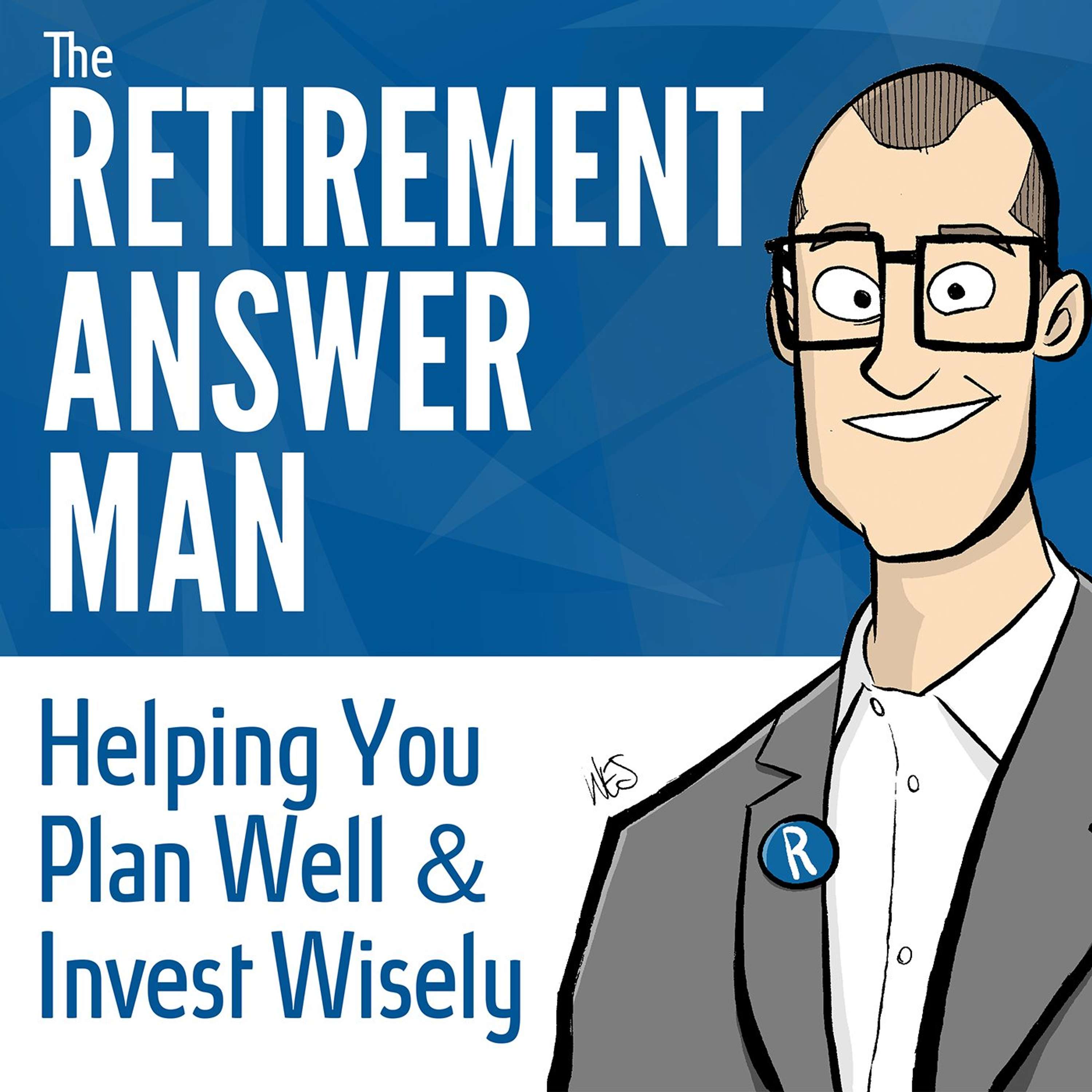
#163 Will The Trump Bump Continue?
The election of President Trump was unexpected, and there is no denying that it has affected the markets. But instead of a crash, we are seeing all time highs. Since the election, the market has been accelerating like never before until last week when we saw it slow down. This begs the question, Will the Trump bump Become the Trump Dump? In this episode, I seek the opinions of two of my favorite people, Joe Saul-Sehy of Stacking Benjamins and Burt White of LPL Financial. They will tell us what they expect to see in the markets and how we should plan our investment and retirement, and if this Trump Bump will continue. This episode is fun, fast-paced, and full of great advice, make sure you join us. President Trump’s election has led to an all-time high in the markets. Since the election, we are seeing all-time highs in the market. US Equity Indexes have been on a tear. The S&P 500 has set multiple all-time highs and the Dow Jones has hit 20000 which it has never hit before. This growth is exciting and is giving many people hope for the next 4 years. People are taking action based on what we are seeing in the markets, but is this the right move? Stay tuned to hear my tips on how to react to these market changes. Should we take action on current market changes? Markets surged after the election of President Trump, until last week where we had the worst week since the election. Does this bode ill for the Trump administration? Should we take steps to mitigate this risk now before something terrible happens? On today’s show, we have my good buddy Joe Saul-Sehy of Stacking Benjamins. He has great tips for us about how we should think regarding the changes we are seeing. Is it prudent to sell as soon as the markets begin to drop significantly? Based on personal experience, Joe says “No.” It’s best to keep a level head and be smart with your investments. The markets will rise again, we don’t know when but we don’t want to sell if it will jump back up tomorrow. Will President Trump’s agenda of growth make us stronger? President Trump has an agenda of growth and many of us were not aware just how much growth might be possible. In the past growth has been driven by the consumer but with our president focused on nationwide growth, businesses may be gaining confidence that they previously have not had. It’s easy to invest in new employees if things go bad you can let them go. But it's another thing entirely to invest in a new factory or distribution system. If you do that, you are committed on a far deeper level. Burt White from LPL Financials believes that President Trump’s agenda of growth might give businesses the confidence to invest in themselves. He predicts that this may drastically increase not only the taxable income of the government but also the number of jobs. The Seas are calm, it’s time to swab the deck. During a storm is not the best time to make repairs and adjustments to your ship, calm seas are much better suited for that. The same is true for our economic ship. Market downturns are not the time to rethink your investment strategy or reallocate funds to fit your changing risk tolerance. It is a much better idea to make those changes when the markets are good like they are now. On this week’s show, I encourage you to have those little conversations with yourself and make those changes to repair and maintain your ship while the seas are calm. Make sure you listen to this week’s Retirement Answer man Show to find out how. OUTLINE OF THIS EPISODE OF THE RETIREMENT ANSWER MAN [0:28] Market bump since election day[1:20] Will this bump last?HOT TOPIC SEGMENT [3:15] Joe Saul-Sehy and his thoughts on the market jumps we are experiencing.[6:15] Are the changes that are happening actionable?[8:33] Indexes are created to be positive machines.[10:06] The best time to rethink your investment strategy is when times are good.[12:23] Should I sell when the market begins to fall?PRACTICAL PLANNING SEGMENT [14:19] Burt White thinks market drops are inevitable.[15:56] President Trump’s plan is growth based and the market is beginning to focus on that.[18:05] Businesses may gain confidence to invest in their own growth.[20:35] How does someone working toward retirement structure their investment?[24:20] How do bonds fit into my investment plan?TODAY’S SMART SPRINT SEGMENT [29:26] Times are good, it’s time to check your investment strategy and make sure everything is Ship Shape.THE HAPPY LAB SEGMENT [30:47] Little conversations and the value of having them.[32:05] I found my dream mountain bike!RESOURCES MENTIONED IN THIS EPISODE Contact Roger: http://www.rogerwhitney.com/retirementanswers/ Roger’s retirement learning center: www.RogerWhitney.com/learn The Retirement Answer Man Facebook page: www.Facebook.com/RetirementAnswerMan Stacking Benjamins Facebook Page: https://www.facebook.com/IStackBenjamins/?ref=br_rs
37:1229/03/2017
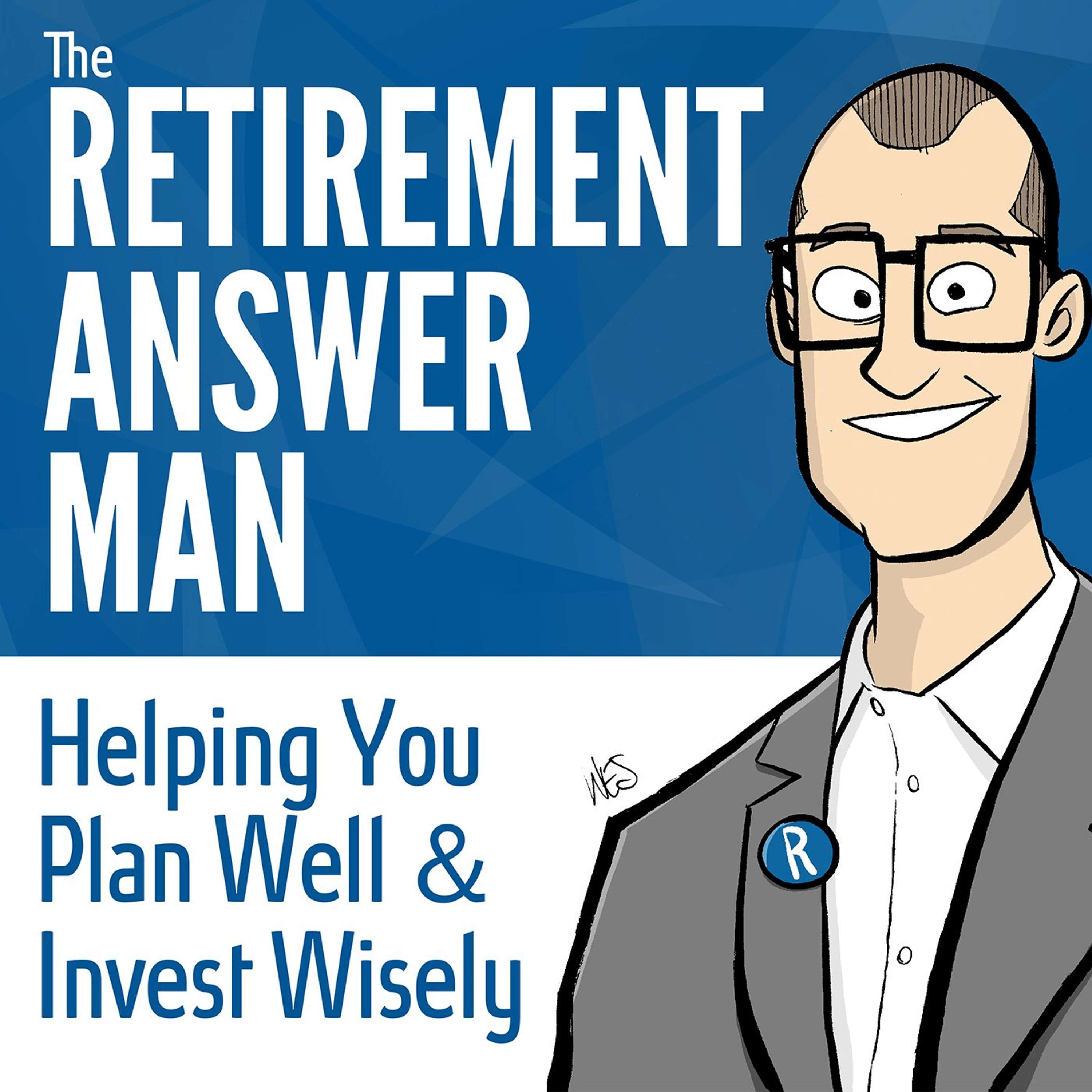
#162 - The Problem with Retirement Planning and How to Fix It
Welcome back to the Retirement Answer Man Show. I’m Roger Whitney and I’m sad to say it, but Retirement Planning is broken! The mainstream retirement planning method that has worked for years is falling short in our modern world. It is frustrating, disappointing, and fails to give you the leverage you need to create a great retirement. In this episode, we will dive into the good, the bad, and the ugly of modern retirement planning and you will see why it no longer offers an empowering course of action. Fear not. There is a better way and I will tell you what it is in this episode. Make sure you listen to this one. Modern Retirement Planning is broken. Mainstream retirement planning is based on numbers, not people. You, your lifestyle goals, and your assets are plugged into a formula. The outcome is a rigid plan based solely on the numbers. It rarely offers you an encouraging plan and you are left with next to no levers to pull to create your ideal retirement. Change is inevitable. We must adapt to it. But the modern retirement plan is not flexible and you might end up without options. An effective retirement plan is one that looks at each person as what they are, a person. You are not a number in a formula, you are a human being and you have unique goals, desires, and beliefs that need to be considered while planning for your future. Modern planning is rigid and impersonal but there is a better way. Listen to this episode to learn more. Hiring a retirement planner is not always a recipe for success. We can all agree that using an online retirement planning service will result in an impersonal plan, but is working with a retirement planner a better option? Sometimes it can be, but often times it won’t result in a flexible and encouraging plan. Planners will listen to you and hear your goals and dreams but in the end, you are still plugged into a formula and have to deal with the rigid outcome; an outcome that does not inspire action, is not flexible enough to adapt to change and does not encourage you to chase your dreams. Working with a retirement planner might give you an educated prediction of the future, but it’s only a guess. Listen to this episode to discover a better way! What worked for your parents might not work for you. Mainstream retirement planning was once effective. It worked for our parents, but it’s not working for our generation. Why? There are many reasons, one of which is pensions. Our parents had pensions and they provided for most of their retirement years. Some of you have pensions and that’s great. But we are faced with an average of 30 years of life after we retire that we have to plan for. A pension won’t fully cover it so we need to get creative with our assets and goals. Our parents also lived more simply that we do. Retirement often consisted of sitting on the porch watching the neighborhood children play. Today we are presented with the opportunity to live our lives in ways that we have not been able to previously, and that costs money. Creativity and flexibility are the keys to a good retirement plan and on this episode, I’m going to give you an idea what that could look like for you. Don’t miss it! Agile Retirement Planning may be the key Agile Retirement planning is a method I have developed to work with the challenges of our modern world and provide you with options to create an ideal retirement. It’s adaptive and focuses on managing change rather than predicting the future. This will give you flexibility and hope when challenges present themselves. It allows you to be in control of your retirement rather than putting your trust entirely in chance or in your retirement planner. I’m going to dive deep into the 4 main impacts that I have seen in my client's lives as we have worked through the agile retirement method. Make sure you listen to the whole show to get it all. OUTLINE OF THIS EPISODE OF THE RETIREMENT ANSWER MAN [0:30] Today’s retirement planning method is broken.[1:00] Stan and Barbara’s retirement plan[10:49] Why mainstream retirement planning falls short.PRACTICAL PLANNING SEGMENT [12:36] Will a retirement planner help you create a reasonable solution?[16:30] Working with a retirement planner usually yields the same results as doing it yourself would.[19:50] Mainstream retirement planning is “rigid” and has a negative impact on you.[21:10] What worked for your parents probably won’t work for you.[25:45] Agile retirement planning and why it works.[29:07] Real life impacts of Agile Retirement planning.RESOURCES MENTIONED IN THIS EPISODE Contact Roger: http://www.rogerwhitney.com/retirementanswers/Roger’s retirement learning center: www.RogerWhitney.com/learnThe Retirement Answer Man Facebook page: www.Facebook.com/RetirementAnswerMan
34:0022/03/2017
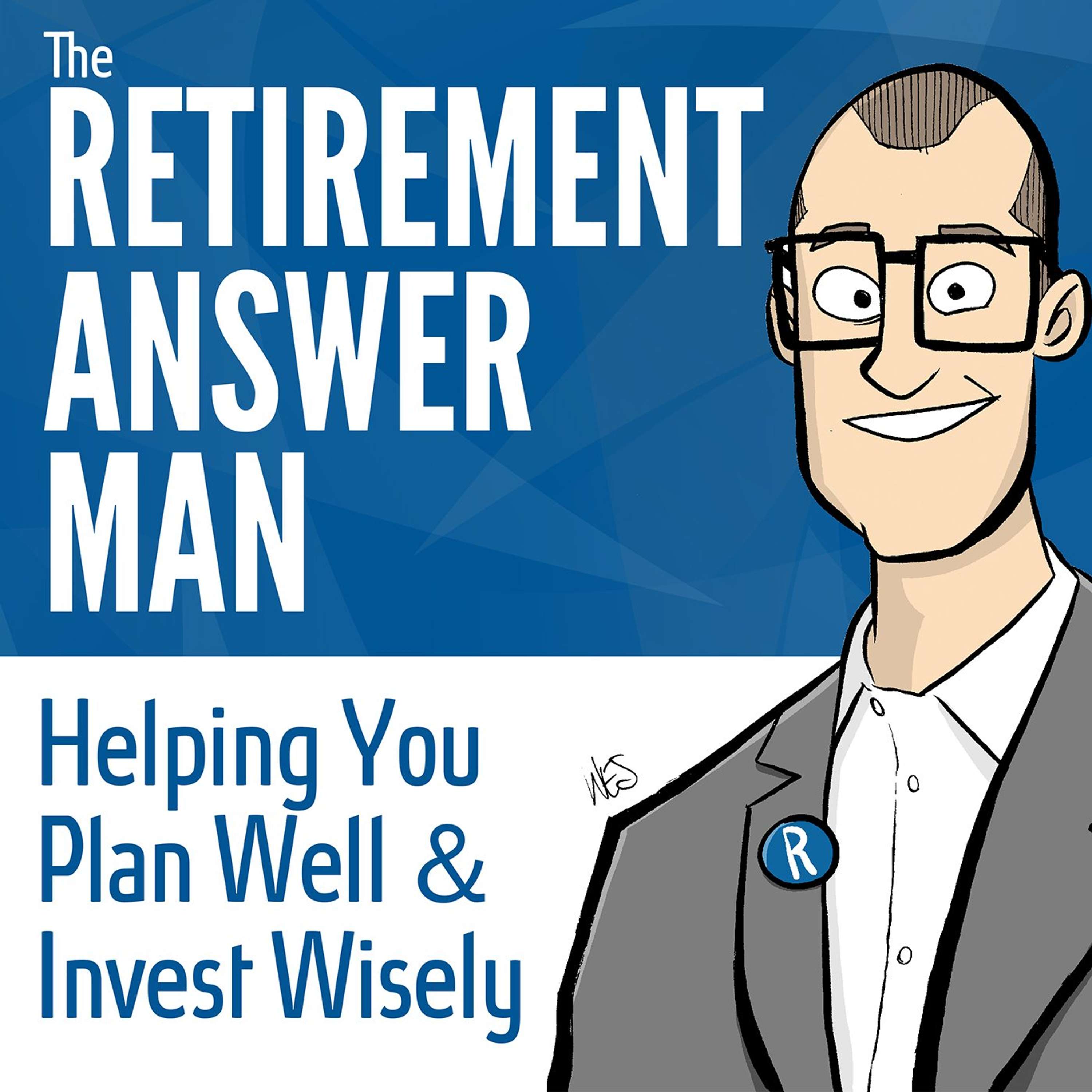
#161 - Simple Living In Retirement
We all have heard the term living simply and possibly associate it with a minimalistic lifestyle. Is there a way we can take the concepts of simple living and apply that to our retirement plan without compromising what is important to us? On this episode of the Retirement Answer Man, we will look at the costs of a large lifestyle and the benefits of simplifying. We all know that a larger house costs more, not only up front but also in the day to day maintenance. Not only that but it is human nature to acquire “stuff” to fill the space in which we live. The larger our house, the more “stuff” we collect. Listen to this episode to hear my advice on how approaching retirement planning with a simplicity mindset can give you amazing confidence and stability. Home Ownership is great, but it doesn’t define us. Home ownership and the American Dream go hand in hand, don’t they? We are taught that one of the first steps, after embarking out on your own or getting married, is to buy a house. In my case, it was a 1600 square foot home. From there I soon felt the need to upgrade to a larger house with a larger back yard that I could outfit for the kids and give us space to grow. This might sound like a common situation and it is. Many Americans go through this same journey and it’s not always a bad journey. However in my case, by following the path of our culture we ended up building a cage that trapped us financially. In this week’s show, we’ll address whether or not Home Ownership as our culture sees it is best for retirement and if there is a better way to go. Stay tuned! I’m not rich, is there a normal person’s retirement plan? Some of you might be saying, “Roger, I’m not rich. The retirement plans you have been outlining don’t fit me.” You are totally correct, what we have outlined so far on this show is not the average American retirement. That is why I will be creating a “normal” person's retirement plan with someone who might not have as many assets or an adequate nest egg. If you feel something like this would help you in your journey towards retirement, make sure you listen to this episode as well as future episodes to find out what I’m planning. Buying my home limited my ability to build wealth. Building wealth and acquiring assets is arguably one of the biggest parts of planning for retirement. Without adequate savings or a means of sustainable income, we can’t expect to retire and keep our desired lifestyle. When my family and I upgraded to a larger home we essentially built a cage around us, a cage of financial obligations. The yard needed to be maintained, the house needed to be cleaned, and the mortgage and taxes had to be paid. These obligations limited my ability to build future wealth for my family and lessened the effect with which I could create assets. If our mindset had been different, we could have enjoyed close to the same lifestyle without the possibility of compromising our future. Listen to this episode to hear a better solution. Living simply gives us the ability to say “yes.” Every decision we make in life comes with its own set of obligations. When we choose to live largely we often find ourselves obligated to maintain our lifestyle, or at least pay for it. This can limit our ability to be spontaneous and enjoy the experiences of life. Living simply can reduce the number of obligations in our life, freeing us up to say “yes” to those opportunities that we might otherwise have had to forgo. OUTLINE OF THIS EPISODE OF THE RETIREMENT ANSWER MAN [0:31] Home ownership and the American Dream[2:34] My average housing expense.[3:30] Bobby’s housing change.PRACTICAL PLANNING SEGMENT [5:21] SJ and her simplified retirement plan.[7:22] Getting an accurate idea of your living expenses.[9:31] Is living in a trailer bad?[12:46] My housing choices hurt my ability to build wealth.[14:43] Simplifying our lives can enable a successful retirement.THE HAPPY LAB SEGMENT [20:21] Living simply gives you flexibility to say “Yes”[21:00] My trip to Mongolia TODAY’S SMART SPRINT SEGMENT [21:15] Look for ways to say “Yes”RESOURCES MENTIONED IN THIS EPISODE Contact Roger: http://www.rogerwhitney.com/retirementanswers/Roger’s retirement learning center: www.RogerWhitney.com/learnThe Retirement Answer Man Facebook page: www.Facebook.com/RetirementAnswerMan
24:2015/03/2017
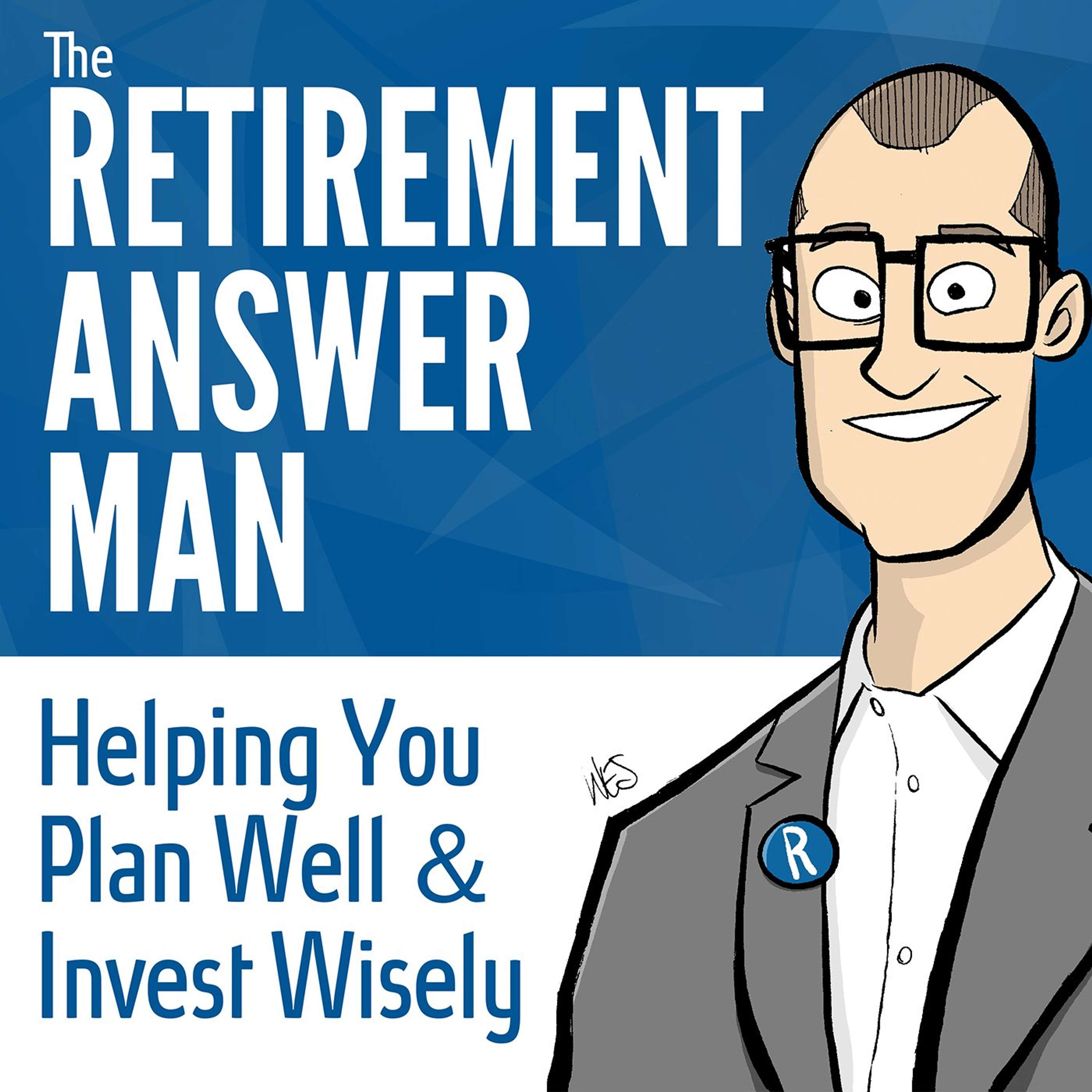
#160 - Certainty Is Absurd: How To Deal With Uncertainty.
Welcome back to the Retirement Answer Man show. I am Roger Whitney and I’m so excited to have you with me. Today we will be talking about certainty in retirement and how it is, in fact, absurd! The only thing that is certain in life is uncertainty. No matter how hard we try to plan for the future we can never be 100% certain things will turn out the way we’ve hoped. Things will go wrong and we have to find a way to deal with uncertainty. If you follow the guidelines I lay out in this episode, you can feel confident in your future retirement and your ability to cope with the changes ahead. Be sure to tune in to hear this great advice. You’ve planned well for retirement. GREAT! You may still have to live in a trailer. Regardless of how well we plan for our future retirement, the unexpected can always happen. Interest rates may fall, taxes may skyrocket, your health may decline, and the government might go bankrupt. If these things happen, your well thought out plan is worthless. You may be forced to live in a trailer. Uncertainty is the only thing we can accurately plan for. But don’t doubt the importance of a retirement plan. Having a plan and being ready for the possibility of unexpected changes will help you cope with them when they come. If you remain willing to make small changes the big disasters will not affect you as drastically as they may affect others. Dealing with uncertainty comes down to being willing to compromise in little areas all through life. Doing so will allow you to be flexible and keep your priorities where they need to be even if things go horribly wrong. Our world is changing rapidly, how can we ever hope to plan for the future? In the last several decades we have seen the decline of the physical retail market and the rise of the online market. We have seen the birth of mobile technology that makes it possible to work from home and stay connected on the go. There is no denying that change in our modern world is real and is drastically reshaping our economy and life. On this episode of the Retirement Answer Man, a listener wants to know how we can effectively plan for retirement in light of the massive change we see around us. Many of you may doubt that a reliable plan can be created, but I encourage you to not give up hope. In this episode, I talk about how to keep your mind set on your priorities and be flexible so that you can adapt to the change. The verdict is in, will Kim and Joe be able to retire? We just held the Retirement Plan Live Webinar with Kim and Joe and we found out if their ideal retirement plan will work or not. Make sure you listen to this show to find out the details. Many of you wrote in with questions and observations about the live webinar and its outcome. Today I will share a few of those questions and hopefully give you some answers. Listen to this episode to learn how the concepts we applied to Kim and Joe can help you in your retirement planning. Go deeper to avoid a catastrophe. This week I received some heartbreaking news regarding an acquaintance. It’s possible the situation could have been prevented if little problems were taken care of early on. Often times we never know how big of a problem something is until it has blown up and forever changes our lives. Our culture often tends to steer us away from digging deep into our life and relationships to find the hidden problems. If it appears fine on the surface we don’t see a need to look any further. Listen to this episode of the Retirement Answer Man to hear my advice on how to find those small problems and stay vigilant in the face of uncertainty. OUTLINE OF THIS EPISODE OF THE RETIREMENT ANSWER MAN [0:30 ] Living in a Trailer[2:31] The power of managing change.HOT TOPIC SEGMENT [4:43] Kim and Joe’s retirement plan did not work.[7:23] Info on how you can get access to the replay of the webinar.[12:05] Why is managing change so important?[15:05] Is our inflation projection accurate?[19:50] Is a rollover from a 401K to an IRA a good strategy?[25:28] Change is occurring so rapidly, how can we plan our future in light of the change?PRACTICAL PLANNING SEGMENT [8:17] Do most aspects of retirement turn out as expected?THE HAPPY LAB SEGMENT [37:08] Are we intentional on a deep level, with our relationships and with ourselves?TODAY’S SMART SPRINT SEGMENT [39:15] Go have and earnest conversation with someone you love.
40:5208/03/2017
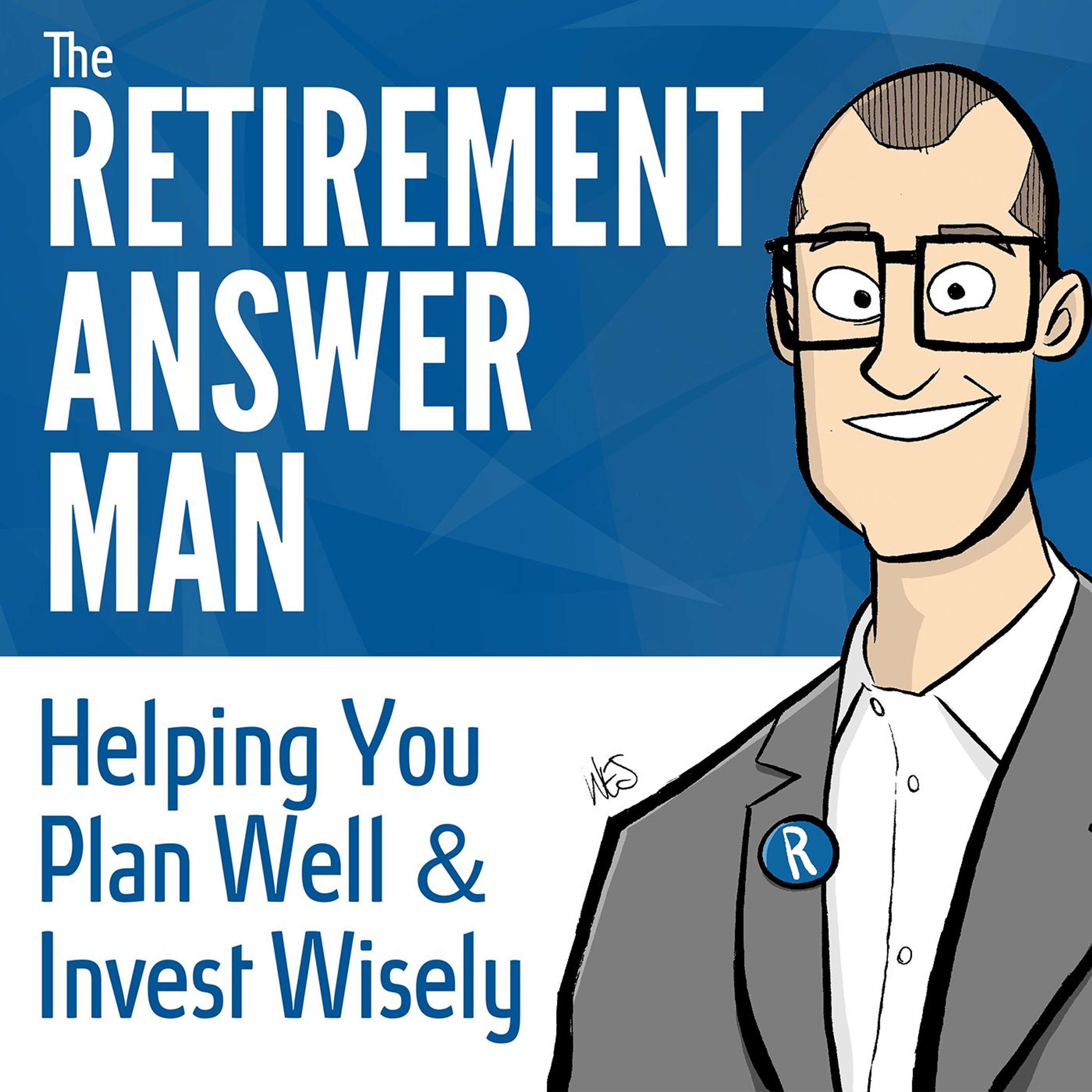
#159 - Make your net worth work for your retirement not against it!
Hey, there, and welcome back to the Retirement Answer Man show. I’m Roger Whitney and I am THE Retirement Answer Man. This week’s show is all about Net Worth. Today I answer several listener questions regarding net worth statements. I also offer a caution about the dangers of comparisons in your retirement planning and how they can ruin your well-made plans. I’ll help you set your focus where it should be so that even though you can’t fully avoid comparisons, you can assure they will have minimal effect on you and your retirement. Make sure you take the time to catch this episode, your retirement will thank you! Playing the comparison game could cost you your retirement. We all do it. We compare ourselves to others. We compare our car, our job, even our net worth. While this is a natural part of human nature, it can be a very dangerous game to play. Comparing ourselves to others takes our focus off of our goals and what we need to do to accomplish them and puts the focus on our perceived value in relation to others. Comparing ourselves to someone with a higher net worth can make us feel discouraged, hopeless and possibly cause us to give up. On the other hand, if we compare ourselves to someone who’s net worth is lower than our own, we may feel so proud of our achievements that we stop working hard towards our goals. Even though comparisons are inevitable, there is a way you can focus on what is important. Listen to this episode to find out how. I have a negative net worth, is there any hope for me? Many people find themselves in this situation. It has become normal in our culture to live our lives without thinking of retirement only to find ourselves getting older with little savings and next to no assets. This is a scary situation to be in, and one that a listener finds himself in. He asks a question about planning for retirement and working with an advisor even though he has a negative net worth. He wants to know if there is a way to succeed. While the road to retirement is much more difficult when you are in this type of a situation, fear not, it is not hopeless. Listen to this episode to hear the advice I give this listener. Will Kim and Joe be able to afford their ideal retirement? Find out tonight! Tonight is the Retirement Plan Live webinar where I walk Kim and Joe through the conclusions of our planning and we find out together if they can afford their ideal retirement. You don’t want to miss the exciting end to this year’s Retirement Plan Live. But not everyone can join the webinar, you have to be invited. Listen to this episode to find out how you can get one of these special invitations. I hope to catch you tonight! Taxes. Who likes Taxes? Is there anything I can do to lessen the impact of taxes on my investments? Taxes aren’t fun, but we can’t escape them and we are forced to deal with them. A listener on today’s show is feeling the tax burden. He has done a good job of building assets but knows that he’ll be forced to draw taxable income during retirement which he fears might push him into a higher tax bracket. He wants to know if there is anything he can do to protect his IRA from heavy taxes. My answer, YES! There are some completely legal steps you can take to lessen the weight of taxes on your investments. You’ll hear my suggestions of how he can convert or draw from his IRA in order to make taxes easier to deal with during retirement. RESOURCES MENTIONED IN THIS EPISODE Contact Roger: http://www.rogerwhitney.com/retirementanswers/ Roger’s retirement learning center: www.RogerWhitney.com/learn The Retirement Answer Man Facebook page: www.Facebook.com/RetirementAnswerMan
31:1001/03/2017
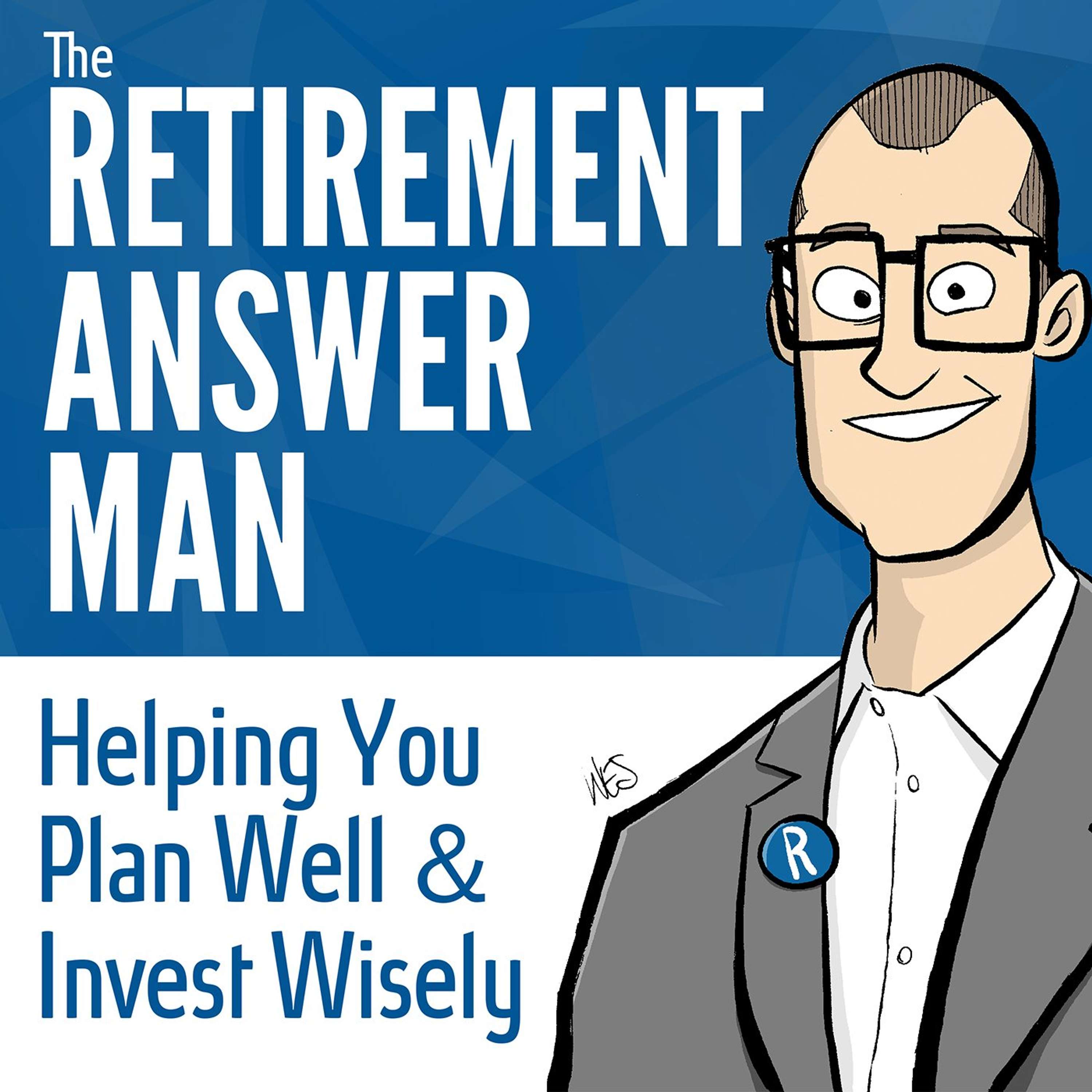
#158 - How Binary Thinking Can Ruin Your Retirement Goals
Hey, hey - it’s great to have you along for another episode of The Retirement Answer Man. I’m Roger Whitney and I am THE Retirement Answer Man. This episode of the show is all about how the habit of binary thinking can derail your retirement planning goals. What is binary thinking? I’m glad you asked! On this episode, I’m going to walk you through a couple of examples of binary thinking, including one I experienced with a friend of mine in years past, to show you exactly what it is and how it can be detrimental to your life - and your retirement planning. And… I’m going to answer some listener questions about this year’s Retirement Plan LIVE. I hope you’ll make the time to listen. You’ll want to hear this one! What is binary thinking and how can it negatively impact your retirement planning? On. Off. On. Off. That’s essentially what binary thinking is. It’s thinking in terms of one thing, or another - and nothing else. When you get into the habit of thinking in a binary sort of way, you can miss a whole world full of options that might otherwise be open to you. I hope you can see how bad that can be when it comes to the way you approach retirement planning. This episode, I’m going to give you some example of how you can avoid binary thinking. Is retirement preparation only about saving and investing? Nope. That’s too binary. On this episode of The Retirement Answer Man, I highlight some good news that comes from the latest stats about retirement savings. Fidelity says that the average household savings rate has gone up to 8%. Wooohoooo! That’s always a good thing. BUT, it’s not the only thing that matters. You can’t ONLY save and invest and expect that you’re going to be all set for retirement. You need to think more broadly, less binary. That way you can make the most of every option you have. On this episode, I’m going to highlight some of the ways you can do that, so be sure you hear these great tips. What are the old stories you need to stop telling yourself? All of us have, what a colleague of mine calls, “old stories.” They are the things about ourselves that perhaps USED to be true but are no longer true - but we continue to talk (and think) as if they are still true. For example, you’ve heard me talk on the show about how I almost ruined my marriage because of the self-centered way I was living. If I continue to think of myself in those terms even though I’ve changed, I could sabotage my own ability to move my life forward. When it comes to our ability to build a great retirement, those old stories can be especially damaging. On this episode, we’re going to dive into what you can do to avoid living according to your version of those old stories. You’ll want to hear this one. Don’t miss this year’s Retirement Plan LIVE webinar. Here’s how you can get in on it! We’ve wrapped up the podcast episodes of this year’s Retirement Plan LIVE, and like we do every year, we’ll be summarizing and revealing the actual retirement plan for this year’s participants (Joe and Kim) in a LIVE webinar. It’s a fun way to wrap up and for you to see how retirement planning is actually done. You can get in on it via personal invitation. How do you get one of those golden tickets? Listen to this episode to find out! OUTLINE OF THIS EPISODE OF THE RETIREMENT ANSWER MAN [0:29] The story of Ralph - and the trap of binary thinking.[2:47] The solution to the retirement crisis is somewhere in between the extremes.HOT TOPIC SEGMENT [4:51] Retirement savings are at an all time high (according to Fidelity)![6:15] Savings and investing are only part of the retirement equation.PRACTICAL PLANNING SEGMENT [8:52] Q & A about Kim and Joe’s case study from Retirement Plan LIVE.[11:01] One listener’s concerns about Kim and Joe’s retirement situation.[13:35] Will Social Security really increase like Kim expected it to?[17:10] Would it be best for Joe and Kim to knock out their mortgage before retirement?[20:08] Is it possible to live off $24K a year as one financial guru suggests?[24:00] How you can get access to the LIVE webinar of this years Retirement Plan LIVE.TODAY’S SMART SPRINT SEGMENT [24:54] Continue to organize your online passwords - and are the password managers really that safe?THE HAPPY LAB SEGMENT [27:21] A group call experience I had… and woman who says she’s too gruff with others.[28:47] The old stories we tell about ourselves and why we need to STOP.RESOURCES MENTIONED IN THIS EPISODE www.RogerWhitney.com/blog - find my core values as shared on this episode.1 PasswordLastPassContact Roger: http://www.rogerwhitney.com/retirementanswers/Roger’s retirement learning center: www.RogerWhitney.com/learnThe Retirement Answer Man Facebook page: www.Facebook.com/RetirementAnswerMan
31:3722/02/2017
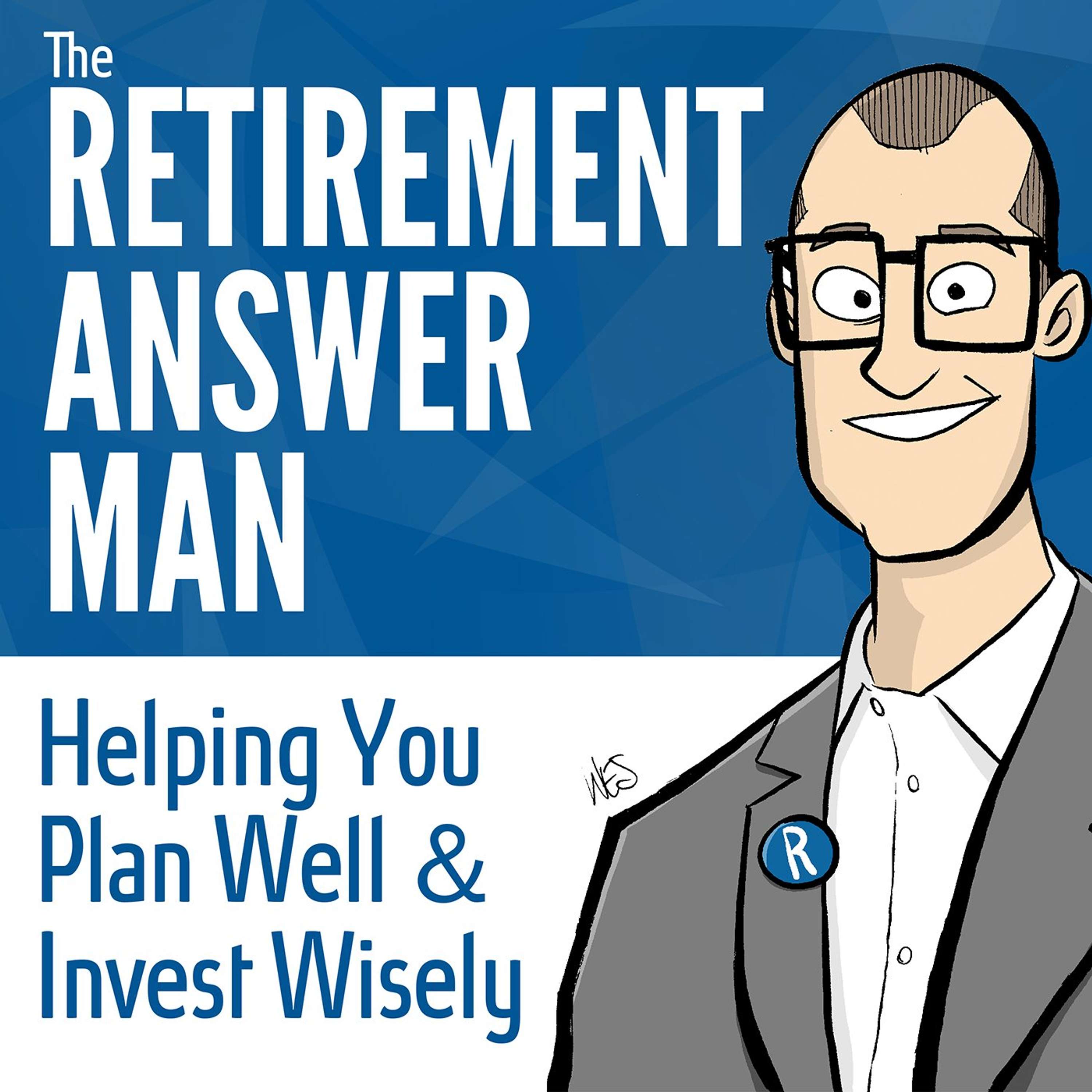
#157 - Mitigating Retirement Risks as You Plan For Your Future (Retirement Plan Live Session 3)
Well, here we are - at session number three of Kim and Joe’s 2017 Retirement Plan LIVE experience. Today we reach the topic nobody enjoys talking about but that we HAVE to talk about anyway: Retirement Risks. There are many things we need to consider on this episode of the Retirement Answer Man in order to think about retirement realistically and Kim does an amazing job of thinking soberly about the risks that she and Joe will face when they reach retirement. Our goal is to assess them and then address them in their retirement plan. Want to hear how we do it? You can, on this episode. It’s wise to address retirement risks - but they don’t stay addressed. One of the problems with trying to predict what could happen in the future is that the picture keeps changing. You can address things the way it makes sense today but if the markets change (and they will) or if your financial or health situation changes (and they could), you’re going to have to reassess and re-address the risks you’ve identified. Heck, there could even be new risks by the time you get there. So what do you do? You keep working at it. There’s really no other option. On this episode, I chat with Kim about the risks she sees ahead when it comes to her retirement and we make some tentative plans for the ways those risks might be addressed. I’ll reveal my full suggestions in the upcoming RPL webinar, which you can get in on. Find out how, on this episode. Duct tape solutions to the retirement risks you see are not the best answer. Do you know what a duct tape solution is? It’s a solution that seems effective at the time but by nature of what it is, it won’t last very long. It’s like putting duct tape on a hose in your car that has sprung a leak. It may get you to the next town but it’s not going to last for a cross country trip. On this episode, Kim and I talk about the possible solutions to some of her retirement risks and discover that some of the things typically used to address those risks may not be the best options. You’re going to enjoy thinking through these issues, so be sure to listen. One of the biggest retirement fears is that you’ll outlive your money. Almost everyone I talk with about retirement planning has one risk in mind far above all the others when it comes to their retirement: They are afraid that they might outlive the money they have to live on. It’s a very real concern since the longevity rate in our day continues to rise. Are there ways to address this concern other than saying, “Set aside more money?” Kim and I discuss that on this episode as we walk through her Retirement Plan LIVE session today, so be sure you take the time to listen. What if you need expensive medical care, die, and leave your spouse broke? There is a very real and tragic scenario that happens over and over in modern day America. A married couple plans for their retirement, retires, and is enjoying the fruits of their many years of employment or work, and then one of them is struck with a very expensive disease or medical condition. They use up all their hard-earned money on medical care, and then the ailing spouse dies, leaving the surviving spouse almost penniless. What can be done to mitigate THAT kind of risk? Kim and I talk about the possibility on this episode of the show. OUTLINE OF THIS EPISODE OF THE RETIREMENT ANSWER MAN [0:23] My introduction to this “Step 3” of this year’s Retirement Plan Live.HOT TOPIC SEGMENT [4:14] Why retirement is riskier than ever before.[6:00] How income helps us mitigate risks for now. And how it changes in retirement.[7:26] Watch out for duct tape solutions.PRACTICAL PLANNING SEGMENT [12:04] This conversation about the scary stuff: retirement risks.[13:43] The issue of market risks and how Kim and Joe have typically handled them.[16:20] Kim’s current mix of stocks VS bonds - and looking toward retirement.[18:33] Should retirees live on the income of their investments?[21:17] Fears about inflation and market instability.[23:25] Is Social Security going to be there for Kim and Joe?[25:39] What if one spouse dies earlier than expected?[30:20] The fears of long term care and a surviving spouse’s needs.TODAY’S SMART SPRINT SEGMENT [32:09] Your assignment: Clarify how to access your digital life.THE HAPPY LAB SEGMENT [35:44] Unaddressed risks can make you unhappy, but a repeatable process to address them regularly can give you peace of mind.RESOURCES MENTIONED IN THIS EPISODE LastPass1PasswordRoger(at)wwkwealth.comContact Roger: http://www.rogerwhitney.com/retirementanswers/Roger’s retirement learning center: www.RogerWhitney.com/learnThe Retirement Answer Man Facebook page: www.Facebook.com/RetirementAnswerMan
38:2715/02/2017
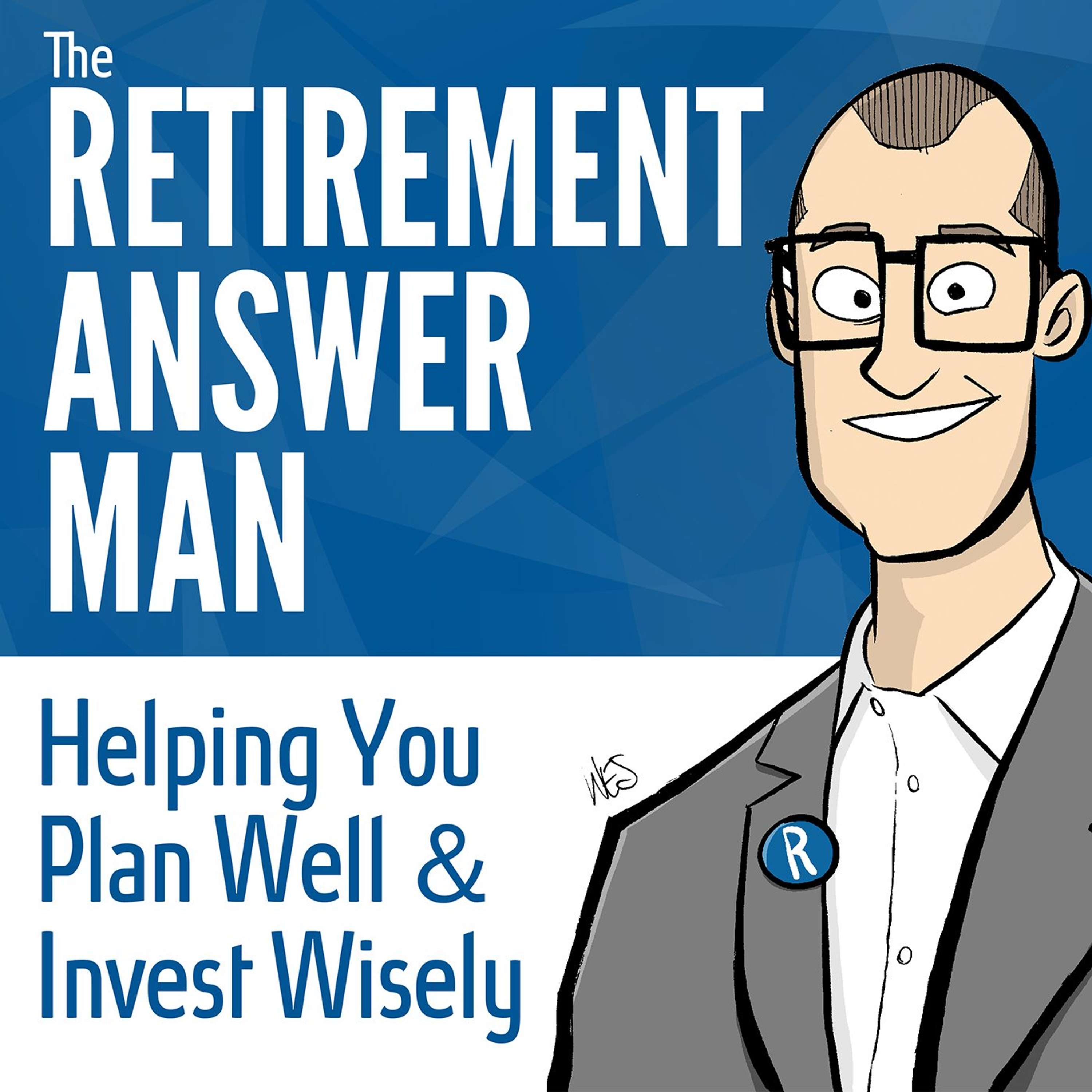
#156 - How Your Personal Net Worth Statement Can Inform Your Retirement Decisions - Retirement Plan LIVE Ep. 2
Planning for retirement will be next to impossible if you don’t have some sort of barometer of your financial situation - and that’s why I always create a personal net worth statement with my clients to have a starting point for retirement planning. On this episode - the 2nd in the 2017 Retirement Plan LIVE sessions - I’m talking with Kim about her and her husband’s financial status, and you’ll hear us go item by item through their financial situation to build their net worth statement. It’s the first step, and one you can take easily enough on your own. Find out how on this episode of The Retirement Answer Man. What the HECK is a personal net worth statement? Your net worth statement is a document that will provide you a quick look at your financial situation at any point in time. By calculating your net worth you’re able to see what all the work you’ve done in your life has provided for you - as well as what you’ve spent so far. But tracking your net worth over time gives you even more insight into your financial picture. On this episode, I’m talking with Kim about the current assets and expenses she and her husband have right now, a few years before retirement. This will enable them to know where they are starting from as they begin to set retirement goals. You’ll see how applicable the net worth statement is to retirement planning, on this episode. Here’s the simple way to create your own net worth statement. You can calculate your own net worth statement pretty simply with very little effort. The hardest part is assembling all the facts and figures that go into a simple subtraction problem. Here’s how you do it: Total up all your assets (things you actually own that have value, including cash accounts at the bank), total up all your liabilities (the things you owe money on) and then subtract your liabilities FROM your assets. That will give you a net worth figure. Now that you have it, how do you use it to plan for retirement? I’m glad you asked because that’s what I’m covering with Kim, on this episode. How can you use a net worth statement to plan for retirement? When you’re planning for retirement you have to do more than just dream up fancy things in regard to your future without knowing how those fancy things are going to be funded. Your personal net worth statement will enable you to know what resources you have available to build upon in order to fund your retirement plans. Think of it as a starting place, the dot on the map where you are now. Once you understand that figure you’ll be able to see how far you are from the ideal retirement you’ve imagined. If you’d like to build your net worth statement with a little help from a retirement planner, here’s your chance. One of the things I love about what I do is that I’m able to help people accomplish financial goals through the creation and use of simple tools that are truly helpful. One of those is my “Build Your Net Worth Statement” worksheet - which is yours for free if you want it. If you’d like to get your own copy and find out how to get started with your own net worth calculations you can find it on my learning center page. OUTLINE OF THIS EPISODE OF THE RETIREMENT ANSWER MAN [0:30] My introduction to this “part 2” episode of the Retirement Plan LIVE.HOT TOPIC SEGMENT [2:43] What IS your net worth and how is it calculated?PRACTICAL PLANNING SEGMENT [12:30] Looking at Kim and Joe’s personal net worth statement to plan for retirement.TODAY’S SMART SPRINT SEGMENT [42:39] Identify the location of all your important documents and write down those locations for your loved ones.THE HAPPY LAB SEGMENT [44:20] Mishandling stress is a bad way to build happiness in relationships.RESOURCES MENTIONED IN THIS EPISODE Contact Roger: http://www.rogerwhitney.com/retirementanswers/Roger’s retirement learning center: www.RogerWhitney.com/learnThe Retirement Answer Man Facebook page: www.Facebook.com/RetirementAnswerManLastPass1Password
46:1708/02/2017
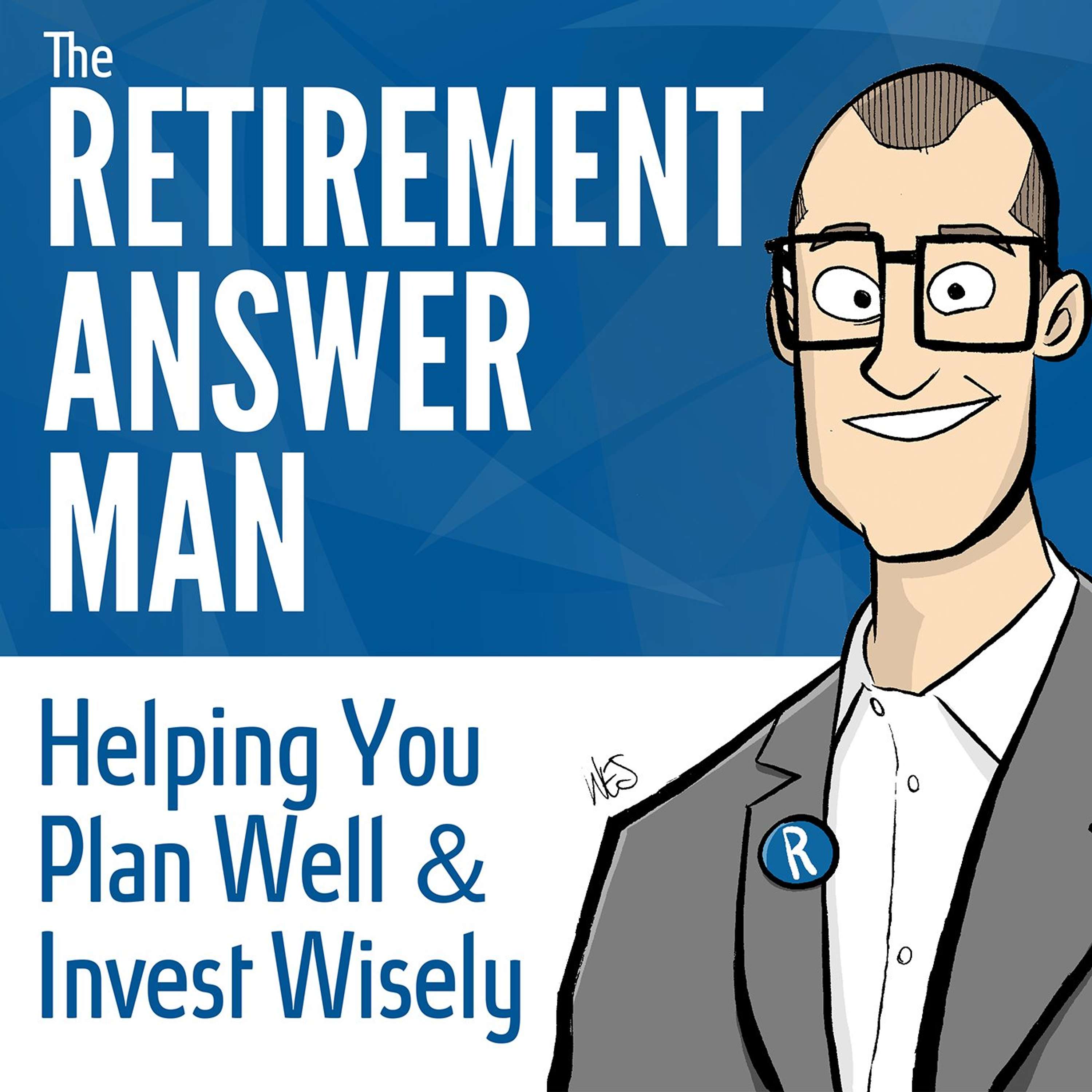
#155 - Retirement Wishes Start With Good Planning (Retirement Plan LIVE 2017)
What are your retirement wishes? Do you have any? This episode of The Retirement Answer Man is all about retirement wishes - dreaming up the kind of retirement you really want to live (forget about what seems practical for now). I’m walking through an initial retirement planning conversation with Kim and Joe - this year’s participants in my Retirement Plan LIVE event. In this conversation, you’ll hear how I help clients think through retirement needs and wishes and in coming episodes we’ll begin planning for how to accomplish them. It’s a hands-on conversation, so jump in to hear how we do it. Can you think a little bigger about your retirement? What are your wishes? For many people, the word “wishes” equates with the word “unrealistic.” But that’s not what we’re shooting for on this episode. In this conversation with Kim and Joe I’m trying to dig deep - to find out what they really want to be able to do during their retirement years so that we can create a plan that makes it possible once they get there. It’s a practical and exciting process and I hope you learn from this example so that you can start creating YOUR version of an ideal retirement in the future. Learning to dream bigger is not all that easy, but we need to do it. Most of us have a hard time envisioning what it’s going to be like during our retirement years. We hope for the best but often don’t know how to plan for it. Part of that struggle is that we have a difficult time knowing how to dream bigger, how to think of the things we really WANT to do during retirement instead of being limited by what we think will be realistic. On this episode of The Retirement Answer Man, I’m helping Kim expand her thinking when it comes to her retirement plan so that we can figure out now how to make her retirement wishes come true. Are you interested? It’s a great conversation. It’s impossible to forecast every retirement need, but you still need to do it. None of us know the future so it’s reasonable to think that retirement planning is a hopeless cause. Afterall, you can’t predict every expense you’re going to have, right? Well, sort of. On this episode of the show, you’re going to hear how I help Kim think through the needs she and her husband might have during retirement and establish a baseline budget that they will be able to live on but will also afford them some of the finer things in life. And we take into account many of the “unforeseen” issues as well. You’ll need to hear it in order to totally grasp it, and you can do that by listening to this episode. Your retirement dreams need some “placeholders” in your retirement plan. None of us truly knows what retirement is going to hold. Are we going to be healthy or are we going to face a health crisis? Are we going to be able to travel or will we feel like we want to be a homebody? But you can’t let the lack of certainty keep you from planning for the retirement wishes you have. That’s why you need to plan on some of the fun things you think you may want to be in your retirement by adding “placeholders” for those expenses. On this episode, I help Kim create some placeholders - and it will serve as a great example of how you can do the same.OUTLINE OF THIS EPISODE OF THE RETIREMENT ANSWER MAN [0:28] My welcome to this first conversation of the 2017 Retirement Plan LIVE![1:10] Learning to dream bigger is not all that easy - but we need to do it![2:50] How you can get your summary of the Retirement Plan LIVE sessions.PRACTICAL PLANNING SEGMENT [4:07] Getting the lay of the land in Kim and Joe’s situation - when will they retire?[7:18] What will be Kim’s purpose after they retire?[11:00] Dealing with a long retirement timeline from a financial perspective.[16:50] The conversations Kim and Joe have around finances.[19:30] Adding the spice of life to retirement (and planning for it).[24:57] The importance of adding “placeholders” to your future retirement expenses.[27:08] The possibility of caring for aging parents - and major purchase possibilities.[35:42] The struggle to get the big dreams down on paper.TODAY’S SMART SPRINT SEGMENT [40:31] The 2nd part of your I.C.E. Plan: Record the passwords and codes for all devices.THE HAPPY LAB SEGMENT [43:05] Getting back into my exercise program and how it’s impacting my happiness.RESOURCES MENTIONED IN THIS EPISODE LastPassOnePasswordContact Roger: http://www.rogerwhitney.com/retirementanswers/Roger’s retirement learning center: www.RogerWhitney.com/learnThe Retirement Answer Man Facebook page: www.Facebook.com/RetirementAnswerMan
45:2001/02/2017
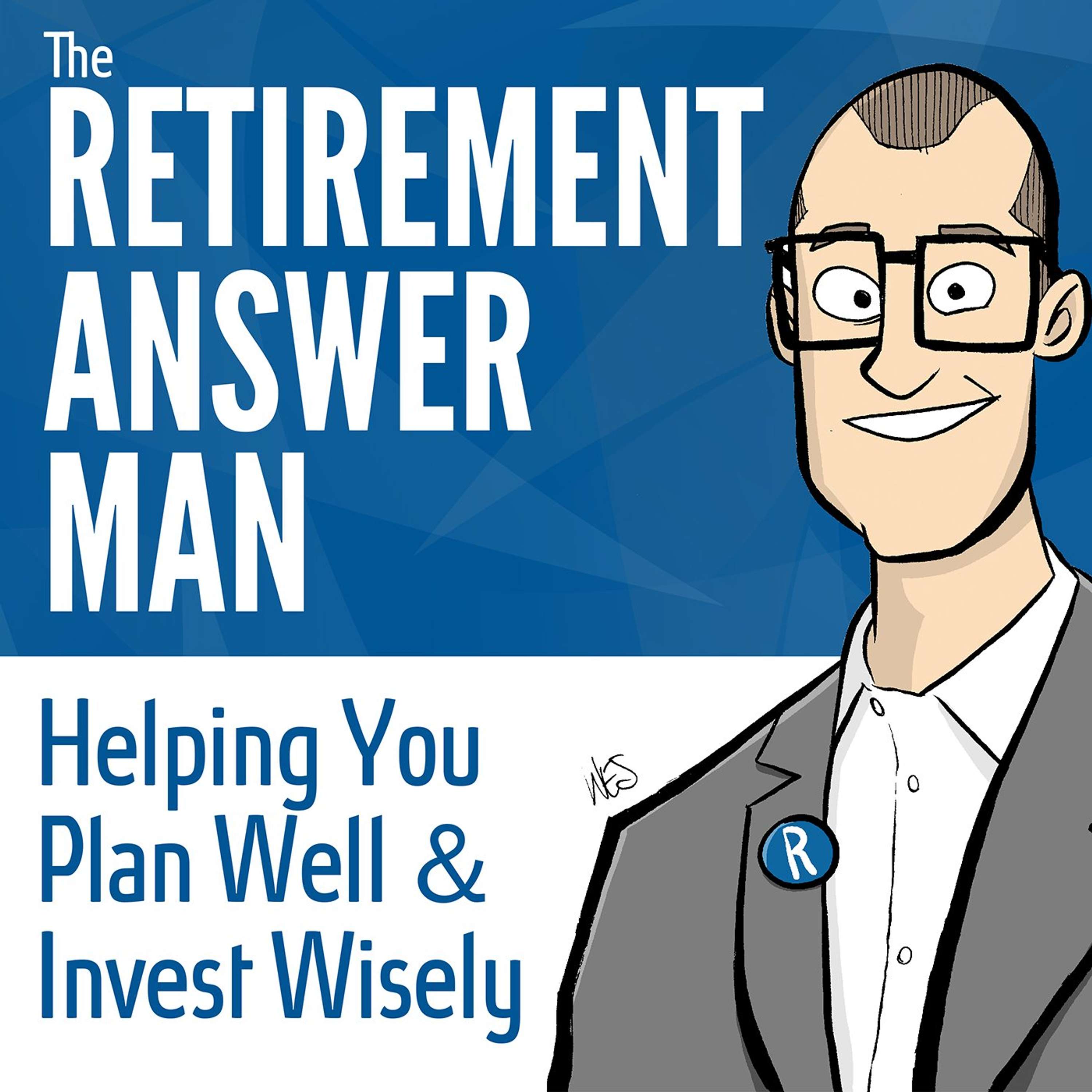
#154 - Introducing Kim and Joe, the Couple Planning For Retirement via Retirement Plan LIVE.
Every year I conduct a grand experiment in internet broadcasting that features everyday people like you. It’s called Retirement Plan LIVE and it’s my attempt at helping you know the ins and outs of effective retirement planning - and I do it by inviting listeners to take part in a to-be-aired set of conversations that walk through their actual financial situation. If you would like to take part, all you have to do is listen to this episode. It’s going to be a fun ride! Fast moves by our new President. What does it mean for you as you plan for retirement? Donald Trump is now President of the United States and his first weeks in office have brought a flurry of activity that directly impacts the financial markets. If you are looking toward or planning your retirement in such tenuous times, it can be a bit overwhelming trying to figure out exactly what you should do. So what SHOULD you do? On this episode’s “Hot Topic” segment I’m addressing my view on such things and I hope you’ll see that you don’t need to worry or fret if you adhere to some simple principles. Meet Kim and Joe: this year’s Retirement Plan LIVE participants. Today we get to meet Kim and Joe, the kind and generous souls who have agreed to come on the show and bare all (except their identities) to help you see how I go about walking a family or individual through the monumental task of wisely planning for their retirement. These two are a great example of everyday folks who are beginning to consider the important things that need to go into making their retirement the best it can be. You’ll enjoy getting to know them, hearing about their hopes and dreams for retirement, and learning how you can take the first steps toward planning for YOUR retirement just like them. Do you have an I.C.E. plan for your personal finances? Why not? Do you know what a financial I.C.E. plan is? It’s the way I refer to an “In Case of Emergency” plan - something that your loved ones need to have in the unfortunate case of you being seriously injured or killed. Creating an I.C.E. plan is one of the most compassionate, caring things you can do for your loved ones and sadly, most people wait until it’s too late and never create it. On this episode, I’m going to give you a homework assignment: your first step in creating your own personal I.C.E. plan. If you are serious about caring for your loved ones even after you may be done, this plan is for you! Are you signed up for “Six Shot Saturday?” Join the few, the proud, the financially astute! Every week I send out an email to those brave and daring souls who are eager to receive that little bit extra in terms of financial information, tips, and strategies to help them maximize their efforts at planning for retirement. I only send it out to people who really want it - those action-takers who are willing to go the extra mile. Is that you? I’d love to send it to you so be sure you listen to this episode to find out how you can get on the list! OUTLINE OF THIS EPISODE OF THE RETIREMENT ANSWER MAN [0:30] Meet Kim and Joe - this year’s participants in Retirement Plan LIVE!HOT TOPIC SEGMENT [2:22] Fast moves by our new Commander in Chief. Wow![4:29] What do you if you are planning for retirement in such an uncertain time?PRACTICAL PLANNING SEGMENT [8:25] Meet Kim and Joe - this year’s RPL participants.[9:52] Why Kim wanted to do RPL with me this year.[12:46] General ideas that Kim has of what she’d like to see her retirement look like.[15:00] Meet Joe: his perspective on their financial situation.[17:24] Joe’s reaction to being on the podcast in such an open way.[19:03] Joe’s conception of retirement - and planning toward it.[24:00] What Joe wants his retirement to look like.TODAY’S SMART SPRINT SEGMENT [25:31] What is the I.C.E. plan and why should you have one?[27:25] The first step to developing your I.C.E. plan: make a big contact list.THE HAPPY LAB SEGMENT [30:09] A new relationship that made me happy - and he’s a great example of finding happiness through making the world a better place.RESOURCES MENTIONED IN THIS EPISODE www.Give-r.com (use the code “AnswerMan20” to get 20% off)Contact Roger: http://www.rogerwhitney.com/retirementanswers/Roger’s retirement learning center: www.RogerWhitney.com/learnThe Retirement Answer Man Facebook page: www.Facebook.com/RetirementAnswerMan
34:1926/01/2017
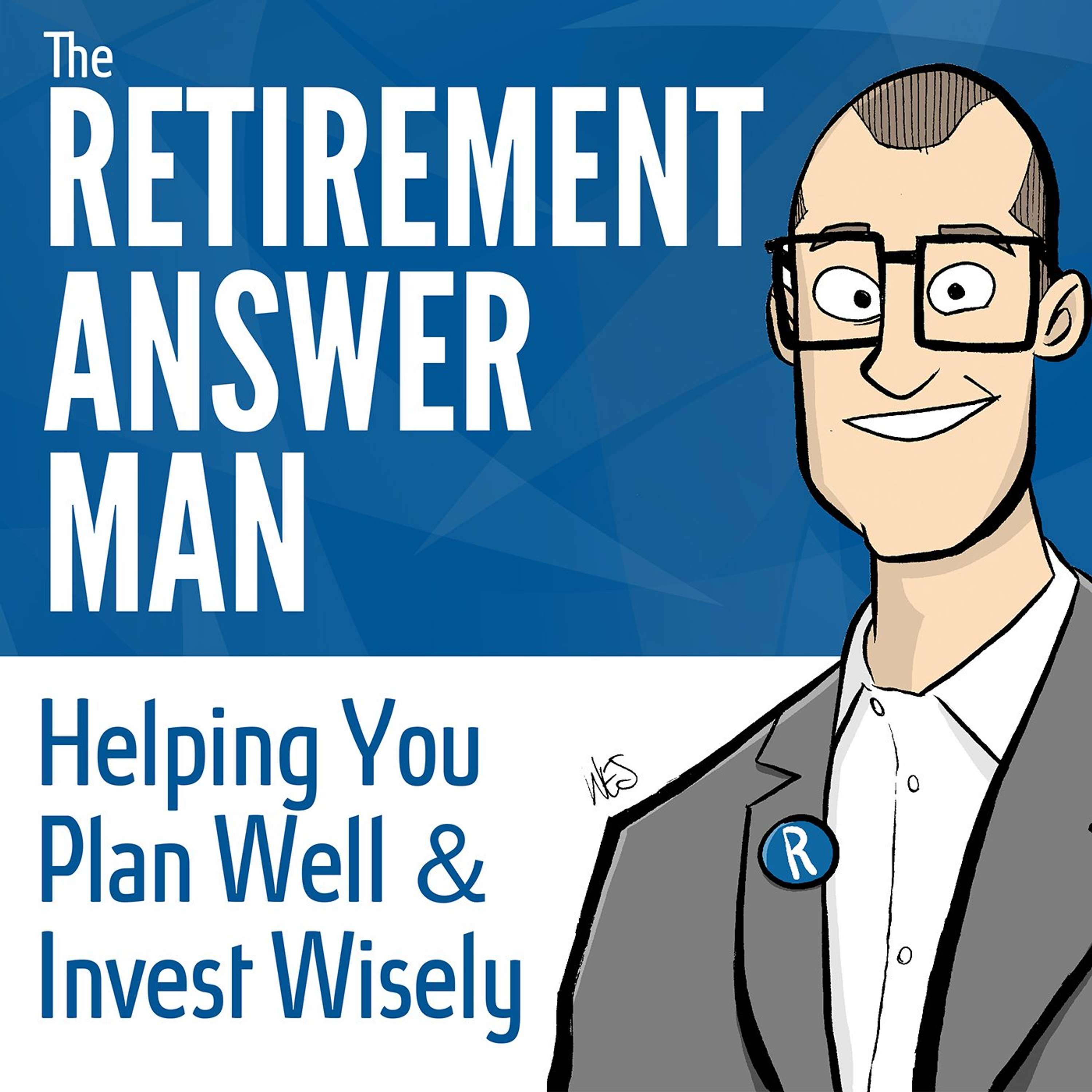
#153 - Real Life Personal Growth And Finance Stories with P.T. Money
Every one of us has a Facebook face - right? It’s that face we put on for the Facebook watching world (at least we HOPE they are watching). Here's what it looks like: We have a great life, great relationships, new car, enviable vacation pictures - you know the drill. It’s the adult way of impressing our friends and family. But the problem is that it’s not entirely true. On this episode of The Retirement Answer Man, I’m talking with a friend of mine, P.T. Money about the real life personal growth stories we all have related to our finances. It’s seldom pretty. We all have fits and starts in the journey. P.T. has a new podcast featuring those stories and I want you to hear about it, on this episode. None of us get our finances right in the beginning. It’s OK. It’s personal growth. I remember when I started out as a young adult - at least I thought I was an adult. I was doing the things I wanted to do, thinking I knew everything I needed to know, doing what came naturally and easily. I made a LOT of mistakes, with money and with my relationships. But it was those mistakes that woke me up to the needs in my own life, to the areas of growth that I needed to take seriously in my own life. On this episode, I’m trying to point us toward the real life struggles we all face so we can understand that none of us is alone on the journey. We all make the bone-headed mistakes that grow us up over time. Did you know what you wanted to do right out of high school? Me neither. Very few of us do. But we have this crazy-headed notion that if we don’t know what we’re going to do for the rest of our lives by the time we are 18, something is wrong with us. And even worse, we think that once we are in that career or in a serious vocation, that’s it. We’re stuck there for life. My guest today is P.T. Money - he’s a guy who almost literally fell into being an accountant because it was the family trade, so to speak. But by the time he was 30 years old he discovered that it actually WASN’T what he was wired to do. You can hear his story, how he discovered the bad fit, and what he did to pivot away from accounting and build a happier and more profitable career, on this episode. The growth curve exists all throughout life. Get used to it. Early on in life, I believed that one day I’d arrive, I’d get to the place that my personal growth would taper off. But that’s not at ALL what’s happened. I turn 50 this next week and one of the many things I’ve learned in my time on the planet is that the growth curve never stops, no matter how old and experienced you become. So if that’s true, how can we maximize the learning curve to amplify personal growth and make the most of the years we have? That’s the topic of discussion on this episode, with my guest P.T. Money. Building toward your retirement through a side-hustle is an incredible idea. We’re all hoping for the best retirement possible. That includes plenty of money to know that we’ll be comfortable and secure for the years we have left after leaving our full-time employment or career. But I want to challenge you to think a bit bigger than that. What can you do to put together a side hustle based on an area of interest or passion, and use it to make a bigger difference in the world - both now and during your retirement? What would that look like? I bet you could make it happen. My guest P.T. Money and I talk about that possibility on this episode of The Retirement Answer Man. OUTLINE OF THIS EPISODE OF THE RETIREMENT ANSWER MAN [0:29] My introduction to this episode about life evolutions and personal growth.[5:02] What happens with something (someone) who evolves.HOT TOPIC SEGMENT [6:18] Burnout is evolution gone wrong.[9:00] How to pivot your work to serve you rather than the other way around.PRACTICAL PLANNING SEGMENT [9:40] My guest, P.T. Money - and why I’ve invited him on the podcast.[12:15] Why P.T. left the accounting practice.[13:34] How P.T. defaulted into accounting and realized it wasn’t for him.[14:59] Changing emphasis and career - and the financial growth ensued.[20:03] What P.T. sees for himself in the next few years, and regarding retirement.[23:10] How to find and work toward “your thing” to build a side hustle.[27:00] P.T.’s goals for his podcast and the types of conversations he wants it to provide.[30:02] How you can get in touch with P.T.TODAY’S SMART SPRINT SEGMENT [30:28] Your baby step for this week: Start your own “In Case of Emergency” plan.THE HAPPY LAB SEGMENT [33:25] Play this episode of the podcast at ¾ speed and let me know what you think! It’s a riot!RESOURCES MENTIONED IN THIS EPISODE www.PTMoney.comPodcast: The Masters of MoneyFinCon conferenceGet in on “6 shot Saturday” - sign up on the website.Contact Roger: http://www.rogerwhitney.com/retirementanswers/Roger’s retirement learning center: www.RogerWhitney.com/learnThe Retirement Answer Man Facebook page: www.Facebook.com/RetirementAnswerMan TWEETS YOU CAN USE TO SPREAD THE WORD #153 - Real Life #PersonalGrowth And #Finance Stories with @PTMoneyNone of us get our #finances right in the beginning. It’s OK. It’s #PersonalGrowth @PTMoneyDid you know what you wanted to do right out of #HighSchool? Me neither @PTMoneyThe#GrowthCurve exists all throughout life. Get used to it @PTMoneyBuilding toward your #retirement through a #SideHustle is an incredible idea @PTMoney
36:0818/01/2017
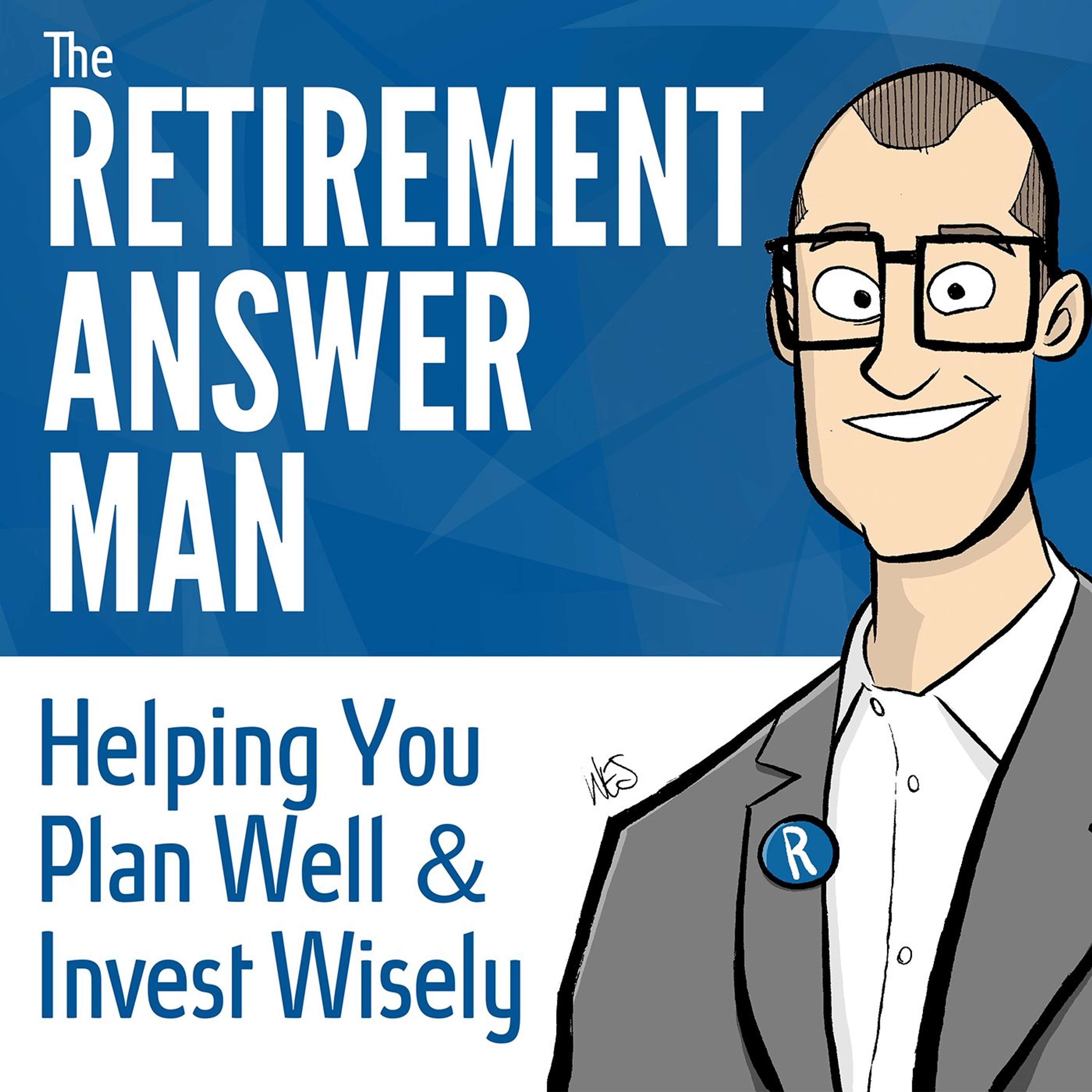
#152 - Financial Forecasting: 2017 Predictions And The Impact They Have On YOU
Financial forecasting season is upon us! It’s the new year and there’s always a handful of predictions you see regarding politics, markets, social trends, and much more. If you spend much time listening to the talking heads out there you can come away very confused. Why? Because you’ll hear as many opinions and forecasts as there are talking heads! On this episode of The Retirement Answer Man, I’m going to talk a bit about the role financial forecasting should play in your financial decisions. You’re going to find out what I think of all the expert advice out there, so be sure you give this one a listen. Financial forecasting is often primarily about attention, not truth. Don’t get me wrong, the people out there making their financial forecasts truly believe that what they are saying is really going to happen. But they’re not making their forecasts solely for the sake of helping you know what to do. They are trying to get attention, to get eyes on themselves and their organizations. That enables them to be positioned as an expert in the field and hopefully (they are hoping) they will get some clients or business as a result. So how should YOU take action based on the forecasts? I’m going to tell you what I think, on this episode. What is a donor advised fund and how can you use one? On this episode of The Retirement Answer Man, I received a question from a listener about the wisdom of putting some assets into a “donor advised fund.” What is that you may ask? A donor advised fund is essentially a philanthropic financial vehicle established at with some public charity. It allows you - or any donor for that matter - to make a charitable contribution, receive an immediate tax benefit and then recommend grants from the fund over time. So in this way, as a donor, you are able to also be an advisor to the fund regarding what they do with the money that's given. So in answer to my listener’s question I dive into those types of funds and give a bit of advice about how you can wisely contribute to and participate in them. Do you have retirement funds in an ESOP? Is there any way to move them out? One of the things I love to do on The Retirement Answer Man show is answer listener questions - and on this episode, I got a great one about ESOP accounts. An ESOP is an employee stock ownership plan. It’s a qualified plan designed to invest primarily in the stock of the company where you are employed. ESOPs are "qualified" in the sense that the ESOPs sponsoring company, the selling shareholder and participants receive various tax benefits. But the listener who asked the question wants to diversify the account. Is it possible? I’ve got some suggestions for him on this episode, so be sure you listen. Are you device-addicted? You should take the question seriously. I recently saw a video created by a very thoughtful and wise guy named Simon Sinek. He was talking about the tendency among Millennials to be “device addicts.” He pointed out that the “ding” of a device notification stimulates the very same chemicals in the brain as shot of cocaine. That means we are able to become physically addicted to the sensation on certain levels. Why am I asking the question? Because I’m concerned not just about retirement planning, but retirement planning that leads to a HAPPY life. And if you’re addicted (to anything) I doubt you’re going to be your happiest. Find out how I suggest you go about answering the question on this episode. OUTLINE OF THIS EPISODE OF THE RETIREMENT ANSWER MAN [0:32] My introduction to this episode of the podcast and an invite to check out the blog.[2:31] Retirement Plan LIVE begins February 1st with a new couple!HOT TOPIC SEGMENT [4:26] The issue of predictions for the markets for 2017.[6:49] How I think about predictions (it’s all about attention).[9:10] What you have to do practically in light of predictions.[14:13] High value activities regarding your portfolio.PRACTICAL PLANNING SEGMENT [15:45] QUESTION: How wise are donor-advised funds and how should I approach them?[22:01] QUESTION: My portfolio is full of company stock only by requirement (ESOP). Is that legal?[26:06] QUESTION: Can a spouse take an early SS benefit on their own then “upgrade” to the higher benefit of their spouse when the time comes?TODAY’S SMART SPRINT SEGMENT [30:06] In the next 7 days, update your net worth statement for 2016.THE HAPPY LAB SEGMENT [31:15] Do you have a device-addition? Do a self examination.RESOURCES MENTIONED IN THIS EPISODE Contact Roger: http://www.rogerwhitney.com/retirementanswers/www.RogerWhitney.com/blog - check out my new blog!Roger’s retirement learning center: www.RogerWhitney.com/learnThe Retirement Answer Man Facebook page: www.Facebook.com/RetirementAnswerMan TWEETS YOU CAN USE TO SPREAD THE WORD #152 - #FinancialForecasting: #2017Predictions And The Impact They Have On YOU#FinancialForecasting is often primarily about #attention, not #truthWhat is a #donor advised #fund and how can you use one?Do you have #RetirementFunds in an #ESOP? Is there any way to move them out?Are you #DeviceAddicted? You should take the question seriously
33:5911/01/2017
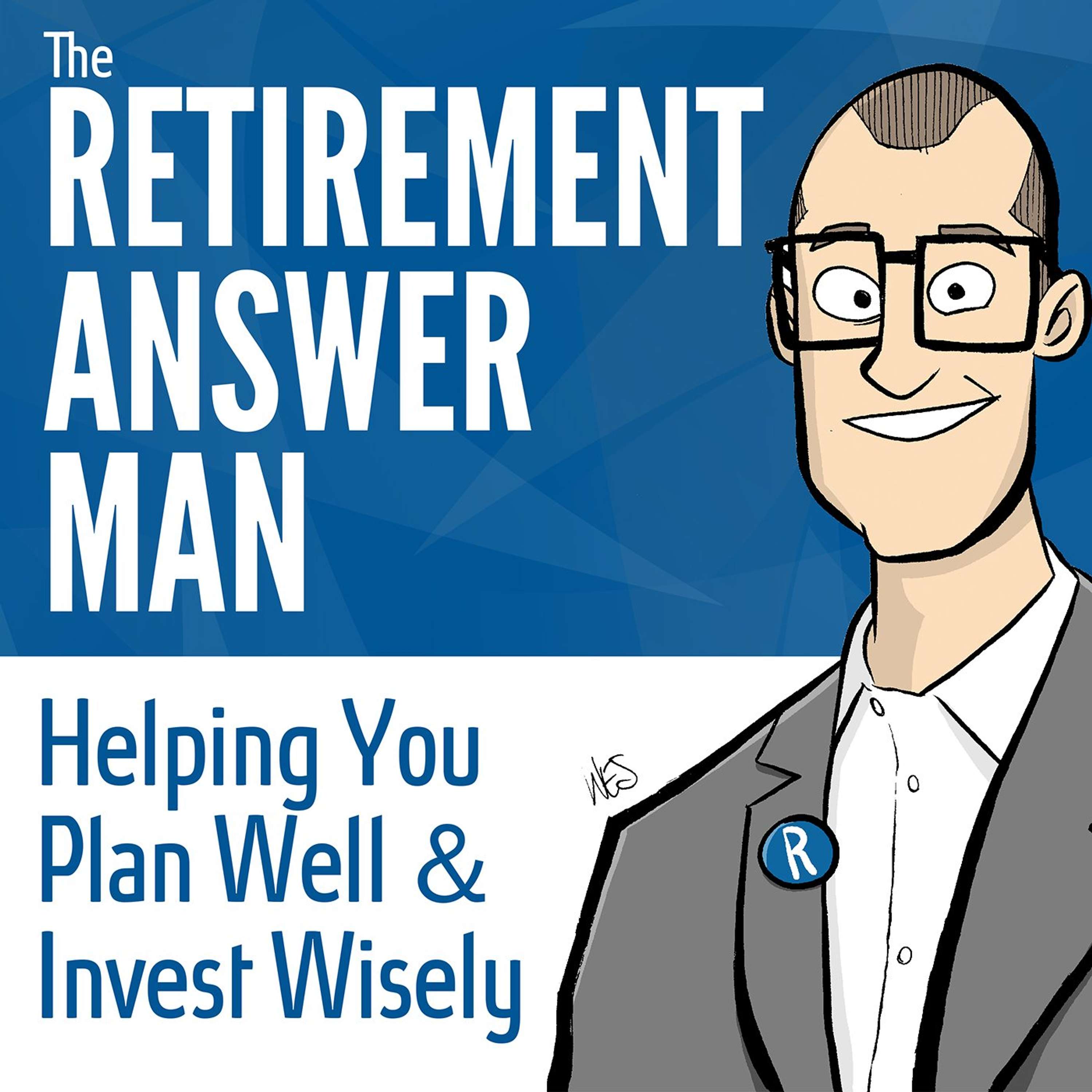
#151 - Setting Retirement Goals and Working Toward Them: How One Couple Is Doing It
Welcome, welcome welcome! It’s 2017 and time to address those retirement goals you’ve been putting off. And I’m here to help. I’m Roger Whitney, otherwise known as The Retirement Answer Man. I’m here every week to help you think through, plan for, and take action toward a better retirement than you can conceive! Well, maybe not that extreme but I do want you to have a happy and healthy retirement that is personally rewarding for you and yours. This podcast is all about that end goal. On this episode, I’ve got a lot to share about where we’re headed in the next year and we talk with our very first participant in the Retirement Plan Live event from a few years ago, Carl. I hope you’ll take the time to listen. I’m now BETTER EQUIPPED to help you with your retirement goals. As I was looking toward 2017 and trying to focus on the things that I believed would help me serve you and my clients better, I decided that I needed to make a huge change in my life. I dropped some of the licenses that I’ve held for over 20 years. Why would I do that? Because now there is a lot less government regulation inhibiting the kind of things I can talk about on this podcast and on my blog. Now I can actually mention common retirement vehicles like "mutual funds" and others. I’m better equipped to help you navigate your retirement goals and am eager to do so. Find out how I do it week to week on this episode of the Retirement Answer Man. Retirement goals are not something you should put off. Most people wait far too long to begin setting retirement goals. It’s easy to think that you have plenty of time but the sad reality of the way life goes is that time sneaks up on you and retirement is here before you know it. You’ve got to start setting goals and reaching for them NOW so that your retirement is a happy, secure, and meaningful one. On this episode, I’m talking with the very first person who participated in my annual Retirement Plan Live event, Carl - and he’s going to share how he’s doing with his retirement plan and the enthusiasm that has come into his life from doing so. You’re going to want to hear this one. How sharing your story could help someone else navigate their own retirement. In this episode of The Retirement Answer Man, I talk with Carl. He and his wife were two of the very first people I worked alongside in my Retirement Plan Live event a few years ago. Carl has begun to share his own story of planning and moving toward retirement in his own blog. What he’s discovered is that his story is beneficial to others who are on the same path he is - and I would venture to say that every one of you has the same ability to impact others with YOUR story. So what are you waiting for? Listen to this episode to find out how you can tell your story among the Retirement Answer Man community and see how it encourages others. Our very first Retirement Plan Live participant is on the way to his retirement goals. Carl and his wife are just a few years away from retirement. They’ve got their retirement goals laid out before them and are systematically ticking them off the list, one at a time. In this conversation, Carl and I talk about their recent move from their long-time home to a cabin in another community 100 miles away. The transition has gone well and Carl points to a few things they did that he believes made the transition less of a hassle than they expected. He also shares how he’s built a “bridge” into his retirement and why he recommends that everyone who is a few years away from retirement do the same thing. Carl’s a wise man and you’ll learn a lot from his experience, so be sure you listen.OUTLINE OF THIS EPISODE OF THE RETIREMENT ANSWER MAN [1:51] My word for the year that I’m going to be focusing on: Focus[1:30] What is YOUR word that you want to focus on this coming year?HOT TOPIC SEGMENT [2:20] Why 2017 is the year the gloves are coming off.[4:15] Why I’ll be talking a bit more freely and why investment management will be a topic of conversation.[6:18] How you can ask your questions.PRACTICAL PLANNING SEGMENT [7:44] Our first ever Retirement Plan Live participant: Carl.[9:10] How sharing our stories helps other people plan their retirement.[9:45] How Carl is doing with his retirement plans as highlighted in RPL.[12:10] The transition from one home to another as part of the retirement plan.[16:30] The current retirement plan Carl is working through - and where he is in it.[18:11] Plans to quit work earlier and why Carl is not doing it.[21:40] Discussions about how they will be husband & wife in the retirement years.[24:00] Carl’s blog and the enthusiasm that has come from it.[28:00] Why it’s important to build a bridge into your retirement years.THE HAPPY LAB SEGMENT [33:21] Finding dreams to fuel you while you still have time.TODAY’S SMART SPRINT SEGMENT [35:13] In the next 7 days, subscribe to this podcast and leave some comments on the blog posts - OR ask your own question.RESOURCES MENTIONED IN THIS EPISODE www.TheRetirementManifesto.com - Carl’s blog about retirementLeave your questions: http://www.rogerwhitney.com/retirementanswers/Roger’s retirement learning center: www.RogerWhitney.com/learnThe Retirement Answer Man Facebook page: www.Facebook.com/RetirementAnswerMan
37:2604/01/2017
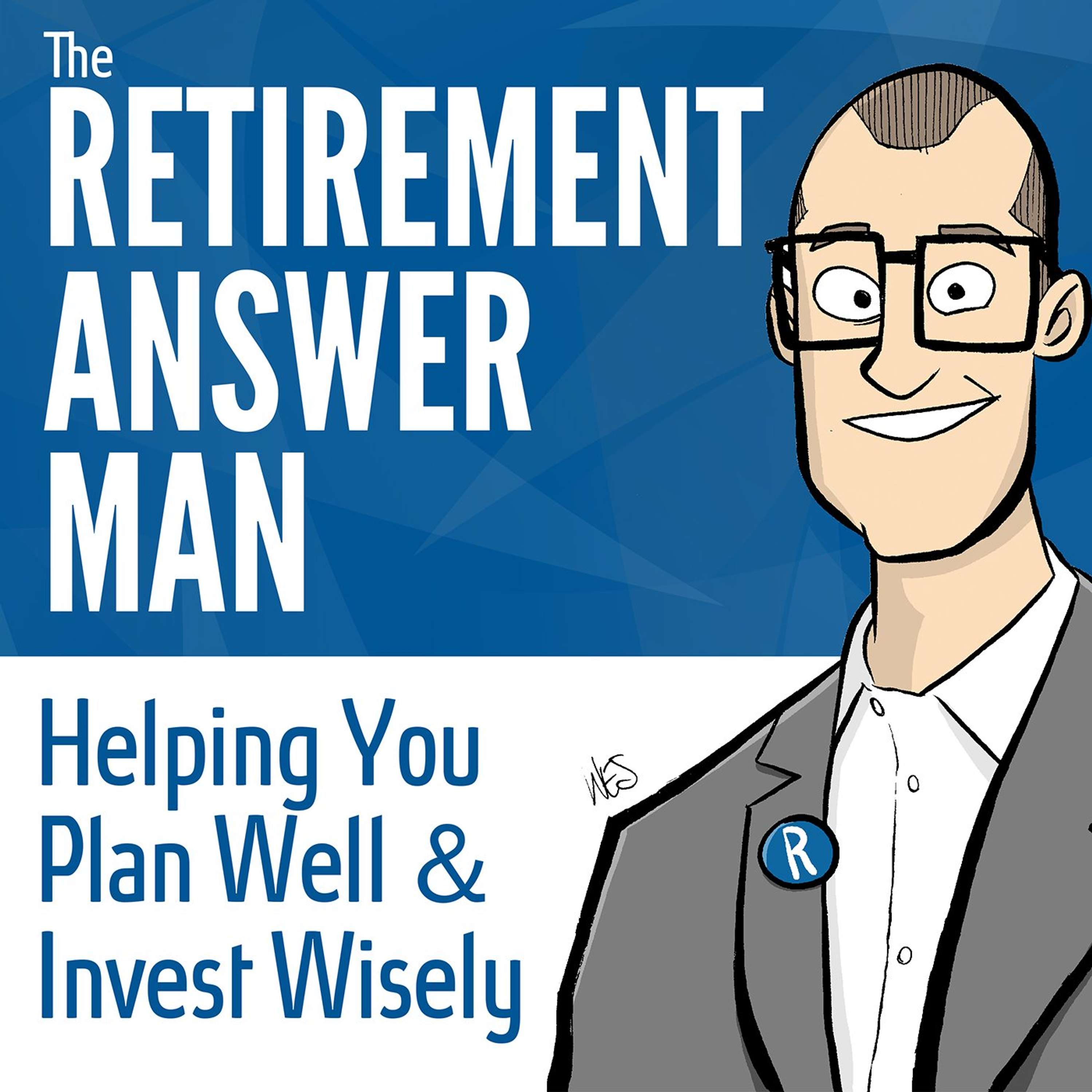
#150 - Dealing With Failure By Seeing It As Feedback
Dealing with failure is never an easy thing. We all have things we regret, wish we could do over, or would like to have never done in the first place. This episode of The Retirement Answer Man is filled with YOUR feedback to this show - over 220 responses you sent in at my request, responses to my annual listener survey. And you didn’t hold back! There was lots of great advice for making the show better and a few criticisms that I have to admit stung a bit. But I’m not going to take it personally - I’m making the choice to deal with the potential failures revealed in your feedback as exactly that - feedback. I’m going to use it to become better! I hope you listen in. The Retirement Answer Man 2016 Listener Survey - the results are in! I am one of the few podcasters I know who actually does a listener survey each year - and I do it for a very specific reason. I honestly feel that the podcast is about you. I want to talk about the things that YOU feel will be most helpful to you, so I need to hear how the things I’m doing are impacting you on a practical level. As a result of the excellent feedback I received this year, I have some changes to announce and some promises to make about the show going forward. If you want to know what’s coming on the RAM show in the next year, take a listen to this episode! Could you use some practical case studies of real-life retirement issues? Apparently, all of you who listen to The Retirement Answer Man show are a practical bunch. The listener survey reveals that you want me to do more case studies - you know, the practical stuff that helps you apply retirement strategies and principles to real-life situations. And because you asked for it, that’s exactly what I’m going to do in 2017. In addition to my annual “Retirement Plan Live” (which is coming up after the first of the year), I’m going to do a few more case studies of various sorts throughout the year. I want the show to be as helpful to you as possible, so thanks for letting me know what you want! Do you feel like a failure when it comes to your retirement planning? Many people wait far too long to start planning for a happy and healthy retirement. It takes time to build up the funds needed for a secure retirement and you know, time has a way of sneaking up on us all too quickly. If you’re feeling fearful about your retirement I want to encourage you that it’s never too late to start. There are some important things you can begin to do today to mitigate the damage of procrastination and get moving in the right direction. Don’t worry about what’s coming in the future. Start focusing on what you can do now to make your future better. These are the top fears people have when it comes to retirement. The 220 participants in my 2016 Listener survey were very clear and honest when it came to expressing their top fears relating to retirement. Would you like to hear what they said? Number one on their list of fears was the rising cost of healthcare. That makes complete sense because our senior years are often years of rising medical costs. A close second on the list is a related issue in a sense, and that is that they will run out of funds to live on before they run out of life! What can you do to offset your fear and ensure that they never come true? One thing you can do is listen to The Retirement Answer Man podcast. Each week I’m aiming at helping you prepare for the happy and healthy retirement of your dreams. You could learn a lot by listening. OUTLINE OF THIS EPISODE OF THE RETIREMENT ANSWER MAN [0:24] The quote I’ve learned to live by and how we need to think about failure and feedback.[1:15] A personal example of my first major failure: debate class.HOT TOPIC SEGMENT [3:20] The responses I received from 220 of you on my annual listener survey![7:15] Your most enjoyed segments of the show![8:31] The things you want to see more of on this podcast.[9:15] What excites you most about retirement - survey responses.[10:35] The things you are most worried about when retirement comes.[11:34] Your comments and ideas about how the show can become better.[15:51] The changes you can expect for the 2017 version of The Retirement Answer Man.PRACTICAL PLANNING SEGMENT [21:20] The end of the road map personal planning option I’ve been providing and the advent of something new.[24:58] Book recommendations from listeners like you![30:30] How you can leave a book review.TODAY’S SMART SPRINT SEGMENT [30:43] Your 7 day goal for this week: Make a commitment to take a step back and not worry.RESOURCES MENTIONED IN THIS EPISODE BOOK: Bounce Back: Overcoming Setbacks in Business and LifeBOOK: Winning the Loser’s GameBOOK: Outwitting the DevilBOOK: Living ForwardRoger(at)wwkllc.com - reach out to Roger if you want to be on retirement plan live.www.RicherSoul.com - Rocky’s site.Contact Roger: http://www.rogerwhitney.com/retirementanswers/Roger’s retirement learning center: www.RogerWhitney.com/learnThe Retirement Answer Man Facebook page: www.Facebook.com/RetirementAnswerMan
34:0721/12/2016
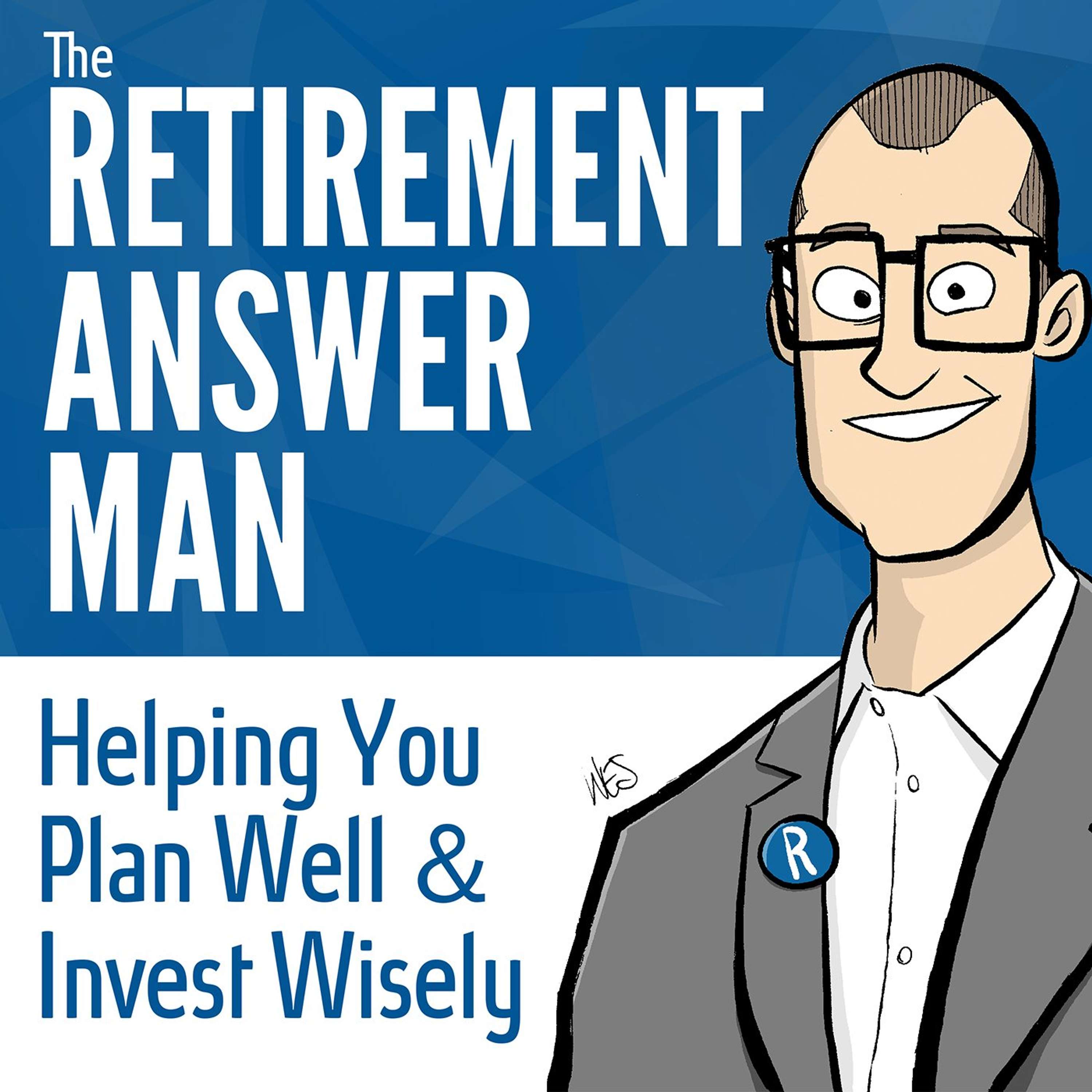
#149 - How The Temptation of Hyperbolic Discounting Can Bite You In the End.
You may not even know what “hyperbolic discounting” is. But it’s something we all fall prey to numerous times, at least weekly. It’s the temptation to do something now that you know is not the best long-term. On this episode, I tell the story of how I bought a set of noise canceling headphones even though I knew that the money spent on them could have been invested more wisely in other ways. It’s an example of hyperbolic discounting that I use to show you how you and I need to be careful that we’re not making decisions today that will come back to bite us tomorrow. Is your retirement fund really going to be there when you need it? As human beings we have this amazing capacity to convince ourselves that the decisions we’re making are the best decisions we could make, when in fact, they simply aren’t. It’s called self-deception and it’s part of being human. One of the ways we do that is by giving in to the temptation of hyperbolic discounting - justifying a choice that’s a short-term gain at the expense of a bigger long-term payoff. It’s why we eat the cookie now rather than “being good” for the sake of reaching that ideal level of fitness that we really want. On this episode, I’m talking about the role that hyperbolic discounting plays in retirement planning and why it’s important to have the outside perspective and help of a qualified advisor. I hope you’ll take the time to listen - for the sake of your long-term goals. My 3rd annual Retirement Plan LIVE will begin in February. Do you want in? One of the most popular and helpful things that I do on The Retirement Answer Man podcast is the annual Retirement Plan LIVE. It’s where I take a real-life person (maybe you) and work through their financial situation alongside them to devise a plan toward the things they want to have in place when they reach retirement. But I can’t do it alone. I need someone who’s willing to be the subject of the plan. Is that you? You can find out who I’m looking for and whether you’d be a good fit on this episode of The Retirement Answer Man! Anytime an advisor makes recommendations before he understands your situation, you should run! A listener wrote to me to ask what the difference is between annuities and a whole life insurance policy. It turns out her questions stem from a conversation she’s been having with an insurance advisor who’s encouraging her to look into the possibility of whole life insurance instead of annuities. I don’t know enough about her situation to say that he’s giving her bad advice but I do know this: Anytime and advisor begins to point you in a certain direction without having assessed the entire situation, you need to be very, very careful. Find out why I’m so cautious, on this episode. One way you can avoid hyperbolic discounting is by taking a small step of immediate action. Hyperbolic discounting is when you choose a small benefit today at the expense of a larger benefit later. It’s the opposite of practicing delayed gratification. On my smart sprint segment of this podcast episode I give you a simple, easy plan to increase your retirement contributions that you won’t even feel month to month but that will enable you to avoid the temptation of doing nothing at all to increase your retirement. You can find out what it is on this episode. OUTLINE OF THIS EPISODE OF THE RETIREMENT ANSWER MAN [0:27] The struggle with temptation we all face and the cost they can have on life..HOT TOPIC SEGMENT [3:00] Beginning 2/1/2017 - The 3rd annual Retirement Plan LIVE begins![5:00] What it takes for YOU to be my RPL subject for this year!WHAT DOES THAT MEAN? SEGMENT [8:30] What is Hyperbolic discounting?PRACTICAL PLANNING SEGMENT [12:37] How should you evaluate your insurance needs in light of current insurance plans?[17:05] Why a second opinion on issues is important.[19:40] QUESTION: How should you evaluate annuities VS insurance solutions?[21:38] QUESTION: What should I do with extra money each month?TODAY’S SMART SPRINT SEGMENT [25:33] Go to your retirement accounts and review your allocations, then increase your contributions by 1%.THE HAPPY LAB SEGMENT [26:21] The importance of having little conversations all through life - and why you need more positive things to keep you on track.RESOURCES MENTIONED IN THIS EPISODE Roger’s email: Roger(at)wwkllc.com - submit yourself for Retirement Plan LIVEContact Roger: http://www.rogerwhitney.com/retirementanswers/Roger’s retirement learning center: www.RogerWhitney.com/learnThe Retirement Answer Man Facebook page: www.Facebook.com/RetirementAnswerMan TWEETS YOU CAN USE TO SPREAD THE WORD #149 - How The #Temptation of #HyperbolicDiscounting Can Bite You In the EndIs your #RetirementFund really going to be there when you need it?My 3rd annual #RetirementPlan LIVE will begin in February. Do you want in?Anytime an #advisor makes recommendations before he understands, you should run!One way you can avoid #HyperbolicDiscounting is by taking a small step of immediate #action
30:1314/12/2016
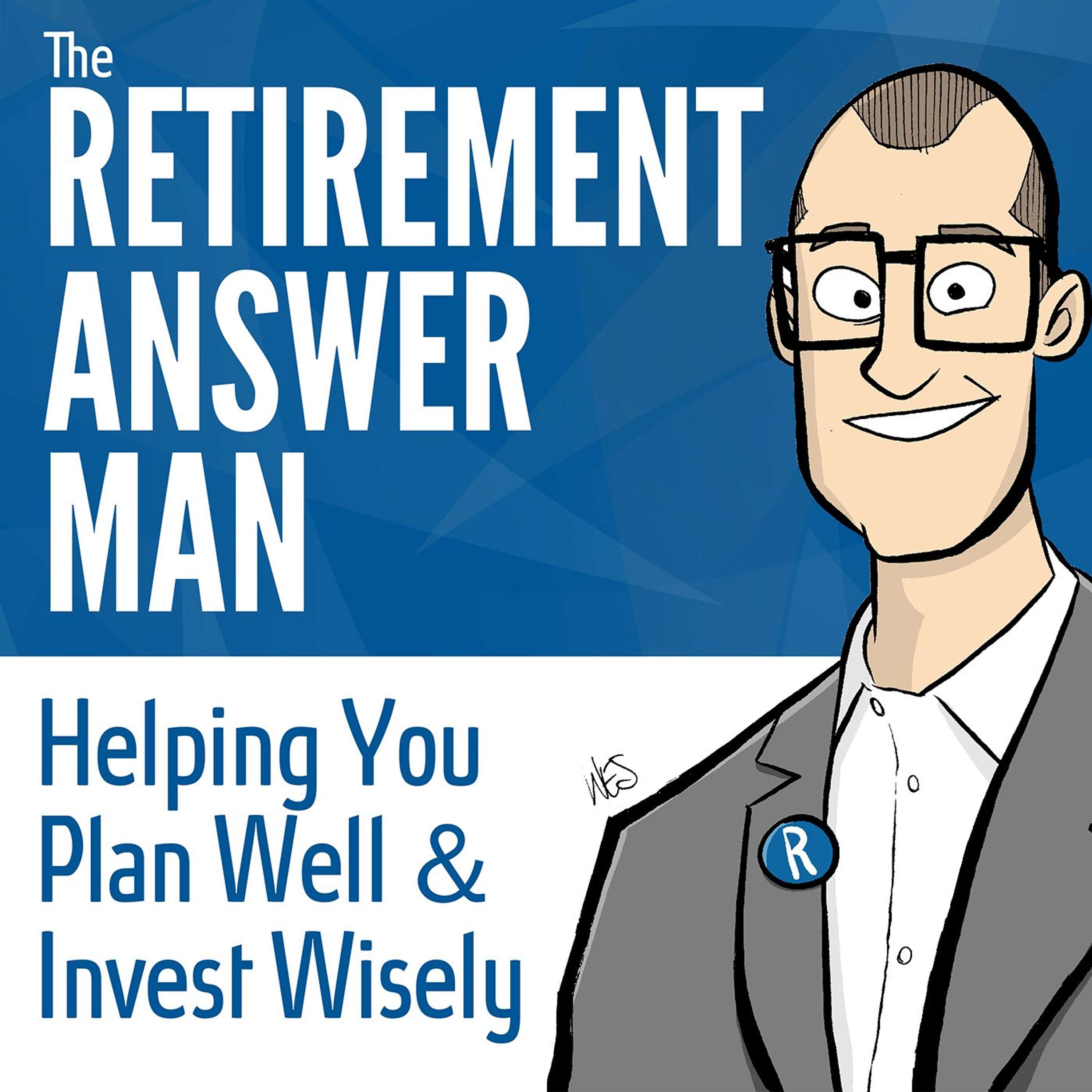
#148 - Maximizing Social Security For Your Best Retirement Ever!
You want to get the most out of your Social Security benefits, right? I’m with you, maximize Social Security as much as you can! But there’s a lot of conflicting advice out there about what you should do to make that happen. Some advisors are saying you should take early but reduced benefits in view of life expectancy while others are saying the early benefit is wise because social security is not a very stable system and it may not be around by the time you can take the increased benefits. What should you do? On this episode I’m going to walk you through the outline of a presentation I gave on this very subject, so grab your thinking cap and let’s get to work! Why are more retirees taking their early, reduced social security benefits? It’s more common than ever in recent years that people who qualify for taking social security are doing so at the earliest possible moment. It’s totally legal and OK to do, but when you do you get a reduced rate of benefit - and you’re locked into that rate for the rest of your retirement years. If you get less money, why are more people doing it? On this episode of The Retirement Answer Man, I’m going to explain it to you and even walk you through a few scenarios of what the numbers look like if you take the early benefit VS waiting. I think you’ll be surprised at the difference! Is social security even going to be around when you reach your maximum benefit age? There are many people who take the early but reduced benefit on their social security because they are not confident that the social security system is stable enough to last until their full benefit age. I get that. There’s been lots of scary prognosticating surrounding the viability of social security that’s made the rounds over the years. Coupled with that is the sentiment many people have that they’ve worked hard all these years to fill their social security fund so the minute it’s available, they want it! On this episode, I’m going to give you my opinion about whether or not the good old SS administration will be around for very long. I hope you listen. Before you decide to take your social security benefits at the earliest date, think of your family. I totally get the eagerness many people have to tap into their social security benefits the moment they can legally do it. But when you do so you need to realize that the decision you make will not only impact you, it will also impact your spouse and possibly your surviving children. On this episode of The Retirement Answer Man, I’m going to walk you through a scenario or two to show you what could happen by taking your benefits early and give you some things to consider about whether it’s the best move or not. If you want to maximize social security maybe you should work some during early retirement. I know, it sounds crazy to work during retirement. But on this episode, I’m going to show you the huge financial difference it could make if you simply work a small amount during the earliest years of your retirement. It will not only help you maximize social security for your own benefit but will also dramatically change the quality of life you enjoy during the later years of your retirement. Interested? I think you will want to hear this perspective. OUTLINE OF THIS EPISODE OF THE RETIREMENT ANSWER MAN [0:21] My introduction of this episode about maximizing your social security benefits.HOT TOPIC SEGMENT [4:04] Michael Hyatt’s “Your Best Year Ever” course and why I’m promoting it!PRACTICAL PLANNING SEGMENT [6:04] My whirlwind tour of Texas, speaking to CPAs.[8:08] Something important to consider about social security.[10:55] Why you need to review your SS earnings statements.[13:15] How some people take a reduced rate on Social Security benefits.[15:40] Calculating the “break even” age to decide if a reduced rate makes sense.[17:00] How longevity statistics impact the decision.[20:00] Why the decision is not only about your life but those of your family members too.[22:05] Why working during early retirement is making more sense all the time.[24:55] How it could be a bad decision to take early, reduced Social Security benefits.[27:04] A quick example of what could happen in either case.TODAY’S SMART SPRINT SEGMENT [33:18] Choose a word to guide you in making decisions this coming year.THE HAPPY LAB SEGMENT [34:36] What I did yesterday that made me very happy! I didn’t get out of bed until 1 PM - and I didn’t guilt myself out!RESOURCES MENTIONED IN THIS EPISODE Michael Hyatt’s Best Year Ever CourseContact Roger: http://www.rogerwhitney.com/retirementanswers/Roger’s retirement learning center: www.RogerWhitney.com/learnThe Retirement Answer Man Facebook page: www.Facebook.com/RetirementAnswerMan
36:5807/12/2016
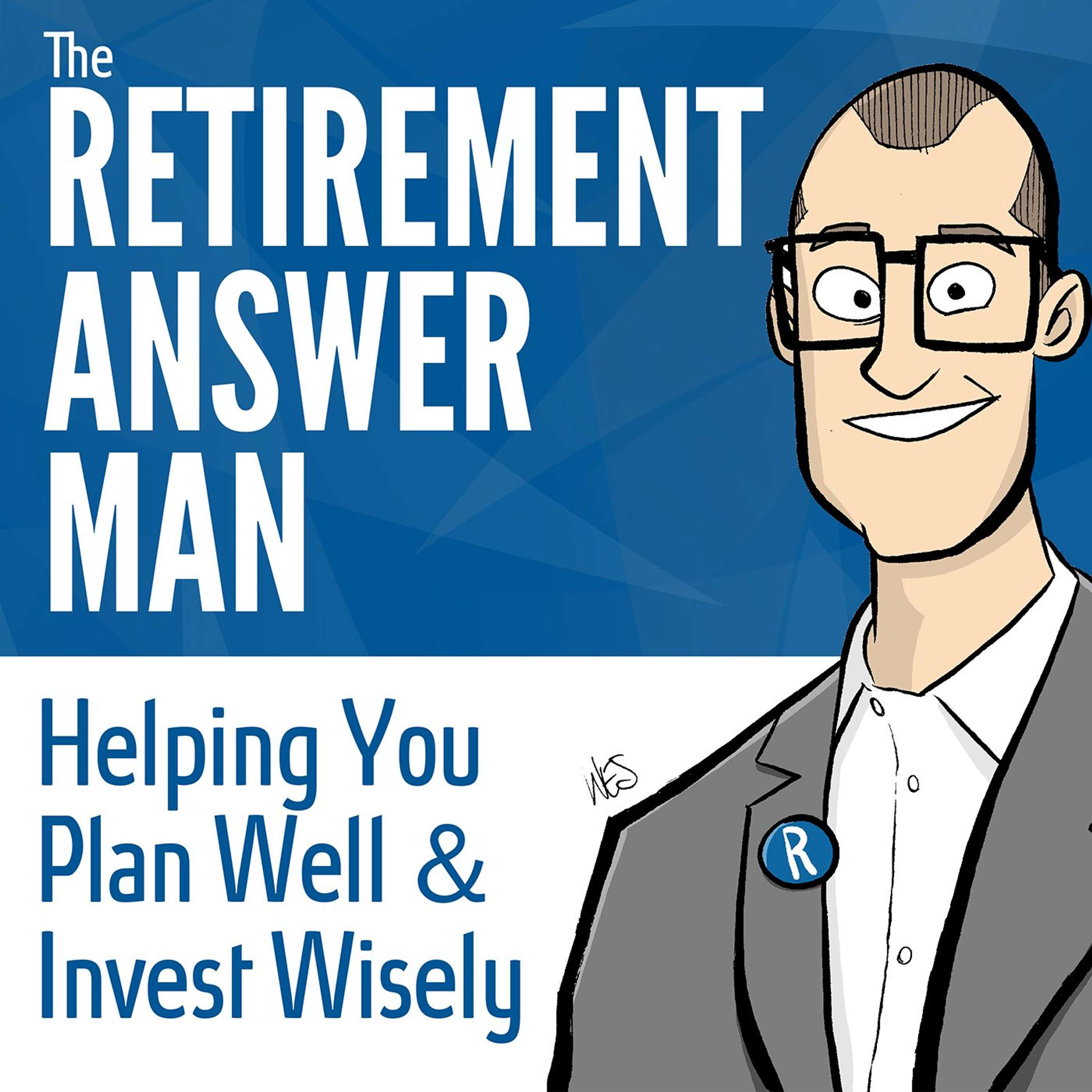
#147 - Avoid The Retirement Crisis By Building Retirement Dreams
I’ve been hearing a lot lately about the so-called retirement crisis that’s happening in the United States. And what I think has happened is this - a long-held belief that rising costs and the decreasing value of the dollar make retirement more and more difficult - has conditioned us to think in terms of survival instead of in terms of possibility. We approach retirement planning with a crisis mindset instead of taking the time to dream about what might be possible. On this episode, I walk you through how I would advise one of my clients to dream up their ideal retirement to avoid any crisis thinking and live their best life as a result. Why you need to ignore the news about the so-called retirement crisis. It’s easy to get into negative ways of thinking without even knowing it. Pessimism comes naturally to people who want to think wisely, which most people who actually engage in retirement planning are. How do we get out of the pessimism trap when it comes to our retirement planning? I think first off we have to realize that there IS no retirement crisis. It’s really a crisis in how we think about retirement. I’ve got some ideas about how you can plan for your ideal retirement from a place of possibility and dreams instead of a place of pessimism. Listen to this episode and you’ll get an earful of how I have seen it happen. Learn to dream about your retirement to open the door to possibilities. One thing I’ve learned from taking trips is this: you aren’t able to see the next mile down the road until you first travel the mile you’re on. It’s a simple and obvious truth about the way life is. When it comes to retirement planning you’re not going to know what’s possible unless you first take steps toward those possibilities - and one of the primary ways you can do that is by dreaming. I mean the nothing-off-limits dreaming we're often afraid of. It helps you set the stage for what your ideal retirement could be. On this episode of The Retirement Answer Man, I walk you through how I advise my clients to dream up an incredible retirement and then show you how we plan for it practically. It’s not theory or rainbows and unicorns, it’s real life planning that makes for a great retirement. Avoid the retirement crisis by getting your financial spaghetti in order. I like to think of retirement planning like a plate full of delicious spaghetti. There are 3 primary things that go into the dish. The pasta, the sauce, and the spices that give it the “zing” you want in a good Italian dish. If you miss any of those things you won’t have the flavor you want and won’t be very satisfied as a result. Too many people approach their retirement planning with a focus on only one of the very important things that go into a great retirement. Can you guess what that is? On this episode, I’m going to tell you what it is - and tell you how to avoid the kind of thinking that gets you into that situation in the first place. Your retirement is YOUR retirement. Make it what YOU want it to be. As I work alongside clients I see it time and time again - people who are concerned that they have the same kinds of things their parents had during retirement, or that they are able to maintain a standard of living comparable to a friend who just retired. You know, I get that way of thinking but I can’t say it’s the best approach. That’s because your retirement needs to be exactly what YOU want it to be, not some vague standard set by somebody else who traveled the road before you. On this episode, I want to say few words about this important issue because if you can make the switch to think of your retirement as truly YOURS, you’re going to discover a retirement that makes you truly happy. OUTLINE OF THIS EPISODE OF THE RETIREMENT ANSWER MAN [0:28] Why I’m going to emphasize how you can think bigger and thrive in retirement.HOT TOPIC SEGMENT [2:58] Michael Hyatt’s “Best Year Ever” event is coming up.[4:35] Custom conference calls we can use together after attending the event.PRACTICAL PLANNING SEGMENT [5:24] Dream up your ideal retirement life when you meet with your financial planner.[8:01] Don’t be reasonable - just WAG a number.[9:23] Retirement planning is not just about the money (the numbers).[12:02] Why investing in relationships is more crucial than ever before.[13:41] Figuring out your purpose in life and what that really means.[15:53] Dealing with the financial part of retirement planning - it’s like spaghetti.[22:35] Why you need to separate your retirement planning into 3 categories.TODAY’S SMART SPRINT SEGMENT [27:18] How you can get Michael Hyatt’s free assessment (6 shot Saturday).THE HAPPY LAB SEGMENT [28:52] My recent experience getting a manicure and what it teaches me about being open to new experiences.RESOURCES MENTIONED IN THIS EPISODE Text “Sixshot” to “33444” to get 6 Shot SaturdayThe Rusty Lion AcademyContact Roger: http://www.rogerwhitney.com/retirementanswers/Roger’s retirement learning center: www.RogerWhitney.com/learnThe Retirement Answer Man Facebook page: www.Facebook.com/RetirementAnswerMan
32:3330/11/2016
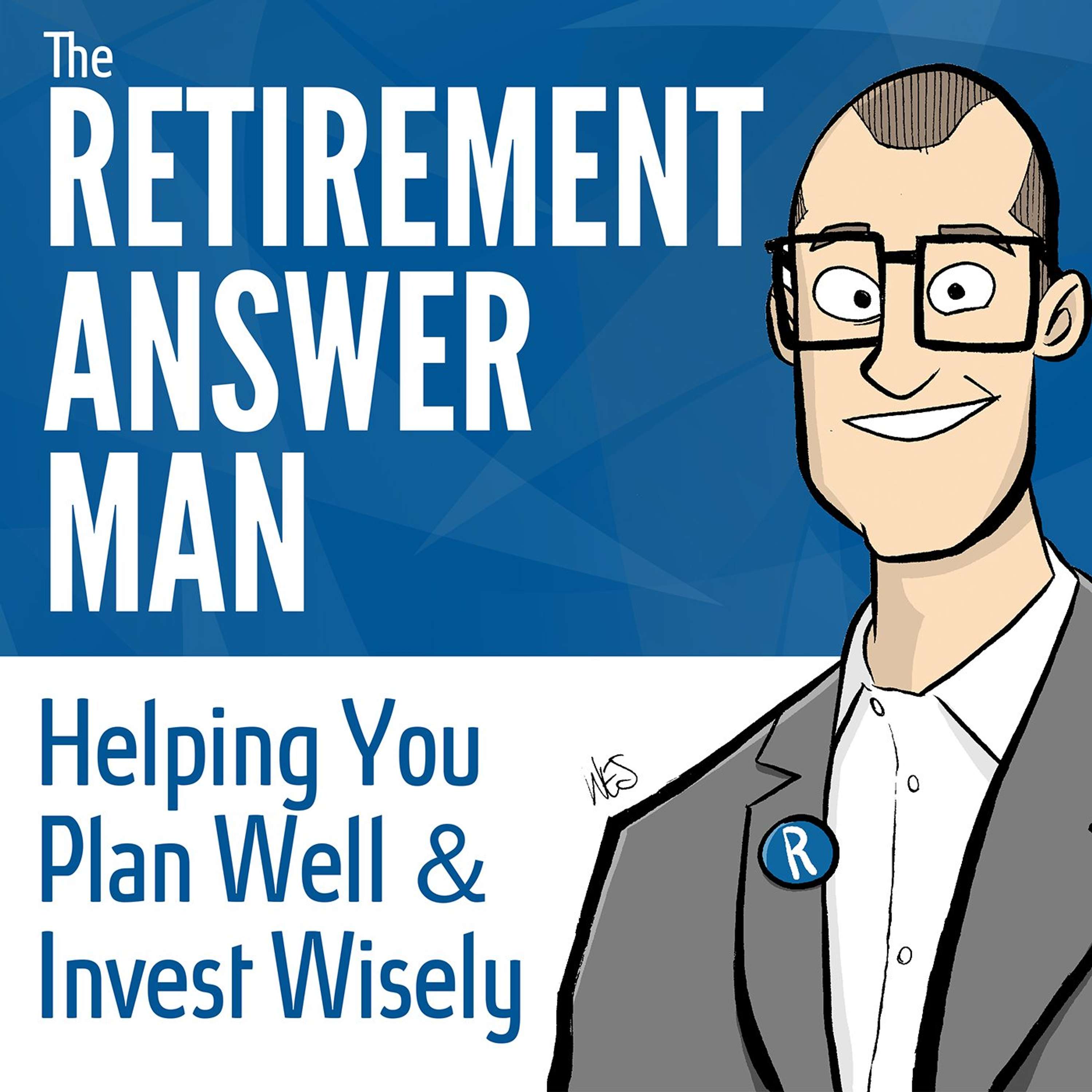
#146 - The Strength of the Dollar, The Forex Market, and Listener Questions About Asset Allocation
In case you haven’t noticed, the recent election has had a pretty significant impact on the strength of the dollar worldwide. The U.S. dollar is actually gaining strength in the world economy - it’s at a 13 year high - and it’s in large part because of what financial gurus around the world believe is going to happen in the U.S. economy because of the election of Donald Trump. But do you know what impact the growing power of the dollar will have on you? If you want to hear how this phenomenon happens, why it happens, and what it means for you, I’ve got you covered on this episode of The Retirement Answer Man. Do you understand what the FOREX market is? The term “FOREX” stands for “Foreign Exchange Market” and it’s where people worldwide trade in currencies. You may not have even known such a thing happens. But anytime you go to another country and you have to trade U.S. dollars for another currency, you’re taking part in a FOREX style trade - one currency value compared to another and exchanged in kind. With the rising value of the dollar these days the FOREX market is going a bit nuts at the moment. Find out why and what it means for you on this episode. Is your long-term care policy safe even if your company is no longer providing long-term policies? After my comments on the last episode of the podcast about John Hancock’s announcement that it will be getting out of the long-term care business, some of you were a bit concerned. You have JH long-term policies so you’re wondering what’s going to happen to that policy. On this episode, I walk you through the scenarios of what typically happens when a large insurer like John Hancock makes an announcement of this type, including how they take care of the policy holders they already have on the books. I think you’ll find that it’s not as bad for you as you may be fear. Should long-term market averages impact the way you draw cash from your retirement account? A listener to the podcast wrote to me this last week pointing out that long-term averages indicate that market downturns are almost always corrected over time. Looking at that fact he suggested that because the market will correct itself in time we shouldn’t be so concerned if we are living through a market downturn during retirement. But I’ve got a slightly different take on the issue simply because even though the facts and figures do add up just like he’s saying, we are emotional creatures and aren’t always able to live with the reality of what’s happening around us. You can hear my entire train of thought about the subject clanking along the tracks, on this episode. What retirement-related issues do you want to hear on this show? It’s time once again for my annual listener survey. It may not sound like a very exciting thing for you to take part in but the responses I receive from the listener survey are the primary way I determine what I’m going to be talking about over the next year’s episodes of the podcast. I’d really love to get your feedback and input. It’s a great way that you can help me help you! If you’d like to know how you can take part in this year’s survey I cover it step by step on this episode of the podcast so set aside some time and give it a listen. OUTLINE OF THIS EPISODE OF THE RETIREMENT ANSWER MAN [0:29] My introduction to this Thanksgiving episode - and my plans for the show moving forward.[1:19] My 2nd annual listener survey - would you help me create better content?WHAT DOES THAT MEAN? SEGMENT [3:34] What is the Forex market?HOT TOPIC SEGMENT [5:27] The 13 year HIGH the U.S. Dollar is on right now.[6:45] How President-elect Trump’s policies are stimulating this change.[7:52] The impact of a high priced U.S. Dollar, worldwide.PRACTICAL PLANNING SEGMENT [9:48] Mike asks, “We are concerned about John Hancock’s future when it comes to our long-term care insurance. Can you help us understand what might happen?”[12:49] John asks, “How do I know the best way to manage my cash reserves and investments in bad markets?”[15:42] Eric asks, “Since market downturns usually average out over time why not invest entirely in equities?”[29:39] Why are bonds typically included in investment portfolios?TODAY’S SMART SPRINT SEGMENT [33:54] Two steps this week: #1 - Complete my survey in the 6 Shot Saturday email. #2 - Look for the ebook in 6 Shot Saturday, take a look at it.THE HAPPY LAB SEGMENT [35:20] Take some time to interact with family this holiday instead of getting stuck in front of the football games.RESOURCES MENTIONED IN THIS EPISODE Sign up for 6 Shot Saturday - text “SixShot” to “33444”Contact Roger: http://www.rogerwhitney.com/retirementanswers/Roger’s retirement learning center: www.RogerWhitney.com/learnThe Retirement Answer Man Facebook page: www.Facebook.com/RetirementAnswerMan
37:2323/11/2016
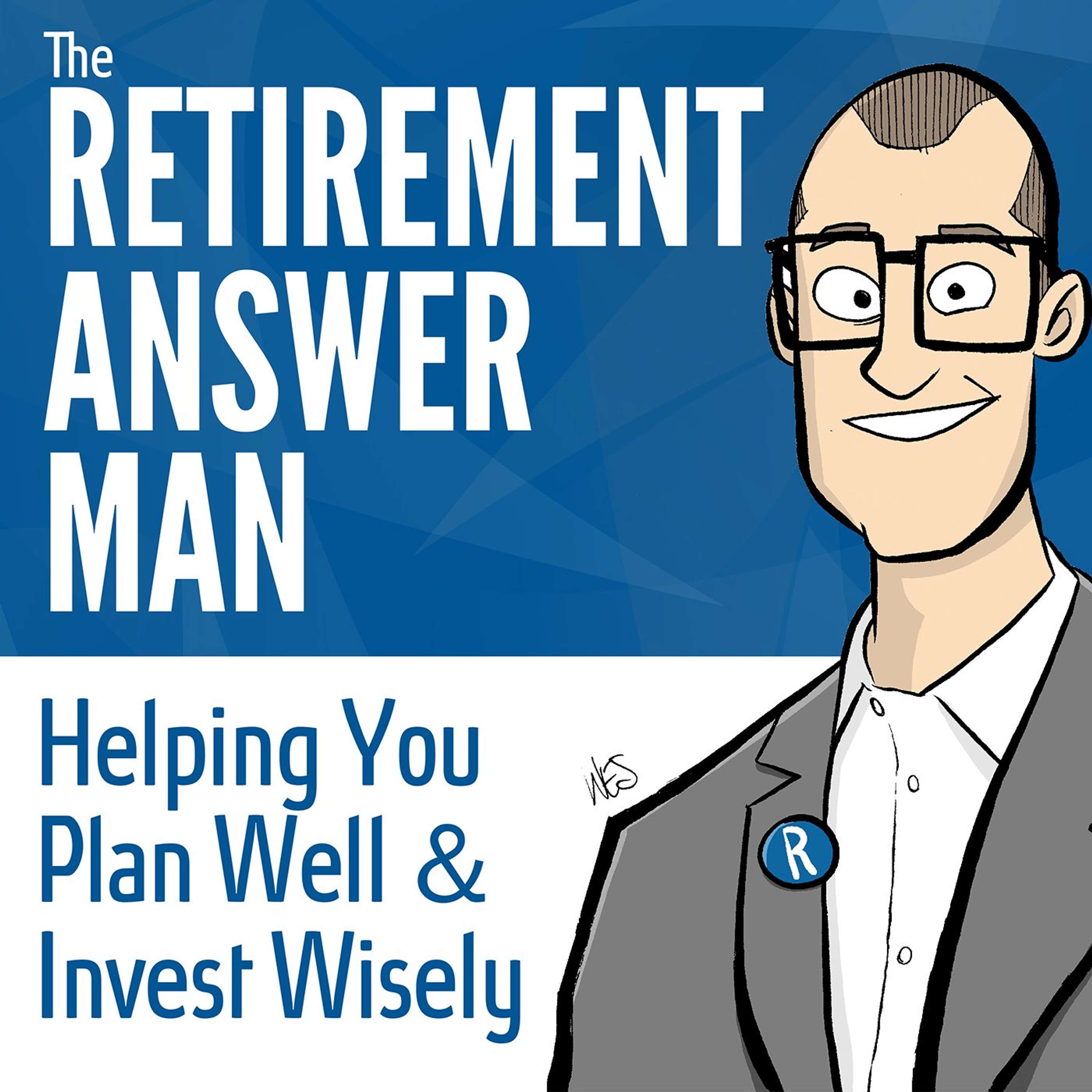
#145 - Year End Financial Issues You Should Consider
It’s almost time for that year end tax planning. 2017 is going to be here before you know it! Over the past few weeks, I’ve been talking with quite a few of my clients about their year end financial planning and realized that the things I’ve been talking about week after week these days could also be of help to YOU! So on this episode, I’m going to walk you through some of the most common things I suggest to my clients at the end of the year that can put them in a better tax and financial position as the end of the year approaches. I hope you find it helpful! The year ends with some BIG NEWS from John Hancock insurance. Did you hear the latest news from John Hancock insurance? The company announced just this month that they will no longer be offering long-term care insurance. That may not sound like such a big deal to you but with the rising cost of healthcare, and especially the type of care that’s often needed in the later years of life, this is a big deal - because John Hancock is one of the biggest players in the insurance industry. Does this indicate a move that other insurance carriers will be making in the future? You can hear my thoughts on the subject on this episode of The Retirement Answer Man. Are embedded capital gains going to mess up your year end financial planning? You have those investments that you never think about - they’re often part of a retirement or investment package that you have in your company plan. Part of the perk you get from those kinds of investments is that they accrue investment profits (hopefully) without you even having to give them a second thought. BUT, when it comes to your year end planning and trying to offset your tax liability you can often get a bite from those plans because the gains you've accrued through them are more than you expect - or you forget about them altogether. On this episode, I explain what embedded capital gains are and how you can take them into account for better year end planning. Don’t forget about managing your gains and losses to minimize your liability. It happens every year. I see it again and again. Someone comes to me eager to reduce their tax liability just before taxes are due and they did nothing before the previous year ended to effectively manage their losses and gains to offset their tax liability. Folks, you’ve got to start thinking about those things now, before the year ends to ensure you’ll be able to do the smartest things you can before you have to pay your taxes. That’s just one example of a handful of things you can keep in mind as you do your planning for the next year. Be sure to listen, I share the most common ways you can make better year end decisions, on this episode. Do you have a flexible savings account with cash in it? Use it up before you lose it! Many people don’t realize that flexible savings accounts - though a great financial tool to use - are typically set up in a way that you have to use the cash in it before the calendar year ends. So if you don’t use it - that’s right - you lose it! On this episode, I give you some suggestions (not advice mind you) about the kinds of things you could do to make the best use of those funds before your time runs out. OUTLINE OF THIS EPISODE OF THE RETIREMENT ANSWER MAN [0:34] My welcome to this episode!HOT TOPIC SEGMENT [3:36] Big economic news: John Hancock will no longer be selling traditional long term care insurance.[6:15] The rise of hybrid policies and what it means for you and me.[7:31] Why traditional policies have plummeted in popularity.[9:45] How I typically deal with long term care issues with clients in my practice.WHAT DOES THAT MEAN? SEGMENT [11:26] Today’s term: Embedded Capital GainsPRACTICAL PLANNING SEGMENT [13:52] Items you should think about when you do year-end planning.[14:30] Charity giving before the end of the year.[15:40] Managing gains and losses to reduce your capital portfolio.[17:00] Required Minimum Distributions and inherited IRA issues.[18 :05] Giving to individuals is a significant way to reduce tax liability.[20:53] Prepaying items you’ll need to pay eventually anyway.[20:53] You might want to use up your flexible savings account cash.[21:51] Health savings account contributions can be a big deal.[22:52] Reviewing your 401 K and considering an increased contribution amount.[23:32] How would a Roth IRA transfer impact your situation?THE HAPPY LAB SEGMENT [24:06] The mean video my wife sent me.TODAY’S SMART SPRINT SEGMENT [25:24] Determine which of the things I’ve mentioned apply to you and get started with your year end planning.RESOURCES MENTIONED IN THIS EPISODE www.Morningstar.comText “6 shot” to “33444” to get the listener submitted reading list.Contact Roger: http://www.rogerwhitney.com/retirementanswers/Roger’s retirement learning center: www.RogerWhitney.com/learnThe Retirement Answer Man Facebook page: www.Facebook.com/RetirementAnswerMan
27:3816/11/2016
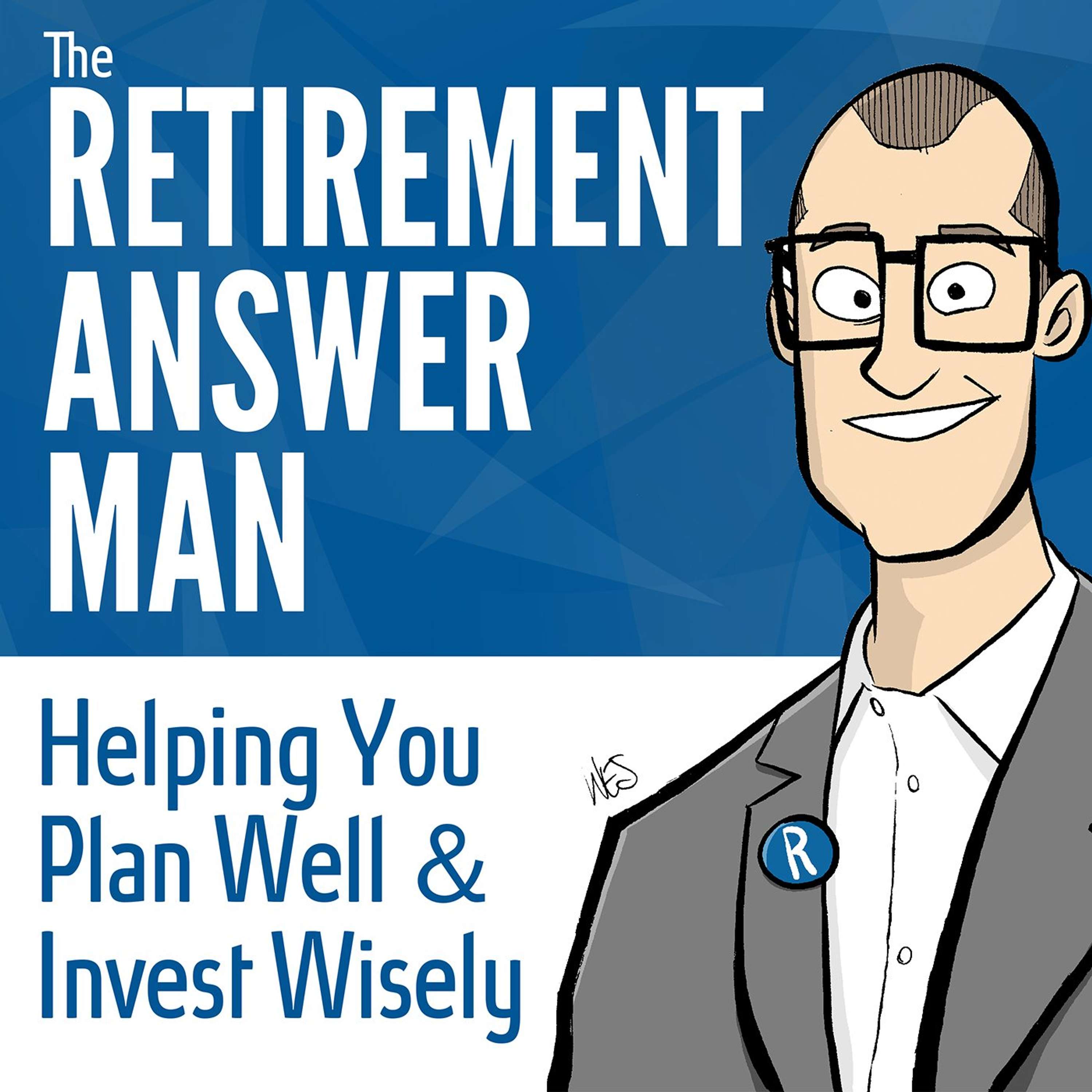
#144 - The Power of Reading For Life, Success, and A Better Retirement.
The power of reading is something you shouldn’t underestimate. Even if you don’t enjoy reading. That’s because there’s no other resource in the world where you can spend $20 and get a potential return of thousands of dollars, increased happiness, greater success, and a whole lot more. I’ve been thinking about this a lot lately because I’m discovering that the older I get the more I appreciate books. On this episode, I’m going to let you listen in on a conversation I had with Jeff Brown, the guy behind the Read to Lead podcast. He’s got some great insights into the power of reading, what it can do for you, and even gives us some tips on how to get more out of our reading. I hope you take the time to listen. 42% of college graduates will never read a book after graduation. Can you believe that? It’s really a shocking statistic but apparently, it’s how the world is going these days. I think it’s a tragic sign of the passive way people are going about life in the modern era. People appear to be losing their motivation to make something of their lives - and it may seem strange that I’m making that conclusion based on stats about the decline of reading, but it’s really common sense. Reading is one of the primary ways anyone can increase their knowledge and improve their life without having to depend on anyone else. But it requires initiative, doesn’t it? On this episode I hope to challenge you to pick up a book and get busy learning, growing, and making more of yourself. It doesn’t matter if you’re retired or not, you can always learn something and make your life happier by reading a book. You’ve heard it said that leaders are readers, right? It turns out it’s true. Every successful person you can think of is a purposeful reader. Warren Buffett, Bill Gates, Mark Zuckerberg, Elon Musk, Jeff Bezos, Mark Cuban, and many other highly successful people have openly shared that they read significant amounts every day. In fact, when Elon Musk was asked how he learned to build rockets his answer was, “I read books.” On this episode my guest, Jeff Brown is going to share what he’s discovered about the importance of reading on his path to entrepreneurship after years in the corporate work world. He says it's imperative that you be a reader if you are going to develop the new mindsets you need in order to make a change for the better in your life. And we all want to see “better” happen in our lives, right? Would you like to know how you can better tap into the power of reading? On this episode of The Retirement Answer Man, my goal is to challenge you to increase your happiness and quality of life both before and after your retirement by becoming a more effective reader. Toward that end, I’ve invited Jeff Brown on the show to share some insights from his experience in reading great books and interviewing the people who have written them. You’re going to find yourself not only challenged but also inspired by what Jeff has to share. He’s got some great tips for how you can get even more out of your reading. I hope you’ll take up his challenge to be more intentional about the way you read. My listener recommended book list is ready for you! Here’s how you can get it. For the past few months, I’ve been compiling a list of book recommendations that listeners to my podcast have submitted. The books on the list cover all sorts of topics, from financial planning to personal development and growth. If you’d like to see the top books that my very intelligent and world-changing listeners recommend, you can get them free of charge. All you need to do is sign up for my “6 Shot Saturday” emails - and you can find out how to do that by listening to this episode where I chat with Jeff Brown from the Read to Lead podcast. OUTLINE OF THIS EPISODE OF THE RETIREMENT ANSWER MAN [0:22] The impact of my discussion with Dr. Andrew Scott a few weeks ago.[2:12] A peek into this episode with Jeff Brown from “Read To Lead.”HOT TOPIC SEGMENT [3:10] Stats about reading in the United States.[4:22] How does reading connect to success?WHAT DOES THAT MEAN? SEGMENT [6:24] The word for today: APPLICATIONPRACTICAL PLANNING SEGMENT [9:49] My introduction to Jeff Brown and his podcast, “Read to Lead.”[10:55] Why Jeff began his podcast, Read to Lead.[15:15] New books VS old books - is there a difference?[18:27] How reading helped Jeff build the entrepreneurial life he enjoys now.[21:46] Research proves a powerful way to extract more from books: take notes.[25:50] How Jeff journals through books (taking notes).[28:15] Three books Jeff found helpful as he transitioned to his entrepreneurial life.THE HAPPY LAB SEGMENT [30:10] Some stuff I’ve recently learned about state of mind, happiness, and confidence.TODAY’S SMART SPRINT SEGMENT [32:05] A challenge for you to highlight 10 books you’ll read next year.RESOURCES MENTIONED IN THIS EPISODE BOOK: The 100 Year LifeJeff Brown’s “Read To Lead” podcast.www.StatisticBrain.comBOOK: Rich HabitsBOOK: EssentialismBOOK: Purple CowBOOK: The 5 Dysfunctions of a TeamBOOK: Good to GreatMichael Hyatt’s blogBOOK: LinchpinBOOK: 48 Days to the Work You LoveBOOK: Die EmptyBOOK: Louder Than WordsBOOK: The Art of WorkContact Roger: http://www.rogerwhitney.com/retirementanswers/Roger’s retirement learning center: www.RogerWhitney.com/learnThe Retirement Answer Man Facebook page: www.Facebook.com/RetirementAnswerMan
34:1709/11/2016
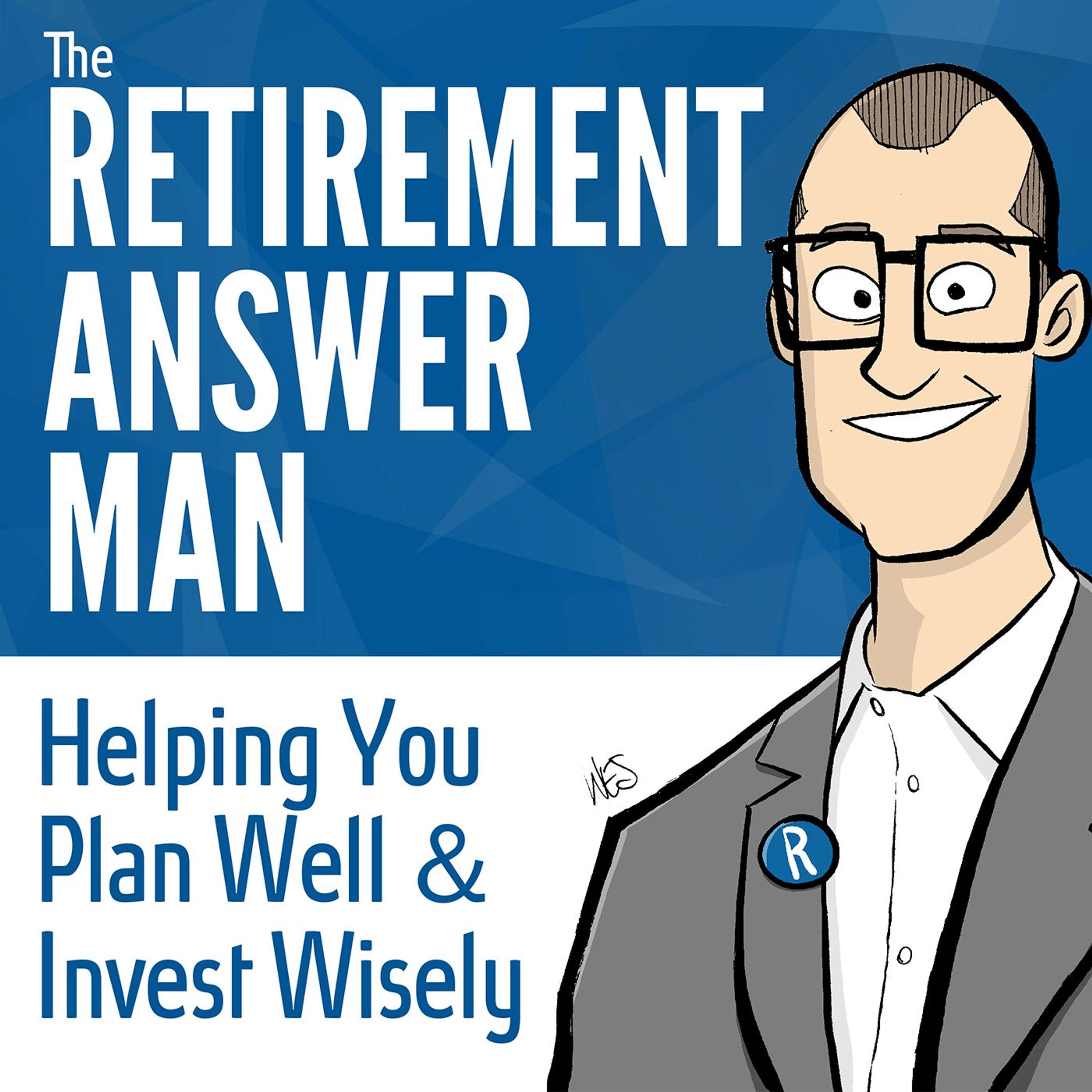
#143 - Sunk Cost Bias and How It Makes YOU Your Biggest Retirement Obstacle
Do you understand the concept of sunk cost? It refers to anything you’ve invested time or money in and afterward discover that the thing is not going to play out the way you thought. It could be an investment, a hobby, a project of some kind, a purchase, even a political candidate. The tendency we have when this happens is to stick with the unproductive thing simply because we’ve sunk so much into it already (the sunk cost). In the long run, it may be better to cut those losses and move on. On this episode of The Retirement Answer Man, I’m going to walk you through a number of areas where you might be your biggest retirement obstacle because of a bias you have regarding sunk costs. Intrigued? I hope so. Let’s do it! Sunk cost bias can keep you stuck when you don’t need to be. There are many reasons we won’t give up on things that are clearly not taking us in the direction we desire, but one of the most prevalent is what is called “sunk cost bias.” It’s when we have invested so much in the direction of a failing effort that we’re unwilling to give up all that investment. In reality, that’s probably the very best thing we could do because it will enable us to move on to more profitable things. If you’re unwilling to admit it you might be holding yourself back from the opportunity to make a bad situation into a better one. This episode is full of examples of how sunk cost bias can cost us and includes a couple of tips to help you get past the losses and move ahead to your goals. Do you need to cut a loser investment out of your portfolio? Sometimes sunk cost bias can be an issue when it comes to investing. Maybe it’s a particular stock or opportunity that we spent a lot of time researching or examining and then finally took the plunge to invest in. But over time it’s become apparent that the investment we thought was going to be such a great opportunity has turned out to be a real loser. It’s hard to cut that investment loose because it reminds us that we misjudged it in the first place - and to cut it loose would be an admission of failure. But hey, we all make mistakes, right? Maybe it’s time to cut it loose, get out of your own way, and start using the funds you have left to build something better? Are you being loyal to your company or are you holding yourself back? Many people stay at the company they’ve been at for years simply because they have invested a good deal of their life in it. I understand that, but when you do so - no matter how you’re treated, no matter what changes have come to the company in terms of compensation, benefits, leadership, training, and more - you may be sticking around because it’s easier to stay than it is to go - and that’s a form of what is called “sunk cost bias.” I think you deserve more than that so on this episode I’m going to give you some ideas of how you can get past those kinds of SCB obstacles to move yourself, your career, and your life forward. To overcome sunk cost bias, get yourself some clear goals. Nothing helps you unpack the baggage that comes with sunk cost bias (the belief that you’ve put too much into something to give up on it now) than having clearly defined goals. Once you’re able to say exactly what you’re shooting for you’ll be able to look at the things that pertain to that category and evaluate whether they are serving your goal or keeping you from it. You’ll be surprised how the simple act of setting clear goals can help you clarify what’s holding you back so you can get rid of it. Sunk cost bias is my topic on this episode of The Retirement Answer Man. OUTLINE OF THIS EPISODE OF THE RETIREMENT ANSWER MAN [0:28] A personal example of why you are your biggest obstacle to a successful retirement.WHAT DOES THAT MEAN? SEGMENT [4:46] What are “sunk costs?”[6:13] An example of sunk cost.HOT TOPIC SEGMENT [9:07] The sunk cost issue even impacts the current Presidential election.PRACTICAL PLANNING SEGMENT [10:32] What is sunk cost bias and what can you do about it?[13:46] How sunk cost bias can impact the realm of investing.[19:19] Career choices can be impacted by SCB as well.[20:34] Your lifestyle decisions can also be negatively impacted by sunk cost bias.[22:20] The power of goals in overcoming sunk cost bias.[23:37] Accepting your own mistakes and proneness toward them is powerfully important.[24:15] Discover your perfect picture of what you want to happen so you can build a plan based on possibility.TODAY’S SMART SPRINT SEGMENT [27:03] In the next 7 days identify something you’ve avoided that no longer fits where you are headed.THE HAPPY LAB SEGMENT [28:18] Dealing with your SCB can make you internally happier, step at a time!RESOURCES MENTIONED IN THIS EPISODE Test “6 shot” to “33444” to get the “6 Shot Saturday” email series.Contact Roger: http://www.rogerwhitney.com/retirementanswers/Roger’s retirement learning center: www.RogerWhitney.com/learnThe Retirement Answer Man Facebook page: www.Facebook.com/RetirementAnswerMan
31:2402/11/2016
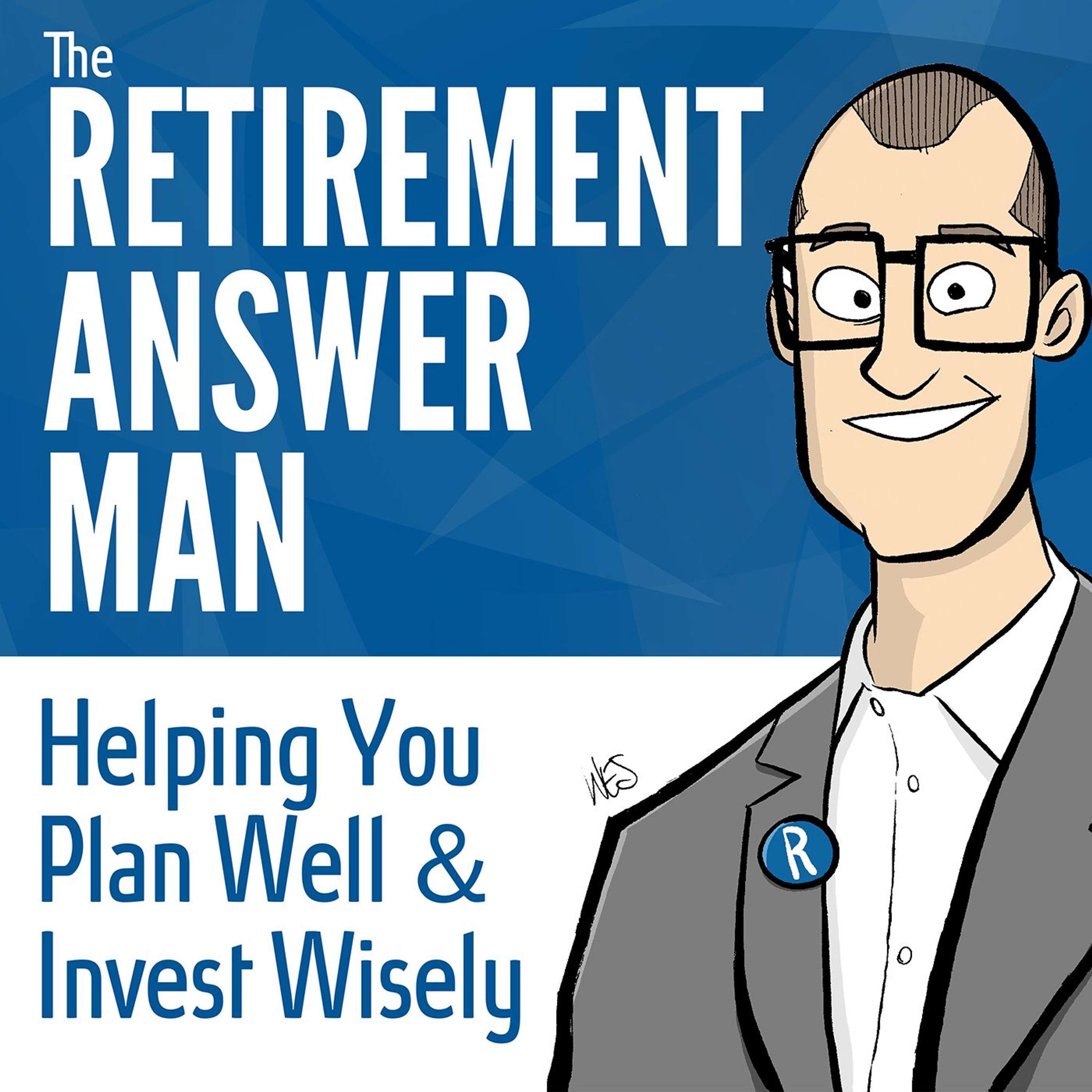
#142 - How Do Financial Markets React To Presidential Election Cycles?
The 2016 Election in the United States is being hailed as one of the WORST campaigns in American history. It’s pretty bad but historically it’s actually not the worst that has happened. The election of 1828 between John Quincy Adams and Andrew Jackson was truly vicious and I for one am thankful that we’ve come a long way from those days. But in every Presidential election cycle, the financial markets are impacted no matter if it’s a good campaign or an ugly one. On this episode, I want to walk you through some of the statistics of how the financial markets react during Presidential election cycles. America’s practice of peaceful transition of power enables a healthier economy. In the U.S. we often take for granted this thing we call a “peaceful transfer of power.” But we shouldn’t. The absence of coups and hostile revolutions has enabled our country to maintain a fairly healthy economy over time due to the consistency that the peaceful transition provides the financial markets. On this episode, we’re going to think together a bit about what happens to the financial markets during a Presidential election cycle so that we can identify the upturns and downturns and do what we can to insulate our investments and finances from the down times. Did you know that financial stress can make you feel older? It seems like common sense but it’s recently been shown that worrying about the financial markets puts a stress-load on your body which in turn causes you to age faster. Sometimes you can look in the mirror to see the evidence (more wrinkles, more gray hair), but other times you notice it in how you feel physically. On this episode, I want to give you 3 strategies for insulating yourself from the ups and downs of the financial markets so that you can live more of a stress-free life. If you want to insulate your finances from market volatility, here are some tips for you. It may not seem like rocket science, and I guess it isn’t, but by having an emergency fund in place you can take a HUGE step toward alleviating the stress that comes from the ups and downs of the financial markets. A well-funded emergency account enables you to stop worrying about whether the car or water heater breaks down because you know that you’ve saved up the cash to take care of those kinds of things. That fund alone will keep you from derailing your carefully crafted plan for income and expenses and investments. You can hear a couple of other ideas for insulating yourself from volatility, on this episode. There will always be financial ups and downs. Should they dictate your happiness? One of the realities of life is that the financial markets will always be volatile. The markets are like the waves of the sea - driven and tossed by any number of things. It’s just how life is. But you and I can take steps to insulate ourselves from those variables so that we don’t have to bear the weight of stress that can come from not having a good, solid strategy in place. On this episode, I’m going to walk you through what typically happens to the markets during a Presidential election cycle and give you some approaches you can adopt to make sure you don’t suffer because of any ups and downs that may come. OUTLINE OF THIS EPISODE OF THE RETIREMENT ANSWER MAN [0:34] My thoughts about our current election and some thoughts from what I’ve read this week.[1:26] The election of 1828 between John Quincy Adams and Andrew Jackson.WHAT DOES THAT MEAN? SEGMENT [5:23] What is a peaceful transfer of power?[6:17] The U.S. holds the record for the longest running peaceful transfer of power.[6:53] How this practice impacts financial planning.HOT TOPIC SEGMENT [8:30] How financial stress can make you older.PRACTICAL PLANNING SEGMENT [12:04] What can you do to insulate your investments from market downturns?[14:42] The reality of market turmoil and the need for insulating your finances.[15:09] How do markets react during an election cycle?[17:50] What happens internationally during U.S. election cycles?[19:07] What happens in emerging markets during U.S. Presidential election cycles?TODAY’S SMART SPRINT SEGMENT [23:23] Look at your taxable investment assets and identify your realized gains for the year so you can offset gains if you need to do so.THE HAPPY LAB SEGMENT [26:46] How we do some fun things for Halloween and my remote control fart machine.[29:40] Why it’s good to be goofy as you grow older. RESOURCES MENTIONED IN THIS EPISODE Market Watch article on financial stress and aging: http://www.marketwatch.com/story/stress-about-money-can-make-you-look-older-2016-10-24Text “6 shot” to “33444” to get 6 Shot SaturdayContact Roger: http://www.rogerwhitney.com/retirementanswers/Roger’s retirement learning center: www.RogerWhitney.com/learnThe Retirement Answer Man Facebook page: www.Facebook.com/RetirementAnswerMan
31:2726/10/2016
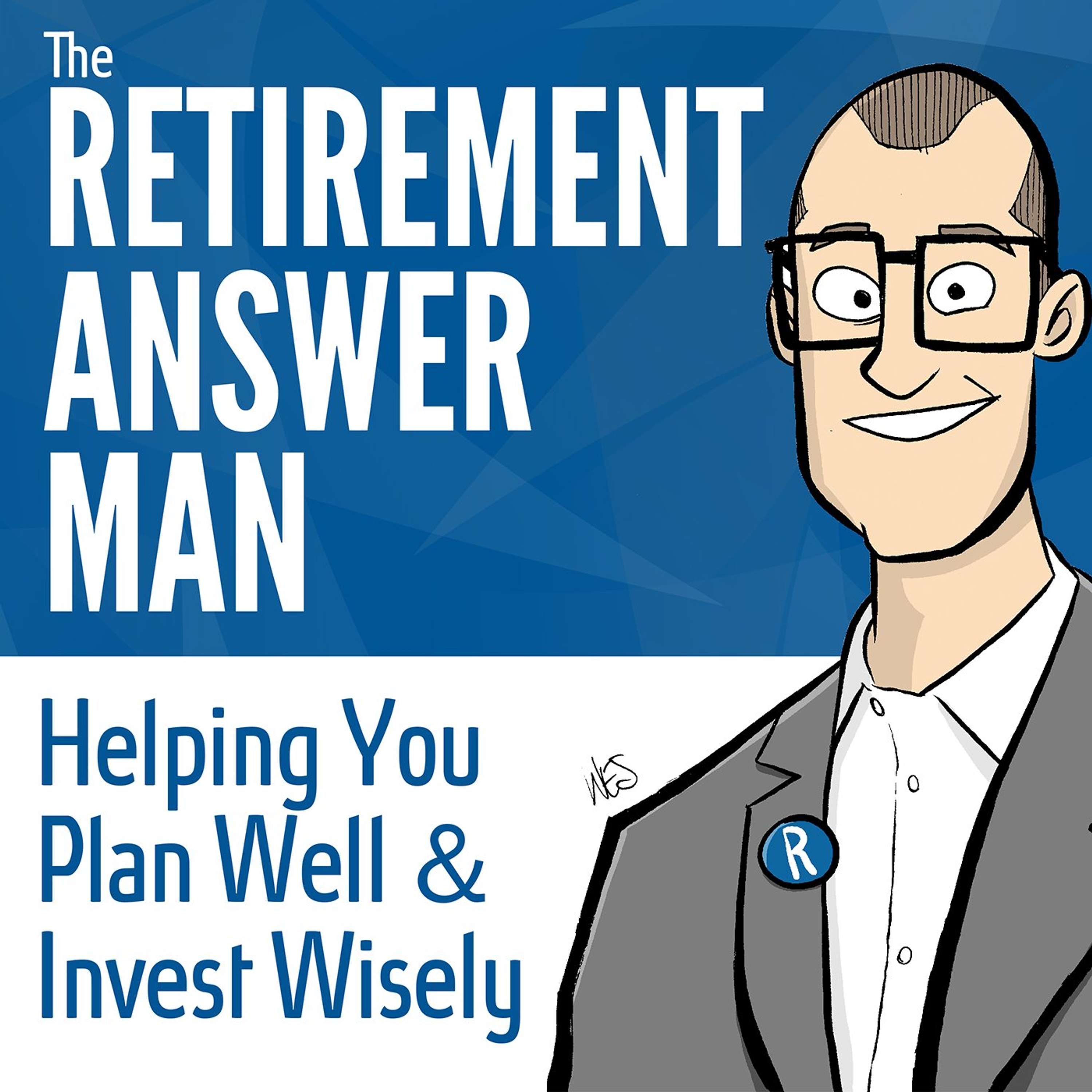
#141 - Why Longevity Makes Retirement a Whole New Game
I love putting out episodes of the Retirement Answer Man podcast because you don’t think about your retirement every day of your life, but I do! I get to experience varied conversations with people from all walks of life about their retirement goals, every day of the work week. That’s a lot of varied experiences - and I love to share them with you on the show. One thing that’s been coming across my desk a lot lately is the very real issue of how life expectancy is going up these days. Why is that a retirement planning issue? Because if you’re going to live longer your retirement goals need to be tweaked a bit to accommodate that expectation. On this episode of the show, I’ve got some things to share about how the retirement landscape is changing, both because of increases in life expectancy and because of cultural shifts that have taken place almost unnoticed. And I’ve got a special guest to introduce you to as well. I hope you take the time to listen. Financial planning is good, but is it the only kind of retirement planning you need to do? When we mention retirement planning we immediately think of finances. That’s a good thing because, without the finances to support yourself in even a meager way, you simply won’t be able to survive. But beyond that, the advances we’re seeing in nutrition, exercise, and medicine are making longevity a reality for more and more people - so you might be living even longer. Sure, that impacts your finances, but it also impacts the number of years you’ll actually be in the retirement stage of life. So you’ve got some new questions to ask yourself that have nothing to do with finances - such as “What will I DO for those extra years, what will my life be about?” On this episode of the podcast, we’re diving into that subject with my special guest, Andrew Scott, co-author of “The 100 Year Life.” How is longevity going to affect your retirement? If you’re going to live longer, then naturally you’ll have more years to enjoy your life - so it’s important that you plan on enjoying it by getting a clear vision of what you want to do and should do for that extra time on the planet. But you also need to consider that it’s quite possible that your retirement age will shift to a later point in your life, allowing you to be a full-time income earner for longer than has been the case in the past. Or, you could decide to do what more and more people are doing these days and take your normal retirement and choose to then spend your time building your own business, based on your experience and interests. It’s like a second career that you actually love even more! More ideas are ahead, on this episode. Are you still living in a 3-stage approach to life? In days gone by we’ve been taught to look at life through what many are calling a 3-stage approach. All that means is that there are three main segments or seasons of life - education - work - retirement. Makes sense, right? The problem these days is that life in the modern world isn’t fitting so nicely into those neat compartments anymore. Longevity for many people is becoming a real thing, and therefore they have the health and stamina to continue contribution to society as bread-winners, innovators, and company-builders. As a result, retirement age is stretching into the late 60s and early 70s. That means that more of life is consumed with production and contribution to society, which is a good thing. The point is that the 3-stage approach isn’t working so well anymore - and my guest today, Andrew Scott has a good deal of solid insights to share from his research into the impact of longevity on the culture. You can hear it on this episode. Retirement is about the experiences of life as much as it is the financial security. I’m the first person to say that you need to be financially secure during your retirement years. But financial security is not the only consideration - and I’d even say it’s not the most important consideration. What’s more important? Let me get to it by asking you a question… What good would it do you to be financially secure in retirement but to have a life that’s not very enjoyable or that you feel is being wasted? It’s more important that the quality of your life is what it needs to be - and what you want it to be - than the amount of money you have to fall back on. The younger generations are getting this one right in a lot of ways. They are buying experiences and finding ways of making meaningful contributions more than working to accumulate wealth. I don’t believe it’s an either-or thing, but I do think we’re a bit out of balance on this one. You can learn more about how I see the issue on this episode. OUTLINE OF THIS EPISODE OF THE RETIREMENT ANSWER MAN [0:25] Reasons it was easier for our parents and previous generations to retire.[1:40] One of my biggest beef to financial and retirement planning.[2:32] The story of “Who Moved My Cheese?”HOT TOPIC SEGMENT [6:20] Is there a retirement crisis in the United States? Recent reports say there is.WHAT DOES THAT MEAN? SEGMENT [8:49] Today’s term: Thrive - what does it mean for today in this retirement environment?PRACTICAL PLANNING SEGMENT [10:25] Why the “paint by numbers” approach doesn’t work - and the reason I invited author Andrew Scott to be on the show.[12:40] Is it a bit scary to you to think of living 100 years or more?[14:10] Learning to live all of life fully instead of shooting for retirement as your goal.[16:09] What’s wrong with a 3-stage model of life (education - work - retirement) in this new age we live in?[18:20] How the concept of retirement is changing and the implications it has on how you plan for it.[21:40] Why the 3-stage model of life can become a curse in today’s world.[26:38] Why the 40s are a great time to reassess and re-strategize for retirement.[29:43] How younger generations are learning a better approach to life, work, and retirement.[31:02] Be aware that there’s more to consider regarding retirement than finances.TODAY’S SMART SPRINT SEGMENT [32:24] Read: “Who Moved My Cheese?” - Think about it from the standpoint of what has moved on you.THE HAPPY LAB SEGMENT [33:22] My 26th wedding anniversary celebration - my lesson learned from not reading the card carefully - and the importance of laughter and giving grace. RESOURCES MENTIONED IN THIS EPISODE Email Roger your book recommendations: roger(at)wwkllc.comBOOK: Who Moved My Cheese?BOOK: The 100 Year LifeRoger’s retirement learning center: www.RogerWhitney.com/learnThe Retirement Answer Man Facebook page: www.Facebook.com/RetirementAnswerMan
37:5519/10/2016
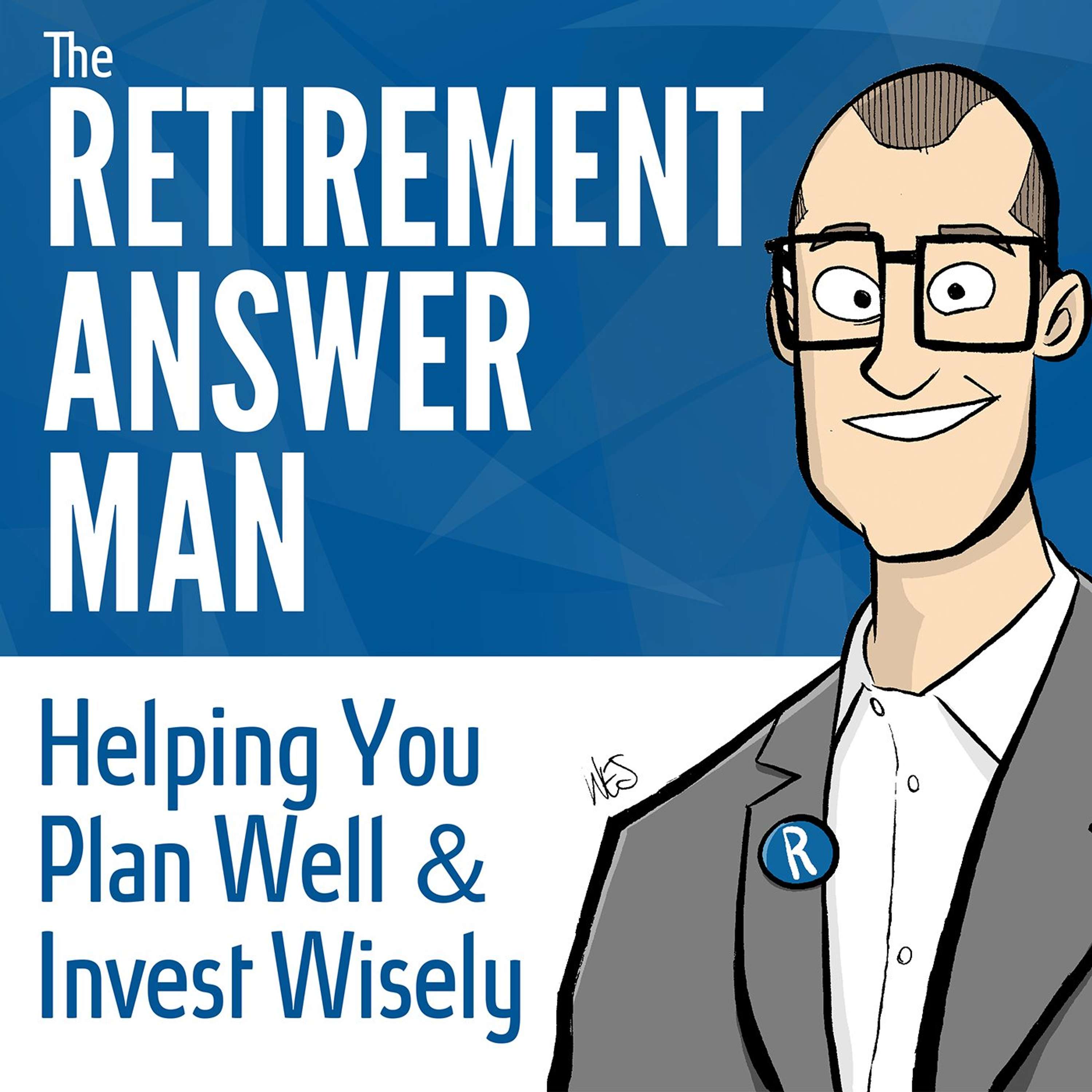
#140 - Do You Have The Courage To Color Outside the Lines?
When I think about the way the American Dream is typically carried out, it looks like a “Paint By Numbers” exercise. We’re given specific things we’re supposed to do in life - graduate High School, go to college, get a job, work a long time, save up for retirement, retire. But is that really the way it has to be? And does it NEED to be that way? What if you don’t want it to be that way? What can you do to make the life that you want in retirement? One thing it’s going to take to live the way you want to live and retire in the way you want to retire is courage. On this episode I’m going to walk you through some of the ways I think you can apply courage in everyday things so you can head where you want to go. Find a way to live a life of courage. It will keep you young longer. My friend Dan Miller says that the minute you begin settling down to live a life of ease is the minute you begin to die. That’s because you don’t have any obstacles or challenges to face. You’re going to get soft, flabby, and weak - and potentially lose your motivation for life in the end. And it doesn’t matter how much money you’ve saved up for those retirement years, you’ll fall prey to the same cycle if you’re not living a life of courage. Find out more about the path to retirement that is traveled on a road of courage, on this episode. The Social Security Administration has changed a few things, and you may not like it. There are some rather complicated changes going on in terms of social security policies surrounding the receipt of future benefits. There are some categories of people - about 30% of current SS recipients - who could see their benefits go down in 2017. It sounds scary and really is a concern for many people, so listen to this episode as I try to explain what’s going on. You’ll want to know about this if you depend on social security income in any way. Courage my friends - courage! What’s the real value of having a financial advisor? When you head toward retirement it’s like you’re going on a long backpacking trip. You’re going to be leaving many comfortable things you’ve become accustomed to - such as your career, your regular (larger) income, medical benefits, and more. It’s going to take courage for you to face those changes and it's helpful if you have someone in your corner who understands the road ahead and can give you advice and encouragement about what you’re going to go through. An advisor is a guide, a person who can lead you through the path so you avoid the dangers and make the most of your retirement journey. Should I take my pension or a lump sum amount? This is a question I get often. Many companies do this sort of thing and there isn’t a paint-by-numbers approach that fits every person. If you ever face this scenario there are a lot of things you need to consider - the amounts you’ll receive from each option, what your personal history is with being a disciplined spender, your expectations about the rate of return you could get on the money if you take it in a lump sum, your age and your spouse’s age, and more. It’s yet another place on the path to retirement where you’re going to need to face things that are uncertain and bolster up your courage to make a good choice. I expect many of you will be helped by the options I lay out for this listener, so be sure you listen. OUTLINE OF THIS EPISODE OF THE RETIREMENT ANSWER MAN [0:27] My Paint-by-Number story, and how it applies to this episode about courage.WHAT DOES THAT MEAN? SEGMENT [3:22] What is “courage” anyway?HOT TOPIC SEGMENT [5:56] Your reminder to get 6 shot Saturday.[7:42] Why you may experience a decrease in your Social Security benefits.PRACTICAL PLANNING SEGMENT [9:40] Listener question from Howard: What is the value of an advisor?[16:23] Question from Jack: Should I take my pension or a lump sum amount?[25:32] Bob’s question: Can my wife do profit sharing, etc. as a freelancer?[28:33] Another Bob asks another question: Should I add bonds to specific accounts within my portfolio? RESOURCES MENTIONED IN THIS EPISODE Get 6 shot Saturday by texting “Planning to “33444” Street article about SS amounts changing.Contact Roger: http://www.rogerwhitney.com/retirementanswers/
33:3812/10/2016
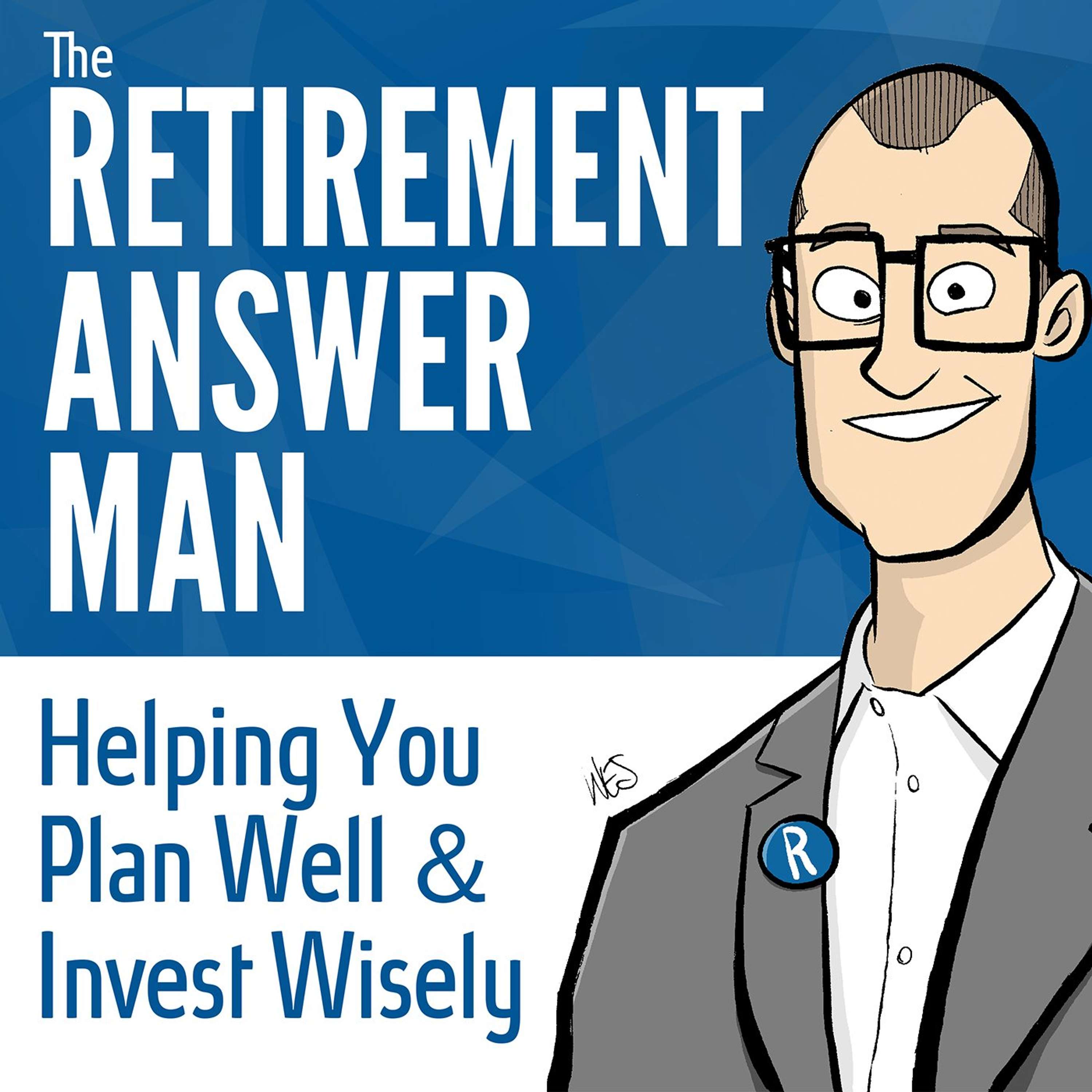
#139 - The #1 Fear About Retirement: Losing My Mind
When I speak to clients and potential clients it’s amazing that the #1 fear they have about retirement is not how they are going to support themselves financially, where they are going to live, or what their standard of living will be. The #1 fear I hear from clients is the fear of losing their minds. Dementia, Alzheimer's, and other mental conditions are top of mind for those nearing retirement because they impact the person’s ability to be themselves. On this episode, I’m facing the subject head-on and even have a guest with me to help us understand what we can do things to prevent the onset of those mind-related diseases and conditions. What IS dementia, anyway? On this week’s, “What does THAT mean” segment I’m pulling out the dictionary to discover exactly what it means that a person has “dementia.” I want to take the stigma out of the term so that we can rightly assess how to deal with it and even prevent it if possible. I think you’ll be encouraged by what I discovered as I pondered the possibility of losing my mind. It’s all on this episode. Every single one of us needs to deal with the possibility of losing our minds. None of us can escape aging in spite of the efforts we may have made to avoid it. It’s part of the natural journey of life. But we can do things right now that impact the WAY we age and the type of life we are able to enjoy in the future. One of the things we can address is whether or not we lose our minds through a condition like dementia. On today’s show, I feature a guest, Maggie Moon to talk about what dementia is, how we can prevent it, and why it’s such an important issue to think about now while we still can. I hope you’ll take this issue seriously because aging is not something you can avoid - but some of its effects are things you CAN potentially avoid. The primary way to avoid losing your mind: DIET. You knew it was coming, didn’t you. When it comes to preventing those mind altering conditions like Alzheimer’s and Dementia (and many others) the only thing you can truly do to prevent yourself from experiencing them is to give your brain and body what they need to be strong - and that comes through good nutrition. Today’s guest is Maggie Moon, a registered dietitian and researcher who has extensively studied the issue of diet as it relates to the brain. You’ll find Maggie very engaging and quite helpful in the way she describes the things you can do to ensure that your brain is as healthy as it can be as you head into your retirement years. Happiness is forged one day at a time. If you think of the concept of happiness as something that can exist both now and in the future, you begin to realize that tomorrow’s happiness depends, to a large extent, on the actions you take today. If you’re going to enjoy a fulfilling and meaningful retirement then you have to think ahead and actually DO things today that will lead you there. That’s why I’m talking about a difficult condition that none of us wants to happen to us (dementia) on this episode of the podcast. I want you to be equipped for the happy retirement you’ve always wanted. OUTLINE OF THIS EPISODE OF THE RETIREMENT ANSWER MAN [0:50] My introduction to this episode’s topic: The biggest fear people have.WHAT DOES THAT MEAN? SEGMENT [3:40] What IS dementia?[4:52] Symptoms of dementia & forms of dementia.HOT TOPIC SEGMENT [6:34] Dementia facts and figures.PRACTICAL PLANNING SEGMENT [8:34] My guest today, Maggie Moon, and the prevention of dementia.[12:20] What is the M.I.N.D. diet and why is it important for mind health?[14:02] How Maggie started researching brain and mind health.[18:12] The importance of whole grains in the diet.[20:12] How to understand and implement proper serving sizes.[21:33] The easiest way to make meal planning work for you.[23:36] The intimidation of the kitchen and how to get past the fear.THE HAPPY LAB SEGMENT [25:55] You create a happy life one day at a time.TODAY’S SMART SPRINT SEGMENT [28:03] The challenge to keep a food log. RESOURCES MENTIONED IN THIS EPISODE BOOK: The Mind Diet Bookwww.MindDietMeals.comContact Roger: http://www.rogerwhitney.com/retirementanswers/Roger’s retirement learning center: www.RogerWhitney.com/learnThe Retirement Answer Man Facebook page: www.Facebook.com/RetirementAnswerMan
30:3505/10/2016
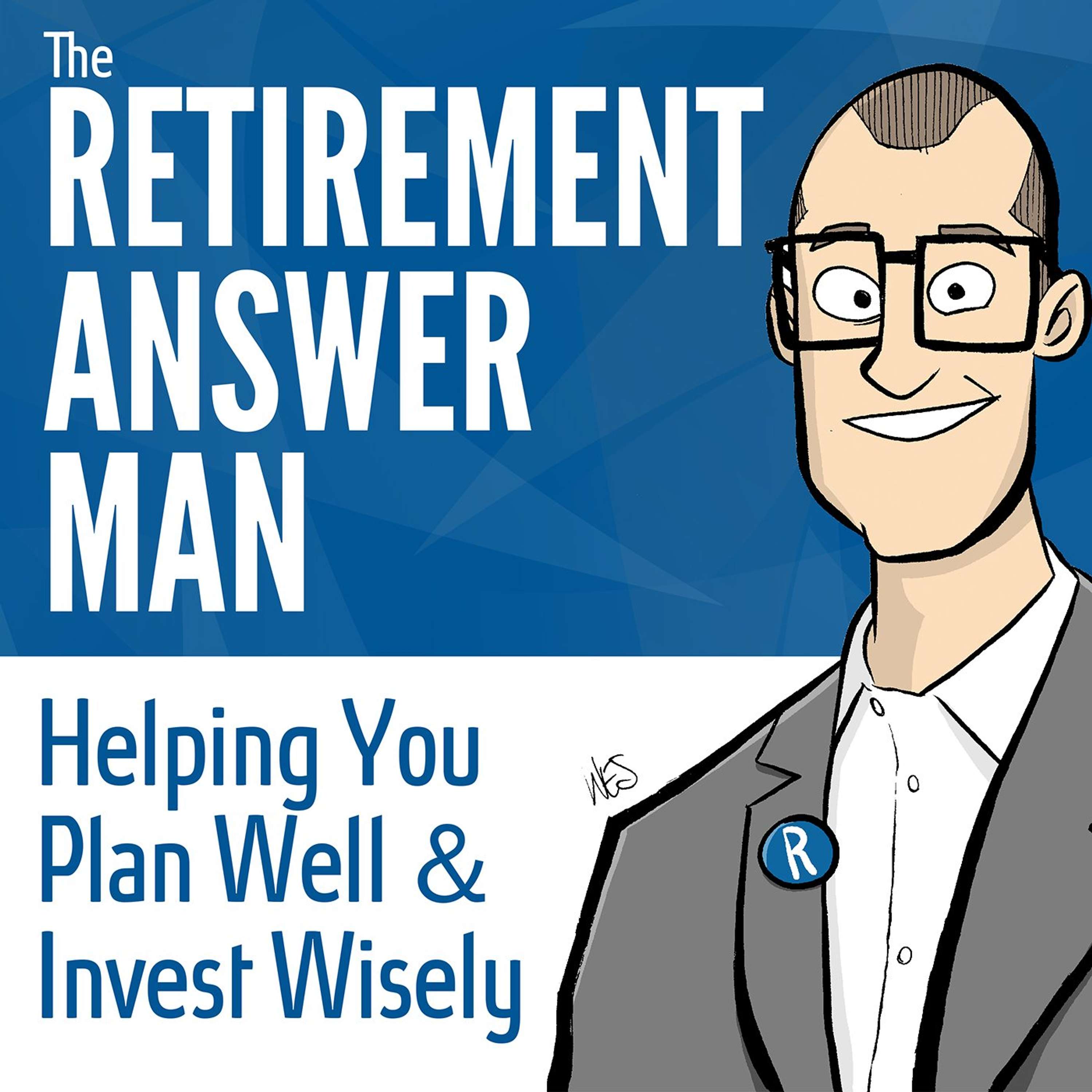
#138- 10 Powerful Book Recommendations For Investing And Personal Growth
Anyone who is a reader would be happy to give you their “top 10” list of book recommendations. But today’s episode is not about my top 10 - it’s simply a list of books that have had a great impact on my life through the years. Your list will by default be different than mine and that’s OK. I just wanted to put these books on your radar so that if you’re not familiar with them, you might consider them as a resource for your growth as an investor and as a human being. So grab a pen and paper so you can jot down these titles and the synopsis I give of each one - OR you can sign up for my Six Shot Saturday emails and you’ll get them sent directly to you. Either way, I hope this list of influential books is helpful to you. Today I’m giving you 5 investing book recommendations and 5 “other” book recommendations. You’d expect a guy called “The Retirement Answer Man” to give you a list of financial or investment related books for you to read. But those aren’t the only types of books I think you should be reading. There’s a ton of great insight out there into what it takes to be a better and more productive person who makes greater contributions to the world we live in. So I also wanted to give you some recommendations of books that could help you in that realm. And if you’ve got books that didn’t make my list, that’s great! Listen to the episode to find out how you can recommend your favorites to the entire listener community! If you’re not a reader, you’re missing out on a lifetime of education. I get it. For various reasons reading may be difficult for you. But I’m often reminded of the people all over the globe who literally CAN’T read and would give anything to be able to learn the skill. Most of them feel that way because they know that reading and the knowledge that comes from it can change their lives. This episode is an encouragement for you TO read as much as it is my recommendations of WHAT you should read. And don’t forget, audiobooks are now an option for you, so there’s really no excuse to be busy about the work of growth, education, and development in your own life. One of the ways you have to be careful about what you read these days. We are in a new era of publishing. Have you noticed? Now it’s possible for anyone to publish a book of their own making without any gatekeepers at a huge publishing house telling them they can or cannot publish their book. It’s a wonderful opportunity for us regular guys and gals to share the insights we’ve learned throughout life. But just like it’s wonderful that anyone can publish a book these days, there’s also a downside: anyone can publish a book these days. That means there’s a whole lot of junk out there you’ve got to wade through in order to find the good stuff. That’s one reason I’m giving you my book recommendations for investing and personal growth, on this episode. I trust it will be helpful. Do you have book recommendations the listening community might enjoy? Inevitably, when someone shares their recommended reading list with an audience (like I do on this episode) there’s going to be somebody who says, “What? I can’t believe you didn’t include (insert book title)!” It’s impossible to share every influential book, especially because books can have a particular impact on each of us at different times and seasons of life. So I invite you to listen to this episode to share your personal book recommendations in the areas of finance and personal growth. I will compile the list, create a PDF resource, and share it with the community in one of my 6 Shot Saturday emails. Are you game? OUTLINE OF THIS EPISODE OF THE RETIREMENT ANSWER MAN [0:25] My introduction to this episode about books I’ve read (that you should read).WHAT DOES THAT MEAN? SEGMENT [3:38] What is a “book” these days?[4:50] Some of the disadvantages of the self publishing movement (for readers).HOT TOPIC SEGMENT [6:22] According to PEW Research less Americans are reading these days.[7:29] The age group breakdown: younger folks are more likely to be readers.PRACTICAL PLANNING SEGMENT [8:49] My book list for your consideration, dear listener. :)[10:33] 5 books that have impacted me in terms of investing.[18:59] 5 non-investing books that have helped me.TODAY’S SMART SPRINT SEGMENT [27:52] Email me an investing book and another book that has impacted you. I’ll compile all the recommendations and share them with you via “6 Shot Saturday.”RESOURCES MENTIONED IN THIS EPISODE PEW Research study on American’s and ReadingBOOK: Winning the Loser’s GameBOOK: The Rational OptimistBOOK: The Behavior GapBOOK: How to Lie With StatisticsBOOK: Stocks For The Long Run BOOK: Great By ChoiceBOOK: 20,000 Days And CountingBOOK: Necessary EndingsBOOK: EssentialismBOOK: Living ForwardContact Roger: http://www.rogerwhitney.com/retirementanswers/Roger’s retirement learning center: www.RogerWhitney.com/learnThe Retirement Answer Man Facebook page: www.Facebook.com/RetirementAnswerMan
29:5228/09/2016
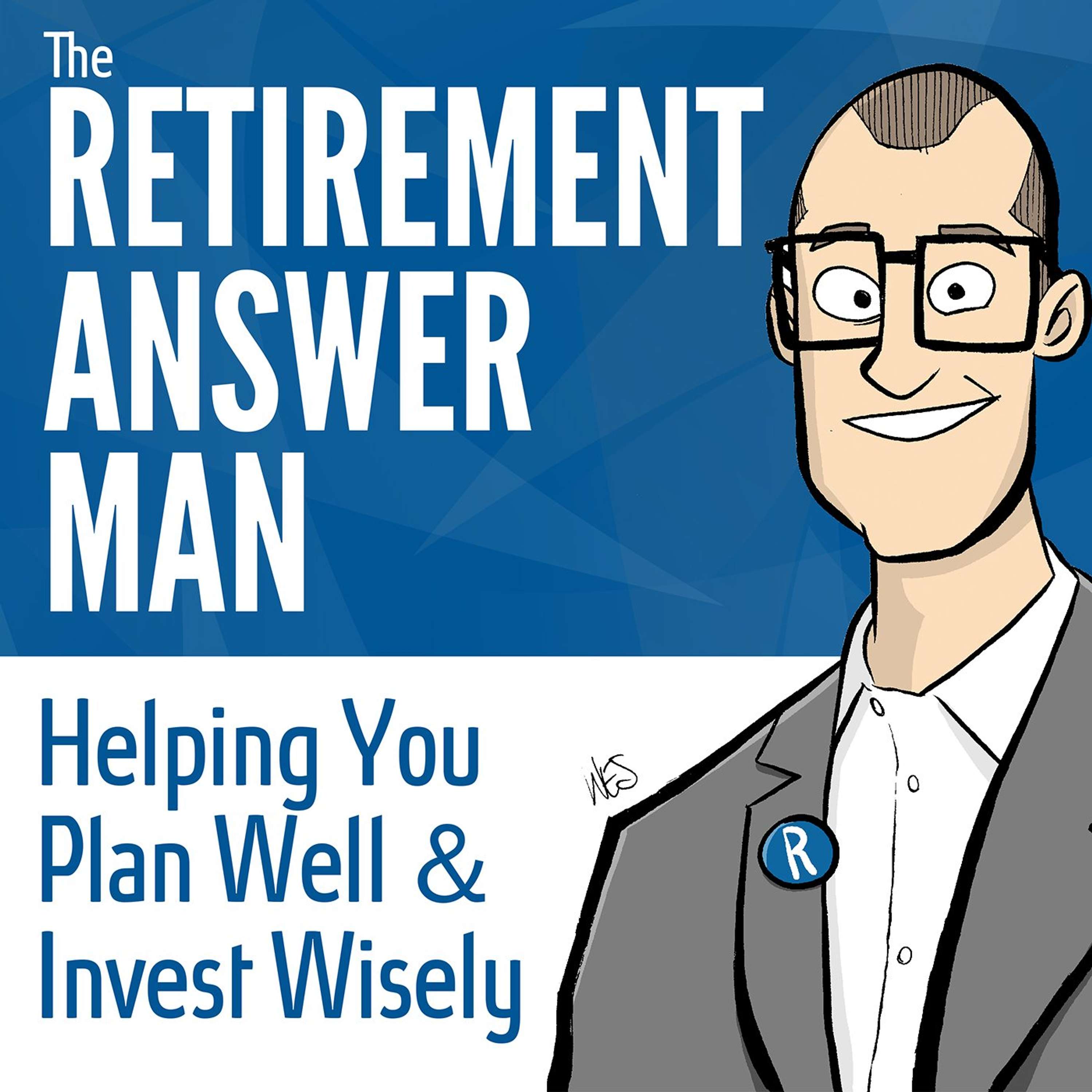
#137 -How To Become A Better Decision Maker, Even In The Small Things
All of us can become better decision makers but we often don’t realize that one of the most important realms of life we need to do that in is relating to the small things. Small things add up over time to become really big things. Just ask the alcoholic or an inmate in a penitentiary. They’ll tell you that what I’m saying is true. On this episode, I continue my thoughts about how to make better decisions with a focus on the small decisions in life - and I respond to some listener feedback from last week’s episode of the show. I hope you’ll MAKE THE DECISION to listen. :) Are you aware of the compounding effect of small decisions? Every one of us is a decision maker. We decide about things all the time and act on them. Getting out of bed each day. Brushing our teeth (or not). Eating healthy or unhealthy. Every one of these actions flows out of a decision we’ve made. But it’s important that we understand that small decisions like these are not actually small in the long run. They will each have their own little impact that contributes to the whole of our lives. Today’s episode is all about how we can take control of those little decisions that compound over time to ensure our lives benefit from them instead of suffering from them. If you want to be a better decision maker, it helps to define the issue. After last week’s show, a listener wrote me to say that one of the most important parts of his decision making paradigm comes at the very beginning of his process. He takes the time to clearly define the issue he’s dealing with and why it’s important. I see the logic and the wisdom of what he’s saying - do you? If we don’t know exactly what it is we’re dealing with and why it matters we may not be as motivated to make effective decisions about it. That could result in us putting off the decision, or neglecting it. You can hear more helpful listener comments like that and my responses to them on this episode. When making decisions, Tony Robbins suggests you have a conversation with your older self. One of the tips Tony Robbins often gives to people about the topic of decision making is to imagine yourself near the end of your life. You’re still healthy, still looking good, and still have all your wits about you, but you're looking back on a lifetime of experience. What would that older self say to you about the decisions you’re making right now? Is there any wise counsel to be found from that version of you? I can see how this could be a helpful way to get outside the limitations of your current thinking so that you can approach the situation with a fresh perspective. What do you think about this approach? I’d love to hear your thoughts! Decision makers who are effective usually set deadlines for their decisions. When you’re faced with a decision it’s easy to get caught up in the minutia of what it takes to understand the situation and actually make the decision. It’s a paralysis of analysis that we all fall prey to now and then. Effective decision making requires that you set a deadline by which time you will make your decision so that you can avoid that trap. You should be wise about that timeframe so you don’t cut your time frame too short, but a deadline needs to exist. This gives you some internal accountability to not only make the decision but to do the research and investigation it takes to make it wisely. That was a concept one of my listeners sent to me after last week’s episode - and you can listen to today’s episode to hear more listener suggestions just as good as this one. OUTLINE OF THIS EPISODE OF THE RETIREMENT ANSWER MAN [0:24] My introduction to this episode of the show.WHAT DOES THAT MEAN? SEGMENT [2:39] Today’s word: COMPOUNDING[4:07] The concept of compounding when it comes to decision making.HOT TOPIC SEGMENT [6:13] CNBC reports that a librarian built a huge fortune.PRACTICAL PLANNING SEGMENT [8:58] Listener questions and comments about decision making.[10:15] The importance of defining the issue.[11:41] What would your older self say you should do?[14:25] Making the decision about adjusting your retirement plan due to changes.[17:31] Why deadlines for decisions can be a powerful help.THE HAPPY LAB SEGMENT [20:57] How decision making can improve your happiness.TODAY’S SMART SPRINT SEGMENT [22:29] Make a decision in the next 7 days (big or small). RESOURCES MENTIONED IN THIS EPISODE CNBC article about the Librarian who built a fortuneText “Planning” to “33444” to get “6 Shot Saturday”Contact Roger: http://www.rogerwhitney.com/retirementanswers/Roger’s retirement learning center: www.RogerWhitney.com/learnThe Retirement Answer Man Facebook page: www.Facebook.com/RetirementAnswerMan
24:4121/09/2016
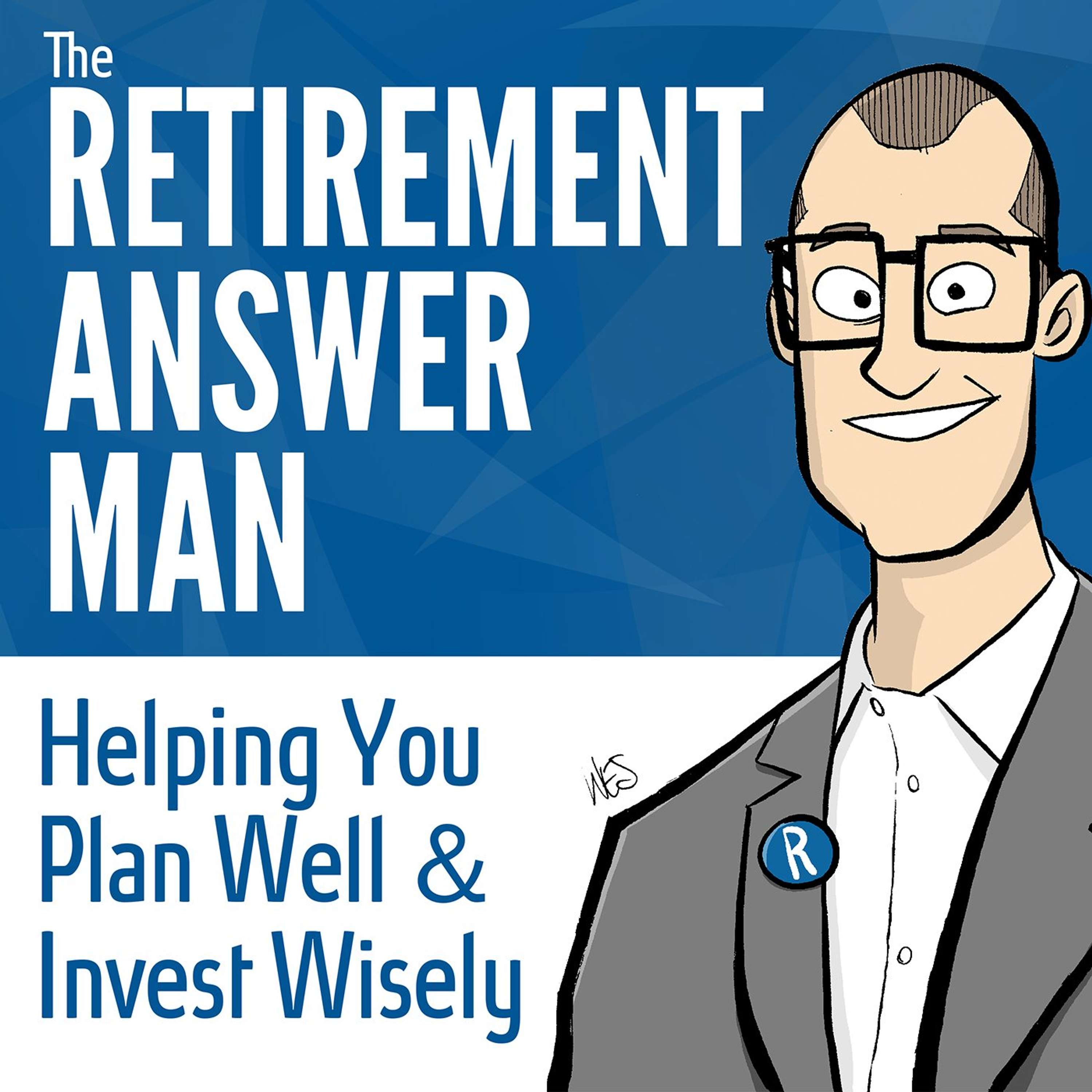
#136 - Decision Making: Getting It Right For Retirement (and the rest of life)
Decision making: It’s been said that not making a decision is actually making a decision. But we tend not to think of it that way because it doesn’t feel like we’re making a decision. It feels safer to go on the way things have been instead of making a change. But is that true? On this episode of the Retirement Answer Man, I’m excited to share some of the things I learned from a recent event I attended that have to do with making decisions that move you toward the goals and results you want to see happen in your life. What I learned is a 10 step approach to decision making that I think will benefit you greatly, so please - for your own sake - please take the time to listen. How inertia can be an enemy to good decision making. I’m no physics professor but I know that inertia has to do with the movement of things that are already in motion. You may not think of it this way but there are many things in your life that are already in motion. Your career. The direction your family is headed. Your financial condition. And much more. Many times the existing inertia in various areas of life becomes an enemy to making good decisions that could move our lives into a better place. On this episode, I’m going to talk about how you can avoid the trap of inertia and make decisions that set you up for a happier and more secure retirement. Intentionality about life is the friend of good decisions. Many times, the reason we don’t make decisions is that we’re not committed to actually DOING the things that are best for our own lives, families, and futures. We’ve got vague ideas of good things we’d like to see happen, but we haven’t committed ourselves to actually seeing them happen. Before you will be able to make good decisions about your future you have got to become intentional about it. You’ve got to become committed. Listen in as I ramble a bit about the importance of intentionality in decision making and give you 10 steps you can use to evaluate and make the best decisions for your life. If a decision moves you away from the vision you have for your life, well... Doesn’t it make sense that if a decision is going to move you away from your life vision, you shouldn’t do it?“But wait a minute Roger, what’s all this talk about life vision? I don’t even know what that is!”Yeah, I get it. Most people don’t have a life vision. On a previous episode, I talked about the importance of having a life vision and how you can go about creating a clear and compelling vision for the rest of your life. And believe it or not, it’s an important compass for the rest of life, including this issue of making good decisions that I’m dealing with on this episode of the podcast. Why don’t you create a good old “pro and con” list for each decision? Many things that we might consider “old” ideas are still around for a reason. They work. One of the 10 steps I give for making good decisions on this episode - it’s #9 - is to put together your own “pro and con” list regarding the decision. Brainstorm it. Write down every advantage and disadvantage to the decision you can. Sometimes this step alone brings enough clarity that you are able to see exactly what you should or should not do. And like I said, that’s just one of 10 steps I share on this episode so be sure you listen. It could help you make the best decision about that thing you’re contemplating right now! OUTLINE OF THIS EPISODE OF THE RETIREMENT ANSWER MAN [0:29] What is your decision making framework?HOT TOPIC SEGMENT [4:54] How do we make a choice about the current election situation?[5:50] Is the situation corrupt or crude? (from an article I read)WHAT DOES THAT MEAN? SEGMENT [7:03] What is inertia?[7:53] How inertia can be an enemy to good decision making.PRACTICAL PLANNING SEGMENT [13:27] A framework for making important decisions.[15:14] Why intentionality is an important beginning step.[17:19] #1 - Trust your gut (at least to admit what it says to you).[18:20] #2 - Does the decision align with the vision for your life?[19:32] #3 - Do your homework. Research what the outcome could be.[20:00] #4 - Consult the important, trusted people in your life.[20:51] #5 - Does a certain decision make you passionate.[21:29] #6 - Do you have the strength to do it?[24:08] #7 - Is it the right timing?[27:09] #8 - Does this align with my personal values?[28:49] #9 - Create a pros and cons list.[29:40] #10 - Ask, “What’s the worst that could happen?”[32:16] How you can get the worksheet for these steps.RESOURCES MENTIONED IN THIS EPISODE Get “6 shot Saturday” by texting “planning” to “33444”www.StrengthLeader.com - Deb’s website Episode about Life Vision Episode about Personal Values Episode about Choosing a Financial AdvisorContact Roger: http://www.rogerwhitney.com/retirementanswers/
35:0214/09/2016
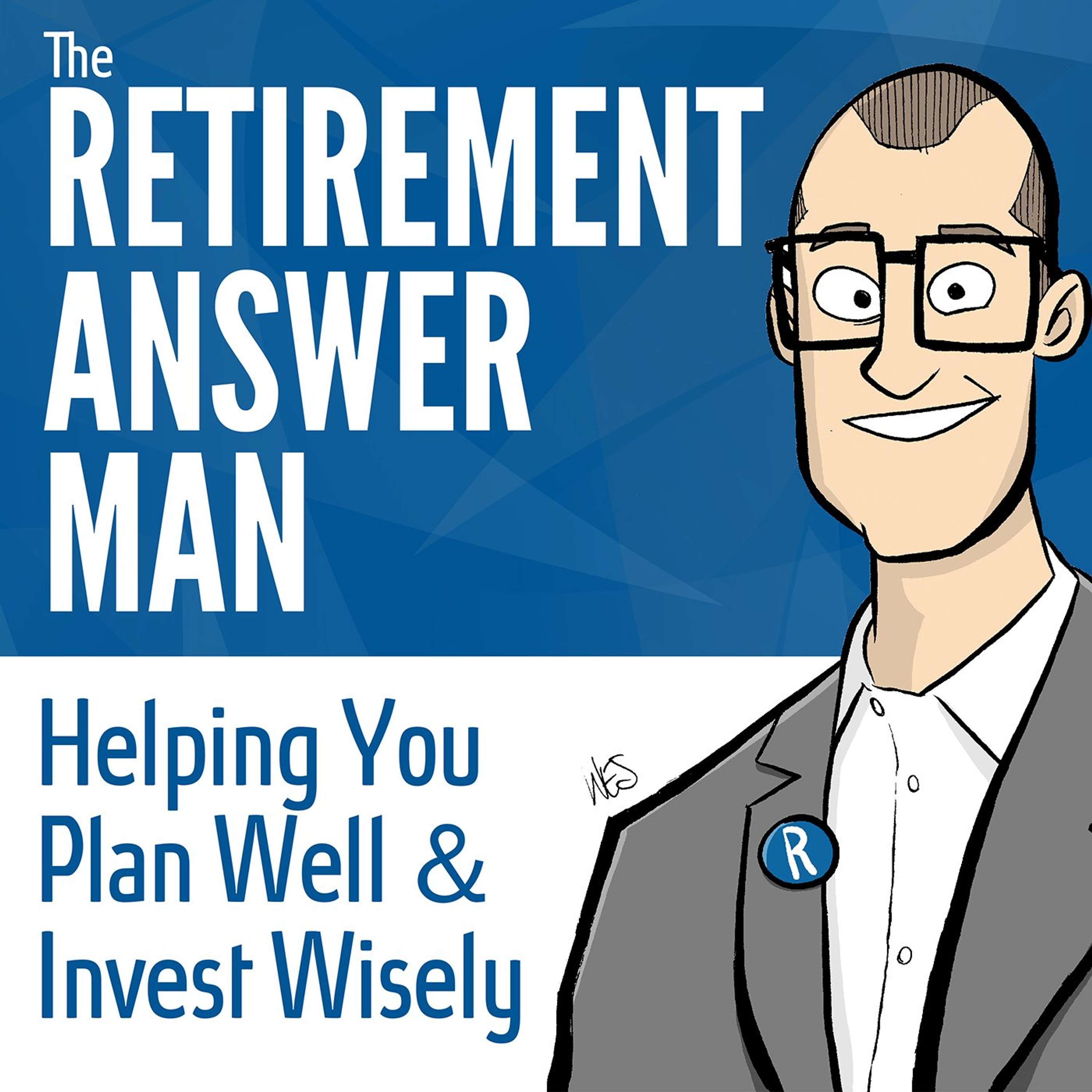
#135 - Why People In The Financial Services Industry Are Freaking Out!
It’s not a good things when the financial services industry is freaking out. I mean really - these are people who are giving advice to you about your finances and retirement. Does it make YOU feel good when you see them freaking out? You might be wondering what in the world I’m talking about. It all has to do with a new regulation that’s being passed regarding how people who work in the financial services industry serve their clients and customers - and the people who have the most to lose because of this new regulation are those who haven’t been doing the best job all along. So… there are plenty of people freaking out. You can get the details on this episode because I’m going to tell you about them. :) Do you know what the term “fiduciary” means? The new rule that’s causing such a stir in the financial services industry is aimed at making sure that people who are advising you what to do with your money are only able to directly benefit from the advice they give you when the advice is in your best interest. Serving a client in that way is serving as a “fiduciary.” In other words, these rules are trying to keep advisors from giving you advice solely because it will make them more money. That sounds like a good thing, right? Why you should hold everything close to the vest when you begin a conversation with a financial advisor. On this episode, I’m laying out a handful of tips that I suggest you take into consideration when you’re interviewing a possible fiduciary (financial advisor). I want you to find the exact right person, a financial artist who is able to help you reach your goals for retirement and a happy life. The first of those is that you should hold your details and your situation close to the vest at first. The reason? You want to find out from them who their ideal client is before you reveal much about yourself. When you’re able to do that you’ll know right away if they are describing you or not - and whether there could be some ways that the relationship is not a good fit. Find out more on this episode. Has your financial advisor (or a potential advisor) jumped from company to company? What’s the big deal if a financial advisor you’re considering has jumped from company to company? Well… it could show that the person has functioned as more of a salesperson than an actual fiduciary who works in the best interest of their clients over the long haul. It’s not the only thing you should look at but it could be a tell-tale sign. As I walk through a handful of things you should consider when looking for a financial advisor you should write down a few things so you’ll know the right questions to ask when you need to have that important conversation. Why somebody who is providing you financial services should have an optimistic view on life. Think about this for a minute. What kind of advice will you receive from somebody who works in the financial services industry who has a pessimistic view of the world, or of life? They may be ultra conservative (not a bad thing, but possibly not a good fit for everyone). They may not be willing to make you aware of certain opportunities simply because they don’t think it’s a true possibility. Think it through… there are lots of potential issues. On this episode I want you to follow along as I walk through some potential “red flags” when you start interviewing potential financial advisors. You can thank me later. OUTLINE OF THIS EPISODE OF THE RETIREMENT ANSWER MAN [0:28] Recommended things to do in Chicago and an amazing painting I saw there.[2:35] Comparing the artist to the painter.[4:00] How do you find the artist (perfect financial advisor) to help you manage your investments?WHAT DOES THAT MEAN? SEGMENT [5:08] Today’s word: Artist (when it comes to financial advisors).HOT TOPIC SEGMENT [7:32] Why people are freaking out in the financial industry: new fiduciary rules.PRACTICAL PLANNING SEGMENT [10:24] A few reasons you may - or may not - want a financial advisor.[20:25] 3 guidelines to help you identify a great financial advisor.[25:06] 15 questions you should use to interview a potential fiduciary.[28:36] Why YOU typically do a poor job interviewing potential financial advisors.RESOURCES MENTIONED IN THIS EPISODE Contact Roger: http://www.rogerwhitney.com/retirementanswers/www.Finra.org - type in the name - get a report.www.SEC.gov - look up professional and disciplinary history.
31:1207/09/2016
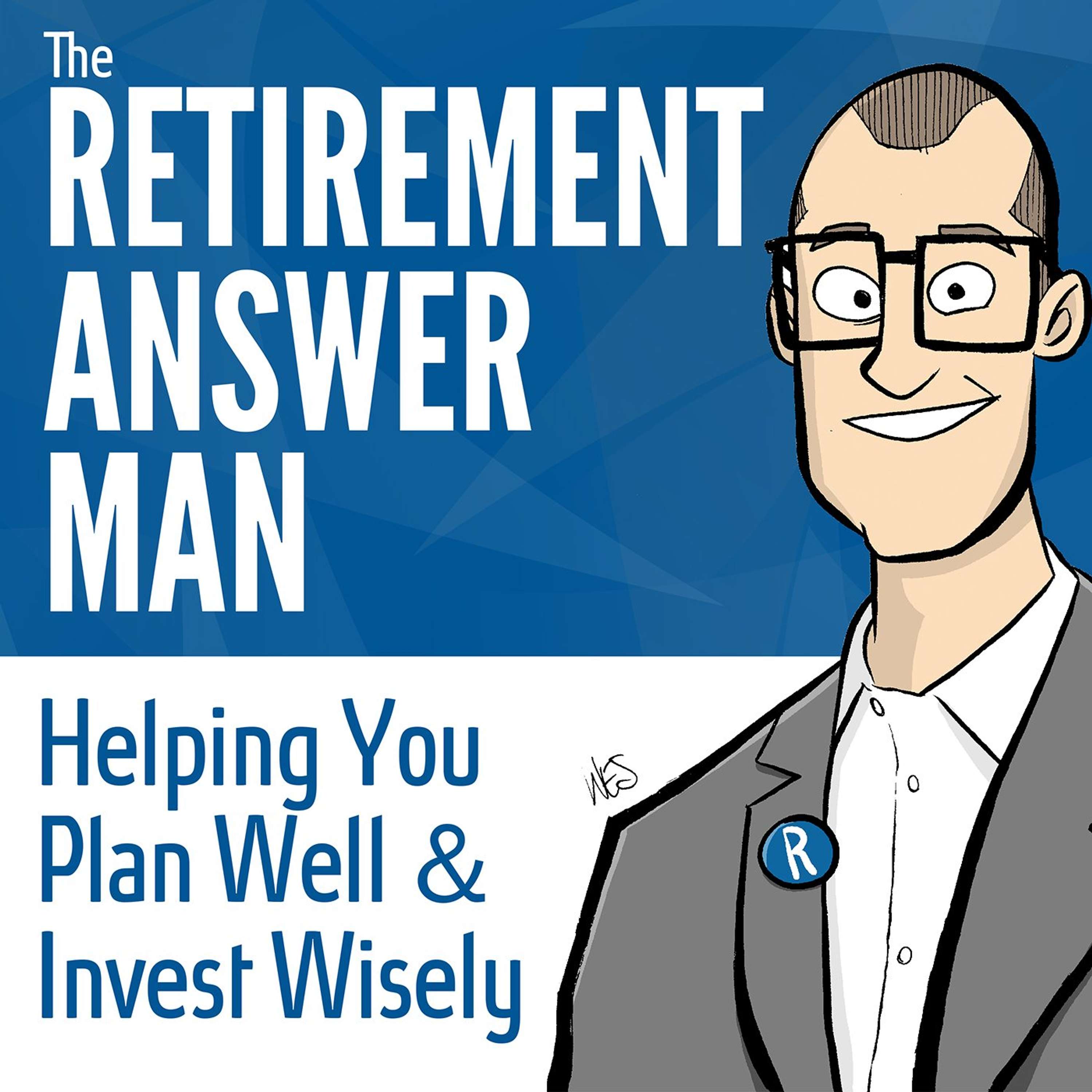
#134 - Is Economic Growth Always A Good Thing?
Economic growth is always a hot topic when election year rolls around. The candidates make it sound like a lack of growth is the worst thing that could ever happen during any President’s term. But is that true? And furthermore, are there actually benefits to having times of economic slowdown or even recession? On this episode of The Retirement Answer Man, I’m answering a handful of listener questions and one of those asks this exact question, “Is economic growth always best for the country?” If you want to hear why I think this listener could be onto something, you’ll have to listen to this episode of the podcast. Nature isn’t always in growth mode, why should the economy always be in growth mode? Part of my philosophy about what we should look for in a healthy economy has to do with the natural cycles that happen all around us. I don’t see many really good things that are always in a state of incredible growth. Every year the seasons change and most plants and even some animals go dormant for a season. It’s a time to refresh, rest up, and reset for a period of rapid growth ahead. Is it possible that a healthy economy is going to have those same up and down times? If so, why should we be so concerned about it? On this episode, you’ll get to hear me wax philosophical about such things and give you some mindsets you can carry into those less than optimal economic times. What to be careful of when combining IRA accounts As most of you know an IRA is a type of investment account that’s referred to as a “qualified plan.” It means that the government has qualified it as an investment you can do where the growth it experiences is tax deferred. It’s a benefit to you in many ways - but that’s not the issue I’m addressing at the moment. Right now I want to point out that if you move money that’s already in an IRA into a different IRA, you need to be careful how you do that. If you don’t you could cause yourself some tax consequences that you didn’t expect and definitely don’t want. I’m going to walk you through it in this episode - including some new guidelines from the IRS that make it a bit easier for you. Should you quit a job you hate or wait it out for the sake of your pension? Most of us know what it’s like to feel stuck in a job that makes you feel miserable. But one of my listeners has it really bad because she’s only a handful of years away from retirement, which would provide a fully vested pension. But she’s not sure if she wants to endure more years of a job she really hates. How should you make a decision like that? As you might suspect I’ve got some thoughts on the situation - and I share them on this episode of The Retirement Answer Man. How would it impact your life if you could invest in deep work? One of the things I’ve been learning lately is that I can be a pretty distracted guy. My smartphone notifications, email sounds, computer pop-ups - all of them contribute to me being “off task” more than I would like. Toward that end, I’ve been reading a book called, “Deep Work” by a guy named Cal Newport, and it’s challenged me to rethink the priority that I give to insignificant little things like smartphone notifications. On this episode, I want to share my thoughts with you about how we can get out of the “Pavlov’s dogs” cycle of responding to every notification and focus more on the things that matter. OUTLINE OF THIS EPISODE OF THE RETIREMENT ANSWER MAN [0:28] What should we be thinking about a slowing economy? WHAT DOES THAT MEAN? SEGMENT [3:10] What is an “IRA Rollover?”[4:05] The importance of understanding the tax “gotchas” relating to rollovers.HOT TOPIC SEGMENT [6:20] New IRS guidelines for IRA rollovers.PRACTICAL PLANNING SEGMENT [8:53] QUESTION ONE: What are the issues to consider when dealing with a job we don’t love?[12:26] QUESTION TWO: Is it always best for us to have economic growth?[15:03] QUESTION THREE: Should I combine all of my IRAs?[17:48] QUESTION FOUR: Should my wife and I have different financial planners?[19:49] A love-hate relationship I have with writing and publishing (and my upcoming book).[21:10] How you can get my “6 shot Saturday” emails (and give your ideas for titling my new book).THE HAPPY LAB SEGMENT [21:36] What IS deep work?TODAY’S SMART SPRINT SEGMENT [23:08] A day challenge: Turn off the notifications on your smart device so you can focus on what’s important. RESOURCES MENTIONED IN THIS EPISODE Contact Roger: http://www.rogerwhitney.com/retirementanswers/BOOK: Positive Intelligencewww.CareerPivot.comBOOK: Deep Work
26:1931/08/2016
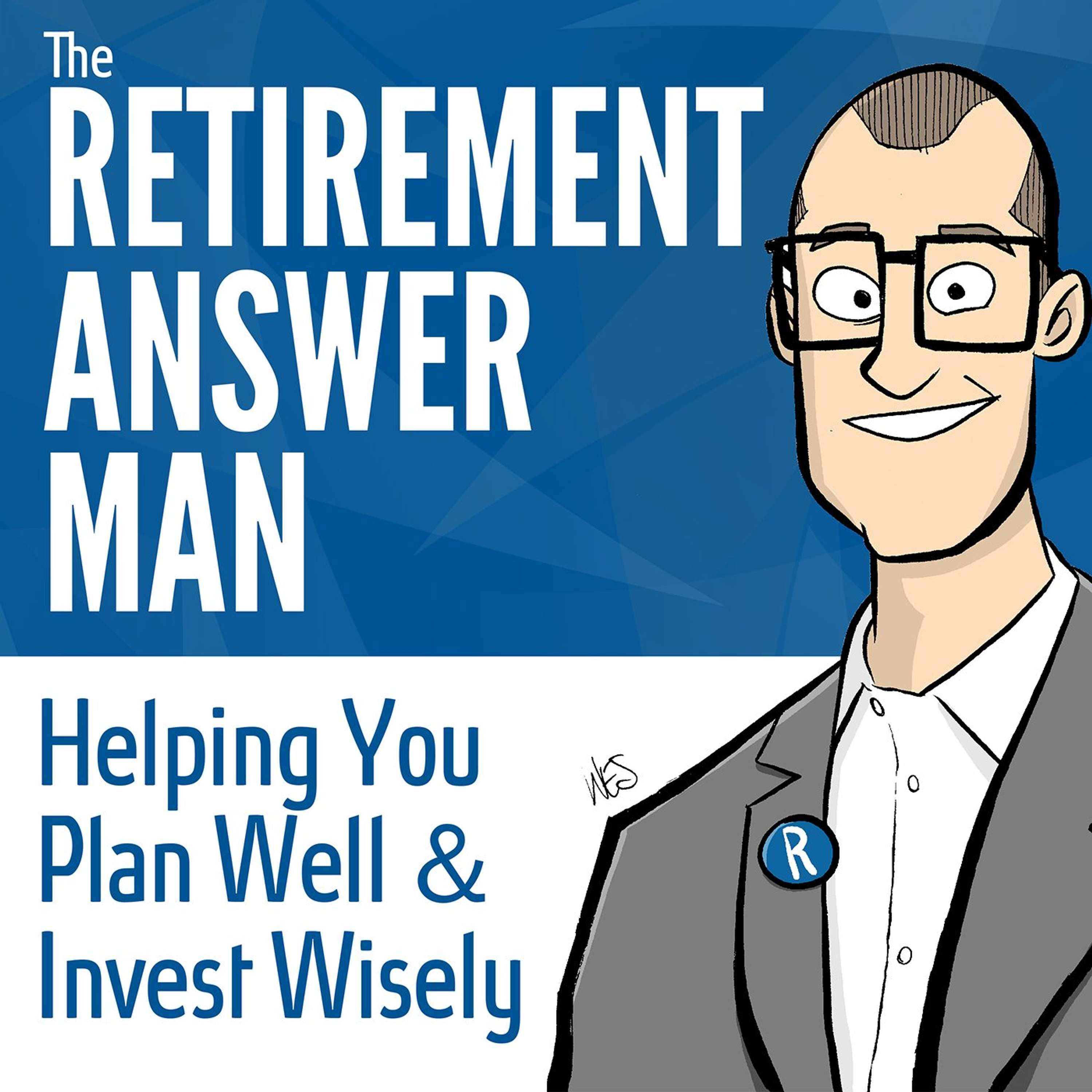
#133 - Economic Growth, the Upcoming Election, Life Satisfaction!
Economic growth is the hot button topic during this election. Have you noticed? When politicians, analysts, and talking heads on the news use that term “economic growth” - what do they really mean by it? It’s easy to make assumptions and easy to get lost in the verbiage because it sounds like something we all want. But what if everyone who’s using the term is not meaning the same thing by it? On this episode, I’m going to clue you in on what economic growth really means, how it’s measured year by year, and whether or not we’re in as bad a situation as the politicians are making it out to be. I think you’ll get a lot out of this one. Does a slow period of economic growth make investments more risky? It kind of seems like it would, but is it true? Some very reputable organizations out there do very careful analysis of these kinds of things, taking many different variables and factors into account. On this episode, I’m going to walk you through the findings of one of those outfits to give you an idea of whether or not your investment strategy should change during a time like this when everyone is decrying the poor economy. You might be surprised by what they say. ;) Productivity during retirement is one thing - but I want to enjoy my retirement! I got a little bit of push-back this week from a listener who has heard me talk a lot about being purposeful during retirement as an antidote to a non-enjoyable life. But he’s coming back at me with a different perspective. He actually LIKES being a bit more uninvolved and laid back because he worked so many years non-stop. You might be interested to hear this little one sided exchange as I reply to his reply about my emphasis. Does that make sense? I think you’ll get it so be sure to listen. Should you keep some cash on the side to buy stocks during down times in the market? I think one of my listeners has me confused with somebody else. :) He thought he heard me say that having some cash on hand during bad economic times so that you could buy up underperforming stocks was a good idea. Honestly, I can’t even IMAGINE that I’d say such a thing and am pretty sure I never have. That’s because I don’t feel that having that cash on hand is a good idea - at least not for those reasons. So listen in to my response to this listener so you can know what to do with your cash during down economic times - like this one. I don’t have any trouble setting aside 20% for savings, but where should I put it? I’m very proud of this listener. He’s got no problem living on 80% and saving 20% - he’s just a bit unsure what to actually DO with the 20% he’s setting aside. It’s a great problem to have and an even better question - and I’m going to answer it in a number of ways on this episode. So be sure you listen to learn some of the options for those savings that allows it to be liquid enough for you to access when needed but not so liquid that it’s not doing anything for you. It’s in this episode. OUTLINE OF THIS EPISODE OF THE RETIREMENT ANSWER MAN [0:29] My introduction of this episode of the podcast.WHAT DOES THAT MEAN? SEGMENT [2:52] What does “economic growth” or “GDP” actually mean?HOT TOPIC SEGMENT [4:22] How is the GDP doing in the United States?[5:50] The reasons why interest rates are low and stimulus packages are a topic of discussion.[6:40] The impact of slow economic growth on the markets. PRACTICAL PLANNING SEGMENT [8:42] QUESTION ONE: How realistic is it to talk with family about “personal values” and how can you state them openly without setting yourself up for failure? And what about contentment in retirement instead of staying busy?[12:39] QUESTION TWO: A listener correction to one of my answers to a listener question about retirement qualifications.[14:06] QUESTION THREE: Is keeping cash on the side in order to buy stocks really a good idea? Isn’t that cash losing more than it’s potentially going to gain?[19:12] QUESTION FOUR: Where do we put the extra 20% we’re saving? It’s hard to know where to allocate it.[21:39] QUESTION FIVE: I only have a bit over 2 years before retirement but I really don’t like my job. Any ideas?THE HAPPY LAB SEGMENT [26:21] Making the life that you want because life doesn’t come to you.TODAY’S SMART SPRINT SEGMENT [28:04] The 7 day challenge: brainstorm one area of your life (an area that’s frustrating you) and figure out what YOU can do to improve the quality of your life in that area. RESOURCES MENTIONED IN THIS EPISODE Text “planning” to “33444” to get 6 shot SaturdayWhat does that mean resource: http://www.investopedia.com/terms/g/gdp.aspHot Topic resource: http://www.cnbc.com/2016/07/29/gdp-us-economic-growth-is-close-tozero.HtmlWork with Roger: http://rogerwhitney.com/work-with-me/
30:2924/08/2016
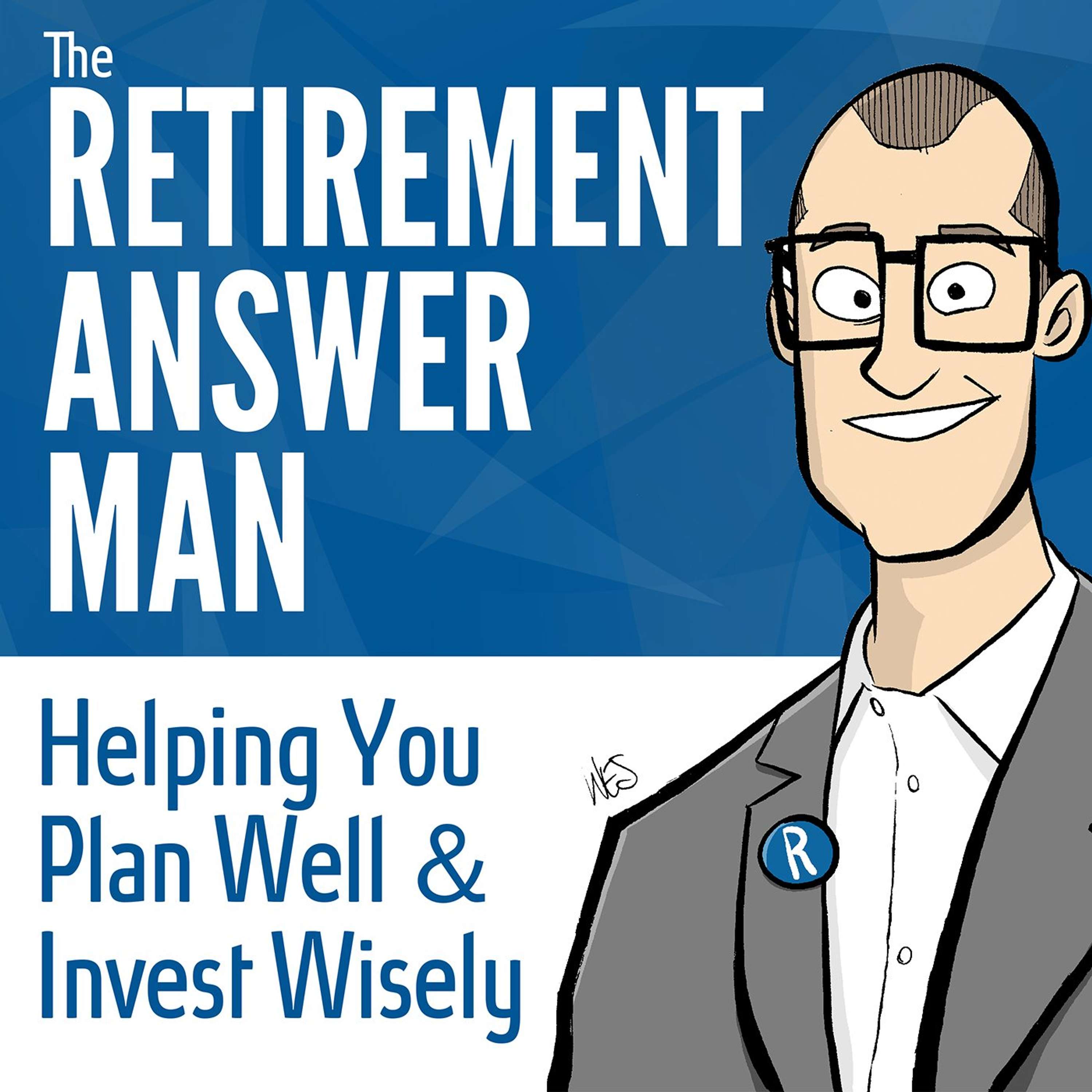
#132 - How Personal Values Can Impact Your Level Of Happiness In Retirement
Personal values are really important. Do you know what yours are? It’s easy to respond immediately to the question with a “Sure, I know what my personal values are.” But do you really? I didn’t until I was challenged by my life coaches - Robert Mallon and Bill Watkins - to write down my top 10 personal values. It was HARD, but so helpful. The reason it’s important to write them down is because you don’t know what you’re aiming at if you don’t clearly identify it. But you’ll also tend to live inconsistently from what you truly believe deep down if you don’t clarify the personal values that matter the most to you. On this episode I’m going to walk you through a way that you can identify and establish your top 10 core values and begin to shape your life around them. It will benefit you personally and set you up for a greater sense of happiness as you enter retirement. My early adult years were not lived congruent with who I wanted to be. From early on as a young adult I would have told you that I wanted to be bold, brave, compassionate, loving, a family man, and many other virtuous sounding things. But my wife and kids can tell you that even though I said those things, I didn’t do a very good job at living them out. In fact, I was quite a jerk to the people I loved the most. It took some hard knocks to my hard head to wake me up to the fact that I was not living in congruence with my inner personal values. One of the main reasons was because I hadn’t defined them. On this episode you’ll get to hear the story of my earlier years and what made the difference in the way I see and live my life. And more importantly I’m going to share how YOU can make the changes needed in your life to live in greater congruence with your own set of core values. Why do you do what you do? It’s an important question. It’s one I hadn’t given much thought to until my coaches challenged me to answer it - specifically. When I dug deeper to discover the things that motivated my actions I didn’t like everything that I saw. That’s because I wasn’t always acting in a way that was congruent with my core beliefs. So let me ask you again, why do YOU do what you do? If you would like some help in getting to the bottom of that question this episode of The Retirement Answer Man should prove helpful. If you follow through with the suggestions I make on this episode I believe you’ll come away satisfied and more purposeful for the years ahead. Which is first on your list of personal values, your money or your family? It may sound ludicrous to even ask the question (I hope so) but you don’t really know the answer until you take the time to decide. Many of us work all of our lives to accumulate money and stuff and leave the relationships in the dust. By our actions someone looking on could easily come to the conclusion that we care more about the money than we do the people. If that sounds “off” to you, it should - and on today’s episode I’m going to give you access to a fillable PDF that you can use to determine and write down your top 10 personal values so that you can be SURE you’re living consistent with what you really want out of life. There are lots of things I value in life. But these are my top 10. It may sound a bit artificial to prioritize the top 10 things I value in life - but I did it - and I did it at the suggestion of a couple of life coaches who are helping me get my living (actions) aligned with my beliefs (personal values). On this episode of The Retirement Answer Man I decided to share the results of my “top 10” list with you - not because I have the perfect list of personal values… in fact, yours should be very different than mine - but because my list may serve to help you think through your own list so that YOU can live more congruently with what you truly care about. And I believe that will enable you to live a much happier retirement. OUTLINE OF THIS EPISODE OF THE RETIREMENT ANSWER MAN [0:27] Why many retirement conversations include “Who do I want to be for the rest of my life?”HOT TOPIC SEGMENT [4:10] The distaste for both major candidates in the Presidential race.[5:59] Do these two candidates best represent who WE are as individuals?WHAT DOES THAT MEAN? SEGMENT [6:36] Todays term: CONGRUENCE: The state achieved by coming together.[7:35] Why congruence in life is so important to a happy life.THE HAPPY LAB SEGMENT [10:33] What happens if you start to live a life more congruent with your beliefs and values.PRACTICAL PLANNING SEGMENT [12:44] Why personal development is a focus of this podcast - and why you should focus on it as part of your journey.[15:05] The first steps I took to come into alignment with my own personal values.[16:43] My top 10 personal values (Maybe my example will resonate with you).TODAY’S SMART SPRINT SEGMENT [30:09] A worksheet you can use to identify your top 10 personal values. RESOURCES MENTIONED IN THIS EPISODE www.rustylionacademy.com/answermanStacking BenjaminsContact Roger: http://www.rogerwhitney.com/retirementansewers/Roger’s retirement learning center: www.RogerWhitney.com/learnThe Retirement Answer Man Facebook page: www.Facebook.com/RetirementAnswerMan
33:3217/08/2016
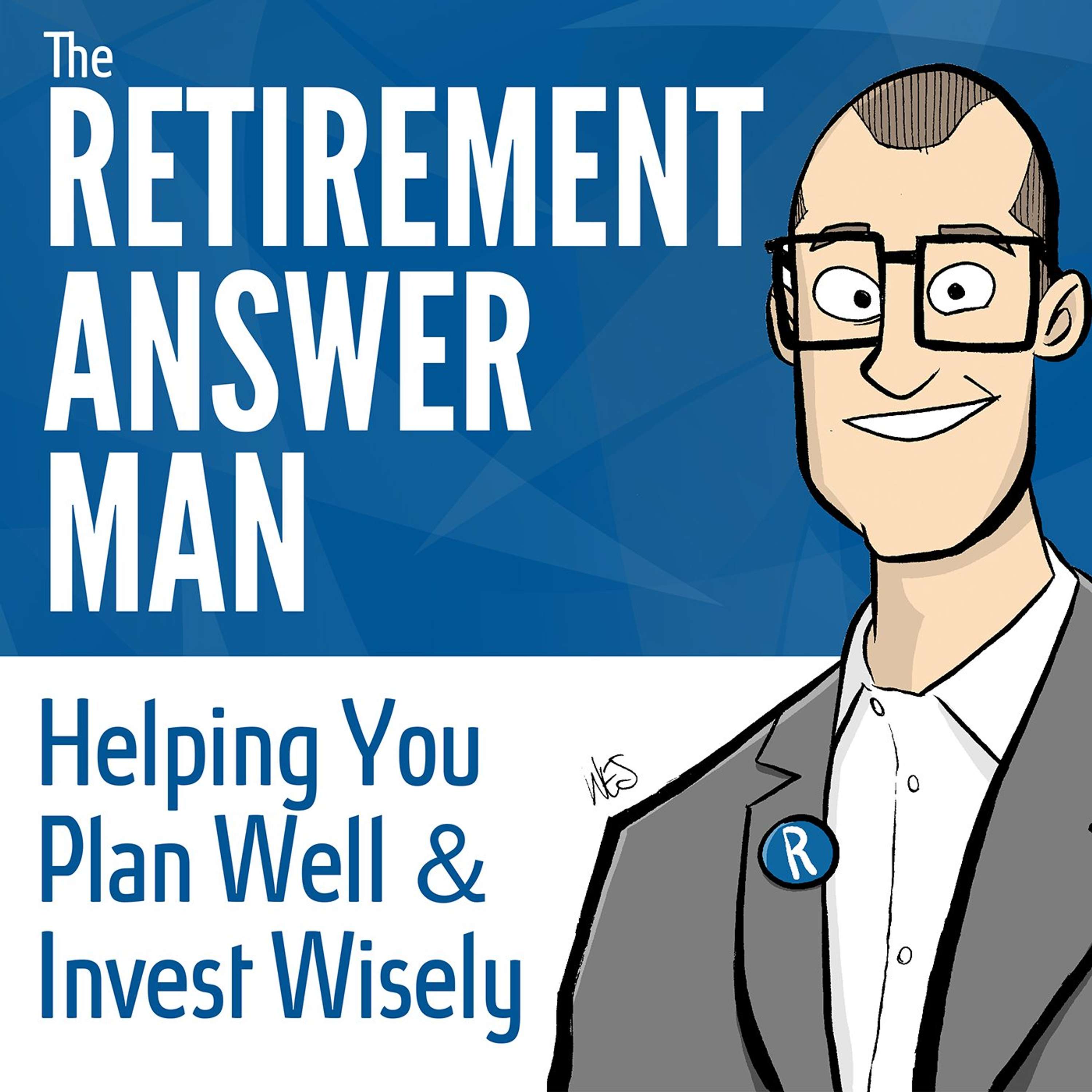
#131 - How To Detect Burnout and Fix The Cause Of It, with Dr. Clark Gaither
Burnout may not be top of mind for you when you’re thinking about retirement. But maybe it should be. After all, you won’t be as productive in your pre-retirement years if you’re subject to job related burnout all along the way. Toward helping you think about your retirement planning in a healthier and more productive way I’ve asked Dr. Clark Gaither to join me. He’s known as “Dr. Burnout” and has studied and become an expert on the topic of burnout. He’s going to help us think through the causes, symptoms, and prevention of burnout and get us on the right track. What IS burnout anyway? Dr. Clark Gaither is an expert on the subject of burnout and says that it comes into our lives often when we are overworked, unsatisfied in our work, and a variety of other things. But what is it, really? It’s that sense of lethargy or weariness you feel - on a chronic basis - that keeps you from being your most productive. On this episode we’re going to dig into the causes of burnout and I’m going to challenge you to check yourself carefully to assess whether or not you’re at risk of burning out anytime soon. And if so, we’ll give you some ideas for what you can do about it. What are the reasons for burnout? Are you experiencing any of them? When I asked Dr. Gaither about the reasons for burnout he walked me through a handful of things that most of us experience at some time or another in our lives. But burnout sets in when they gang up on us and we experience many of them at once. On this episode we’re going to talk through all of Dr. Gaither’s reasons for burnout and I bet you find some of them present in your life right now. If so, what can you do about it? You’ll find out as you listen to Dr. Clark Gaither’s sound advice. What can you do if you’re on the verge of burnout (or smack dab in the middle of it)? Experiencing burnout can be one of the most frustrating and difficult things we go through in life. When you get to that place you’ve definitely got to do something about it - and quick. My guest today, Dr. Clark Gaither is known as “Dr. Burnout,” and he’s got a great set of suggestions for how you and I can address the burnout issues we’re facing and how to put some prevention steps in place to keep burnout at bay and provide a greater sense of satisfaction in our lives. Are you ready? Let’s find out together. Here’s a very practical thing you can do over the next 7 days to assess your level of burnout. On this episode Dr. Gaither shares some of the primary symptoms that people feel when they are experiencing burnout. On my SMART sprint segment of the show today I give you a very practical thing you can do to assess whether or not you are experiencing burnout so that you can have a better idea about what can be done to get relief and experience a fuller life as you head toward retirement. It’s not a hard homework assignment, so make sure you listen and find a way to fit it into your schedule this week. OUTLINE OF THIS EPISODE OF THE RETIREMENT ANSWER MAN [0:39] My introduction to this week’s topic: Burnout - and my special guest.WHAT DOES THAT MEAN? SEGMENT [2:11] What is burnout? HOT TOPIC SEGMENT [4:06] The top 10 most stressful jobs and the 5 LEAST stressful jobs.PRACTICAL PLANNING SEGMENT [7:01] Dr. Clark Gaither: who is he and why is he a specialist on the topic of burnout?[8:00] How Dr. Gaither discovered his own level of burnout and what he did to help.[13:07] Job related burnout symptoms you should know about.[16:20] The things people do to “act out” when they are experiencing burnout.[17:45] The good news and bad news with job related burnout.[19:23] The 6 main causes for job related burnout.[22:43] How to reignite yourself if you’re facing job related burnout.[30:27] How to learn more about Dr. Gaither.TODAY’S SMART SPRINT SEGMENT [32:25] Today’s challenge: For 7 days, write down what burnout symptoms you have.THE HAPPY LAB SEGMENT [31:13] Self care is important to prevent burnout… what can you do?RESOURCES MENTIONED IN THIS EPISODE www.DrBurnout.com - Dr. Gaither’s websiteDr. Gaither’s BOOK: Powerful Words Burnout InventoryContact Roger: http://www.rogerwhitney.com/retirementanswers/Roger’s retirement learning center: www.RogerWhitney.com/learnThe Retirement Answer Man Facebook page: www.Facebook.com/RetirementAnswerMan
35:2410/08/2016
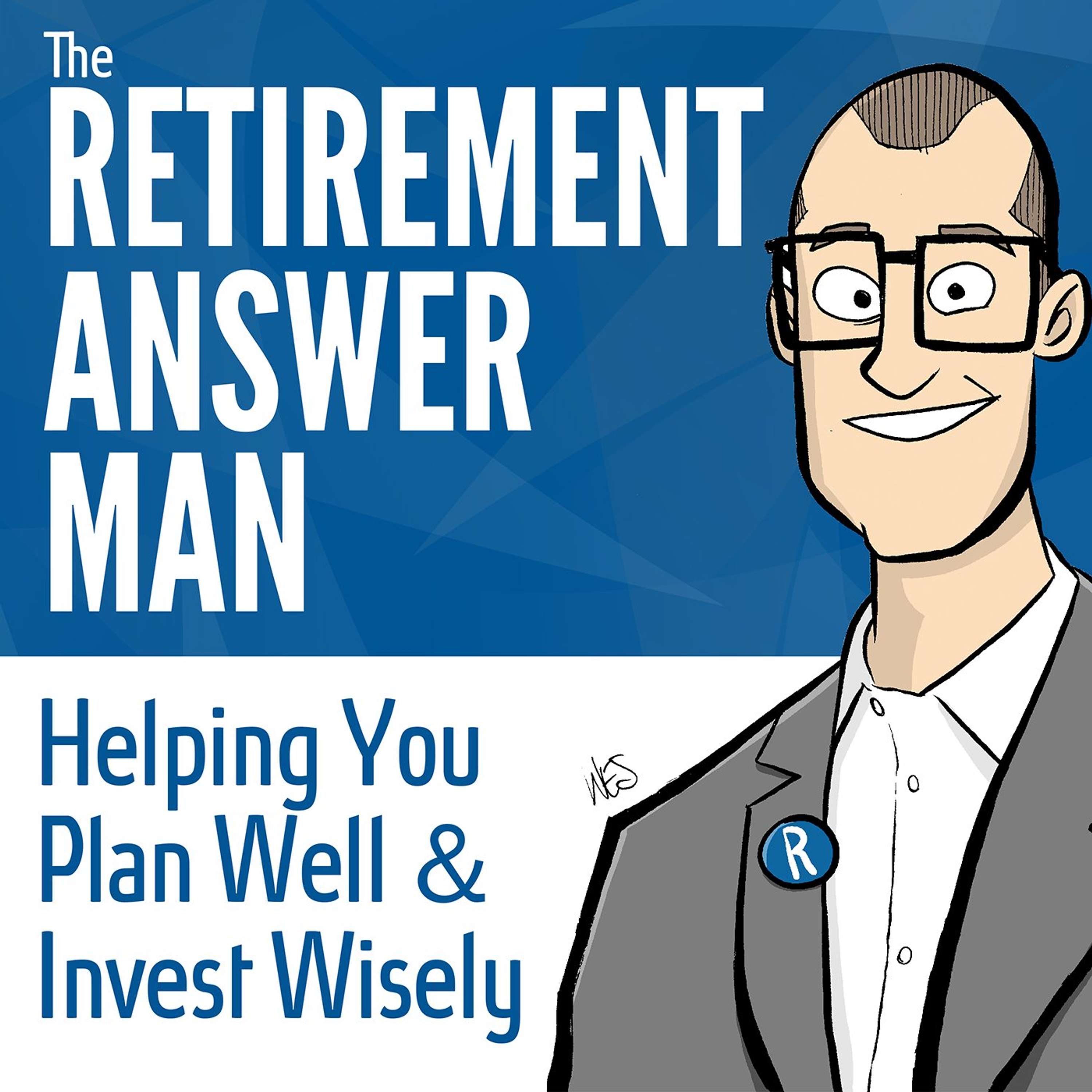
#130 - Retirement Age Is Approaching! Are You Going to Be Secure In Your Older Years?
Retirement age is approaching faster than most of us want to admit. It will be here before you know it - and one of the most common things I hear from people who have moved into their retirement years is this: “I don’t feel very secure.” I used to think of retirement age security as an issue of dollars and cents, but it’s more than that to me now. I’ve come to understand that whether or not you feel secure during retirement has more to do with the way you’ve approached your retirement planning. On this episode I’m going to chat with you about what it means to have a secure retirement, unpack some distressing news about a pension fund company going belly up, and give you some homework for what you can do to toward more security in your retirement years. A huge pension insurer is now broke! What now? Well the news came out this last week that a major insurer of pension funds all across the United States is now broke. Now we could discuss how something like that is even possible but in the end we’d only be more frustrated. I think it’s a better approach to figure out what we do now that it’s happened. It is reality after all. So on this episode I walk through 6 possible options that will be tried to fix the problem this news reveals and will show you why I think it’s going to take a combination of all 6 to right the ship. You can hear it by clicking “play” on this episode. What is YOUR ideal retirement age? So many people look forward to retirement - and who can blame them? A lifetime of hard work and providing for a family definitely puts a person in a place where they’re ready for a break. But it’s a common thing for the retirement age of many people to be delayed simply because they’ve not done adequate planning for the inevitability of retirement. I’m here to help you avoid that if I can. On this episode we’re addressing the subject of having a secure retirement and I’ve got some suggestions that may be of interest to you, so I hope you take the time to listen. SIPC insurance? FDIC insurance? What the heck does that mean? On this week’s “What does that mean” segment I’m diving into the insurance ocean to give you an idea of what all these acronyms and insurance companies do, why they exist, and the difference it makes to your investments and bank accounts. If you’ve ever wondered about the limits on these insurances - I’m going to tell you. If you’ve ever asked yourself if you should have multiple accounts to keep them all under the limits - I’m going to give you my take on that as well. I think you’ll learn a lot from this one, so be sure to listen. Regular conversations and adjustments make for a more secure retirement. The clients I’ve worked with who make a regular commitment to discussing and tweaking their retirement funds and investments are the ones who typically seem to be more content and happy during those golden years. If you are concerned about whether or not you’ll have a secure retirement, you might take a page from these experienced retirees. They know that communication and planning can do a lot to alleviate fears because it helps them know the facts about their retirement to counterbalance the fears. You can hear more about how these savvy retirees handle things in stride, on this episode. OUTLINE OF THIS EPISODE OF THE RETIREMENT ANSWER MAN [0:32] The issue of security during retirement: more than dollars and cents.[2:59] Today’s episode will cover insurances, etc. to help you be secure during retirement.HOT TOPIC SEGMENT [4:11] A huge pension insurer is now broke. Liabilities are 27% over assets. Ouch![6:15] The implications and consequences of the news.[8:20] The possibility of a government bailout (or a combination of various options).WHAT DOES THAT MEAN? SEGMENT [10:24] Today’s term: SIPC Insurance (Securities Investor Protection Corporation).[13:20] Examples of how SIPC protection might be protected.PRACTICAL PLANNING SEGMENT [14:44] Three listener question.[15:00] QUESTION ONE: Can you explain the limits on FDIC insurance? Should I break up my accounts for the sake of insurance?[23:02] QUESTION TWO: Social security benefits for spouses when one takes the benefit early and the other spouse passes away?[24:40] QUESTION THREE: Can my wife access her 401K now that she’s 55 even though she lost that job at age 54?THE HAPPY LAB SEGMENT [26:03] My happiest clients are the ones who make adjustments as they go.TODAY’S SMART SPRINT SEGMENT [27:52] Get out your calendar and schedule a series of conversations with your spouse or yourself about what you’re trying to accomplish. RESOURCES MENTIONED IN THIS EPISODE www.FDIC.orgContact Roger: http://www.rogerwhitney.com/retirementanswers/Roger’s retirement learning center: www.RogerWhitney.com/learnThe Retirement Answer Man Facebook page: www.Facebook.com/RetirementAnswerMan
31:2303/08/2016
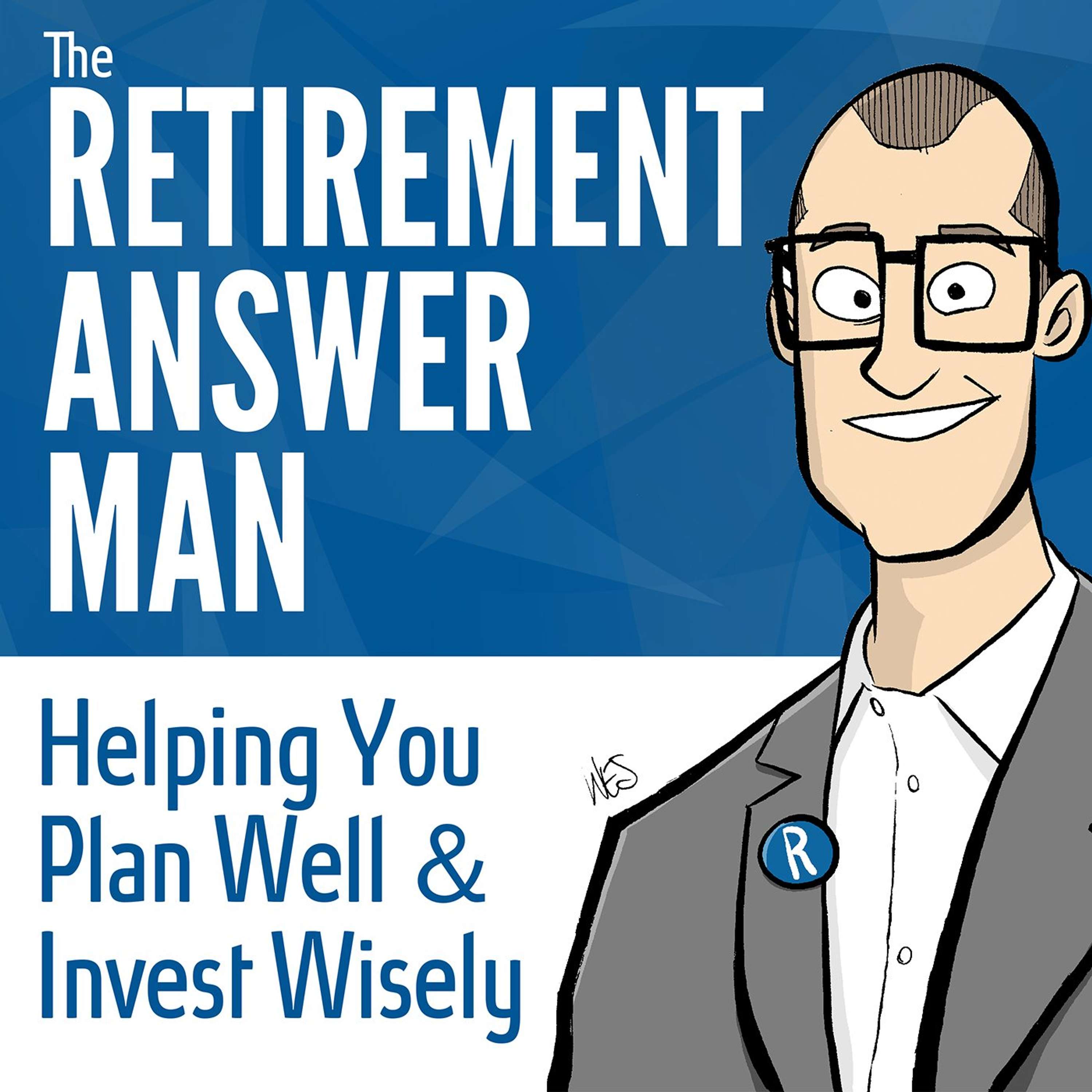
#129 - How to Avoid the Trap of Emotional Investing, with Dr. Daniel Crosby
One of the biggest pitfalls of being an investor is that we tend to make emotional investing decisions. What does that mean? Take a scenario for a moment: the market takes a serious dip and stock prices plummet. The tendency the majority of investors have is to rush to their advisor and try to make changes in order to mitigate the impact of the downterm. But if that investor was guided wisely in the first place their investment strategy should have taken into consideration that downturns would happen. That means there’s no need for an emotional reaction that could cause more harm than good. On this episode of The Retirement Answer Man I’m chatting with Dr. Daniel Crosby about his book, “The Laws of Wealth” and we’ll unpack the best ways to avoid making emotional investment decisions. Behavioral Finance: What the heck is that? The field of behavioral finance is a fairly new area of study that endeavors to make sense out of the actual behaviors we humans engage in within the financial realm of our lives. And naturally, it includes the issue of emotionally driven decisions we make about our finances. As behavioral finance experts like today’s guest, Dr. Daniel Crosby investigate the things that go into our financial decisions they’re discovering many helpful principles that we can apply to keep ourselves from making decisions that feel like they are in our best interest, but really aren’t. I hope you listen to this episode. There’s lots of insight into the reasons behind our financial decisions in it, and you can make better decisions as a result of applying what you learn. You control what matters most when it comes to your money. One of Dr. Daniel Crosby’s laws of wealth that can go a long way toward helping you avoid emotional investing decisions is that you are able to control the things that matter the most when it comes to your money. It’s not about the economy and things outside your control, it’s about your end goals - those things you’re aiming at over the long haul. Your decision to create an investment strategy and stick to it day by day even in the face of economic issues that arise, can help you to stay in control over the long haul and actually reach those goals. Dr. Crosby shares a wealth of good information on this episode to help you improve your financial mindset, so be sure you listen. Emotional investing is why you need to remove yourself from the process. It may sound counterintuitive for me to say that you need to remove yourself from the investing process - but I really mean it. I don’t mean that you should just hand all the decisions over to someone else. What I mean is that once you have determined a process that makes the most sense for your investment goals, you should get out of it and let it run independent of you. That’s where your advisor or financial professional comes in. They are the ones who stick to YOUR plan, at your direction, without you having to think about it. They are also there to caution you when the urge to step in and change things arises. Those are the kinds of emotional decisions you don’t want to make so that you can reach your long term financial goals. You need a financial advisor, but not for the reasons you think. Most people tend to think that financial advisors are better at predicting the future of the markets or possess specialized knowledge that will help you make better stock picks and investment decisions. While there may be a very small amount of that involved, most of the time it’s not the case. A good financial advisor should be in the loop simply because you need them to be your point of accountability and voice of reason in the event that you want to make an emotional decision based on current conditions. They are there to talk you down from the ledge and keep you on track with the financial plan you’ve established. Think of them like a personal trainer. They are there to keep you going when you want to quit or make a change. You can learn more tips like this on this great episode, so take the time to listen. OUTLINE OF THIS EPISODE OF THE RETIREMENT ANSWER MAN [0:47] How life is about moving onward and upward.HOT TOPIC SEGMENT [4:10] CNN’s “Fear and Greed” index is pretty high right now.WHAT DOES THAT MEAN? SEGMENT [6:00] What is “Behavioral finance?”[7:00] Why the optimism investing is usually based on is not a trustworthy metric.PRACTICAL PLANNING SEGMENT [8:53] My introduction of Dr. Daniel Crosby and today’s topic.[10:03] Why do we make poor decisions when it comes to money?[12:11] The way things used to be in the investing world and how we need to retrain ourselves.[15:46] Stepping past the emotional components of investment decisions.[20:16] Dr. Crosby’s 10 guidelines for managing wealth.[29:03] Why Dr. Crosby is often asked to say stupid things that he won’t say.[31:23] What investors should do to invest wisely for the future.THE HAPPY LAB SEGMENT [33:32] How we react to things that happen… and how it impacts happiness.[37:11] How being present during a difficulty impacts the way we react.TODAY’S SMART SPRINT SEGMENT [37:53] Write down your investment process - a step by step process you always follow.RESOURCES MENTIONED IN THIS EPISODE Contact Roger: http://www.rogerwhitney.com/retirementanswers/Roger’s retirement learning center: www.RogerWhitney.com/learnThe Retirement Answer Man Facebook page: www.Facebook.com/RetirementAnswerManCNN Money Fear & Greed Index Behavioral finance definition Dan Crosby’s book “The Laws of Wealth”
40:0627/07/2016
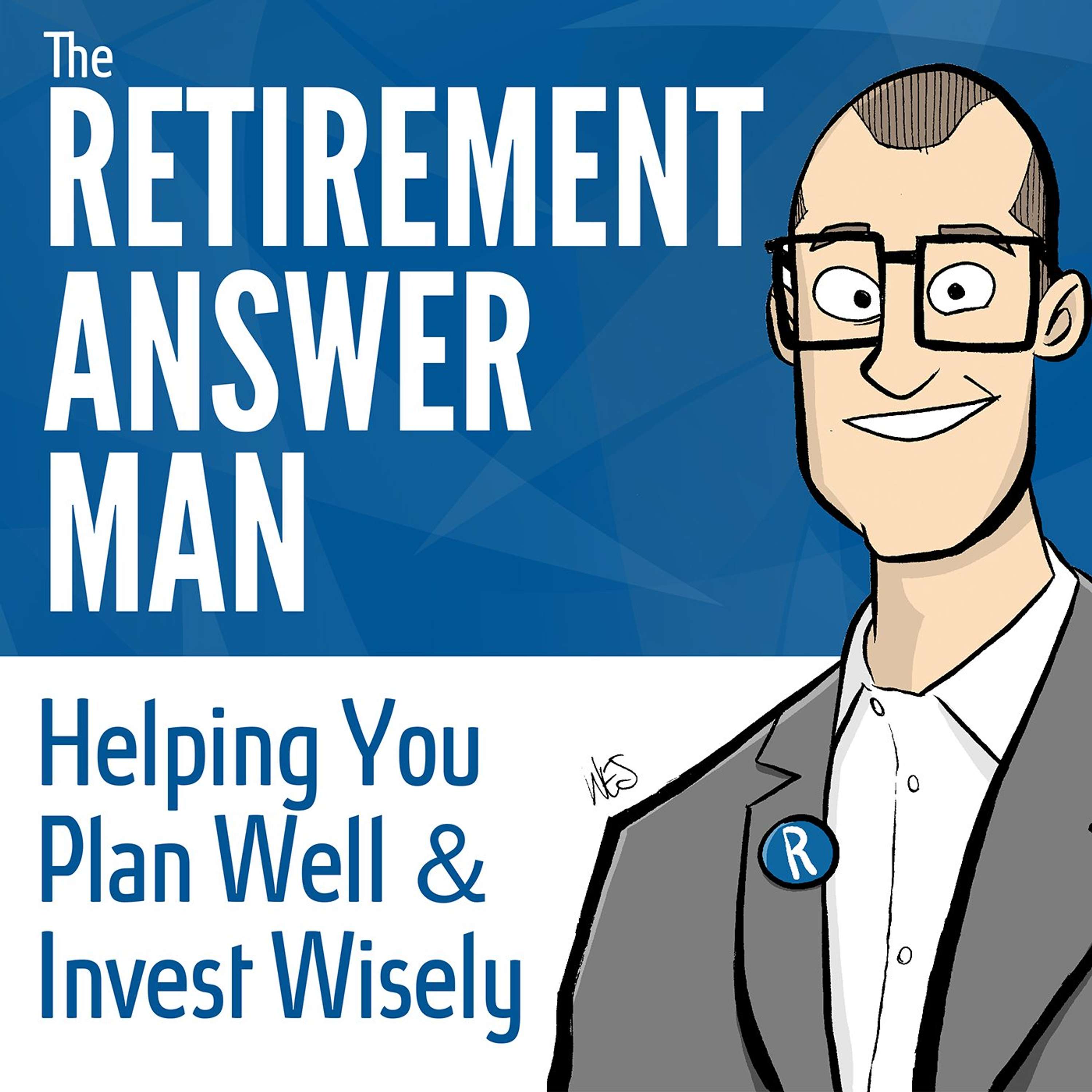
#128 - Here’s How Technology Will Help You Combat Loneliness in Retirement
One is the loneliest number, right? It’s hard to think about retirement without honestly assessing the possibility that loneliness could be a very real aspect of it. But does it have to be that way? Not if I can help it! I’m Roger Whitney, the Retirement Answer Man and on today’s episode of the podcast we’re veering away from our normal financial topics to continue investigating the ways that technology can help us during our retirement years. Today’s topic is how we can combat loneliness by the use of technology - and we’re not talking about robot companions here, we’re talking about how tech can help you build true connections with real people. This one is going to be fun! What is chronic loneliness? Could you experience it as you grow older? Fortune Magazine recently published an article that demonstrated that the chronic loneliness (ongoing loneliness) is becoming epidemic in certain demographics of the population. It only make sense that as we age - and those closest to us may be passing away - we could be left right in the middle of those statistics. I don’t want that to happen to you, so I’ve asked my friend Doug Goldstein to brainstorm with me a bit about how technology can be a helpful tool in keeping us out of the pit of loneliness as we enter and live in our retirement years. If you find yourself resistant to the topic of technology, this conversation will be a bit different, so I dare you to give it a listen. Have you considered how Facebook can help you stave off loneliness? With all of the things you see on a typical Facebook feed - from stupid cat videos to inspirational quotes - it’s easy to forget that it is part of what’s called “social” media. The original intention was to help people connect with each other, to amplify existing relationships. And user stats show that the over 65 crowd on Facebook is growing. That’s really good news. It means that you can use that simple platform to stay connected with friends, family, and even find groups of people that share the same interests as you - both now and as you enter and thrive during retirement. Find out how my friend Doug and I view that possibility, on this episode of the Retirement Answer Man. Are you ready for a baby step into the realm of technology - for the sake of beating loneliness? A couple of weeks ago I was eager to see the deck that my son-in-law has been building so he did something really amazing - he invited me to a video call so I could actually get a digital tour of the work he’d been doing. It was great - and easy - for me to be a part of his life in a way I couldn’t have just a few years ago. Video calling is pretty mainstream these days and the learning curve is actually quite low. If you want to learn a bit about technology you might want to consider Skype or Facetime as video options that are easy to learn and can help you stay connected to the people who care about. Social media won’t help if you aren’t social in the first place. My friend Doug Goldstein makes a great point on this episode of The Retirement Answer Man - if you are not skilled at good communication and personal interactions, improving those skills is really the first step you need to take in order to combat the possibility of loneliness during your retirement years. Relationships are built on communication, so it only makes sense that improving your ability to connect with others through communication will make your ability to connect via social media or other technologies that much easier. You can find out more about this topic of technology, retirement, and loneliness by listening to this great conversation. OUTLINE OF THIS EPISODE OF THE RETIREMENT ANSWER MAN [0:46] I’ve often felt lonely during my life - and how it relates to this episode.WHAT DOES THAT MEAN? SEGMENT [3:54] Today’s term: Chronic loneliness.[5:15] Why chronic loneliness is one of the biggest risks of retirement.HOT TOPIC SEGMENT [5:56] A Fortune Magazine article about the chronic loneliness epidemic.PRACTICAL PLANNING SEGMENT [8:22] Introduction of Doug Goldstein and the subject of technology and retirement.[9:55] The reality of retirees who become the “last man standing.”[12:19] The importance of renewing and refreshing networks of friends.[15:20] How Facebook helps the over 65 crowd stay connected.[21:45] The usefulness of meetup.com.[26:40] The first baby step into the world of technology: video calls.[29:00] Looking at virtual reality technology.[33:23] The importance of basic communication skills.THE HAPPY LAB SEGMENT [33:59] Go out and make some friends!TODAY’S SMART SPRINT SEGMENT [34:28] Call one of your best friends you’ve not spoken to in a while. RESOURCES MENTIONED IN THIS EPISODE Fortune Magazine article on chronic lonelinessGoldstein on Gelt Podcastwww.MeetUp.com - search for groups in your area by locationStrava AppFitbitSkype or FacetimeContact Roger: http://www.rogerwhitney.com/retirementanswers/Roger’s retirement learning center: www.RogerWhitney.com/learnThe Retirement Answer Man Facebook page: www.Facebook.com/RetirementAnswerMan
36:2020/07/2016
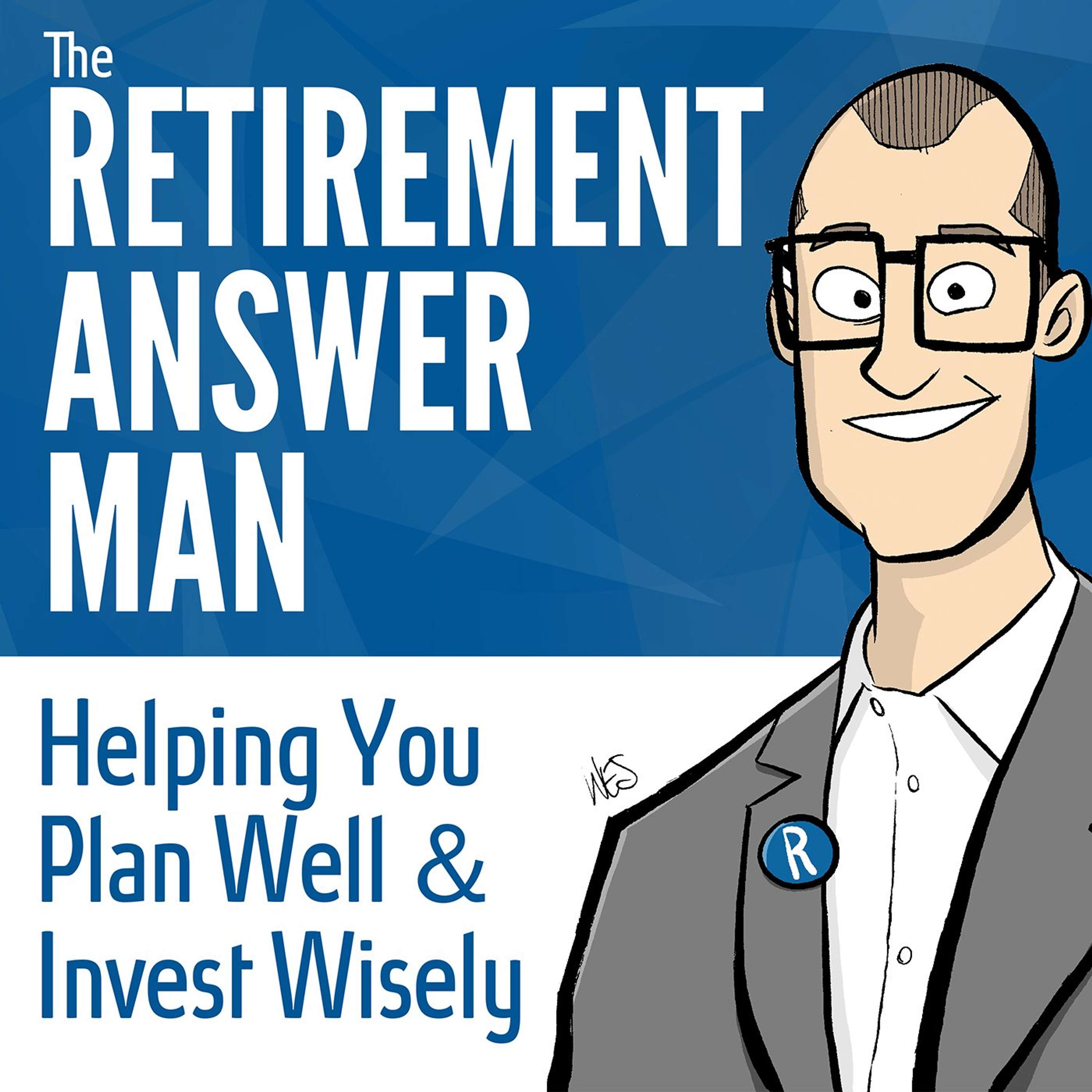
#127 - Here’s How Technology Will Impact Your Mobility During Retirement
Do you remember your very first car? Do you remember the feeling of freedom and responsibility it gave you? The kind of mobility that comes from having and driving your own vehicle is something that many of us have been enjoying for 30 to 50 years. Have you taken the time to consider the impact that it could have on your life if you were to suddenly (or eventually) be limited in those ways because of declining eyesight, medications, hearing issues, etc.? Those are not things we enjoy thinking about but that we have to consider when it comes to planning for retirement. On this episode I’m chatting all about mobility in retirement and how technology can impact that need in the future. Ride Sharing may sound strange, but it really works! I was recently in Chicago for a conference and whenever I had to go anywhere I used a service called Uber. It’s a way to use a smartphone app to make a connection with a driver in the area who is willing to take me where I need to go. It was a great experience overall and there are many safeguards, including reviews, that enable the service to be trustworthy and dependable for you and can save you the hassle of having to drive or removing the actual need to drive. The reality is that if you’re willing to learn a very simple app, you can have a great opportunity for mobility as you enter retirement even if you’re not able to drive. Hear more about how it can work for you, on this episode of The Retirement Answer Man. Retirement cost savings because you don’t need your own automobile. Betcha didn’t think about that. If you are willing to embrace and use services like Uber and Lyft to remain mobile as you move into retirement you may be able to save money in other areas that you haven’t considered. If you don’t need an automobile, you’ll save on title and registration fees, safety or emissions inspections, auto insurance, gasoline, and the actual cost of purchasing the vehicle. Those savings could not only add to your checkbook but could also increase your quality of life because you have less income tied up in things you don’t really need. I’m going to chat a bit about that on this episode so I hope you’ll listen with an open mind that is looking at the possibilities. Self Driving cars are not the wave of the future - they are here now. I’m not quite sure that I’m ready to jump into a self driving car just yet, but they are out there on the streets already. In fact, Google has been working on this for many years and has had a fleet of self driving cars that have logged hundreds of thousands of miles on California roadways. In the near future it’s quite possible that self driving cars are the norm rather than the exception and it would be good for us to think now about how we are going to respond when that day comes. Are we going to take advantage of the benefits such technology could bring, or are we going to be a stick in the mud. Afterall, air travel was once unheard of and considered unsafe… but look at us now! Will you embrace the benefits technology can bring to your retirement or will you be the one to hate it because it’s new and unfamiliar? The stereotypical impression people have of us “old folks” is that we’re resistant to technological changes - like computers, smartphones, etc. I wonder if that’s really true? The wisdom we, as the older generation, have could enable us to see that the benefits of many of the technologies that are on the horizon far outweigh the learning curve or risk factors that we think are involved in adapting ourselves to this “new age.” I wonder if you will be willing to learn, to grow, and to benefit from it as you enter your retirement years? I plan on doing my best to stay flexible, learn, and get the most out of the options that come my way. Who knows, it might even make me happier and enable me to enjoy retirement all the more. OUTLINE OF THIS EPISODE OF THE RETIREMENT ANSWER MAN [0:33] Roger’s introduction to this episode of the podcast.WHAT DOES THAT MEAN? SEGMENT [4:13] Today’s term: Driverless CarHOT TOPIC SEGMENT [6:04] The first death from a driverless car.[7:17] The autopilot system involved in this accidentPRACTICAL PLANNING SEGMENT [8:32] Most of the things I’ve mentioned so far are already here.[9:21] The need for mobility in the retirement years and how it impacts quality of life.[11:10] The devastating impact of losing mobility.[12:32] How technology can improve mobility in our cars.[18:15] Car sharing options that exist now and will be prevalent in the future.[25:20] How driverless cars could be a solution to mobility issues.[28:30] Grocery getting services you may be interested in.[32:35] Are you going to embrace these new technologies to make your life easier?[33:45] Emails from listeners.RESOURCES MENTIONED IN THIS EPISODE The MIT Age LabUberLyftInstacartPeapodContact Roger: http://www.rogerwhitney.com/retirementanswers/Roger’s retirement learning center: www.RogerWhitney.com/learnThe Retirement Answer Man Facebook page: www.Facebook.com/RetirementAnswerMan
37:1413/07/2016
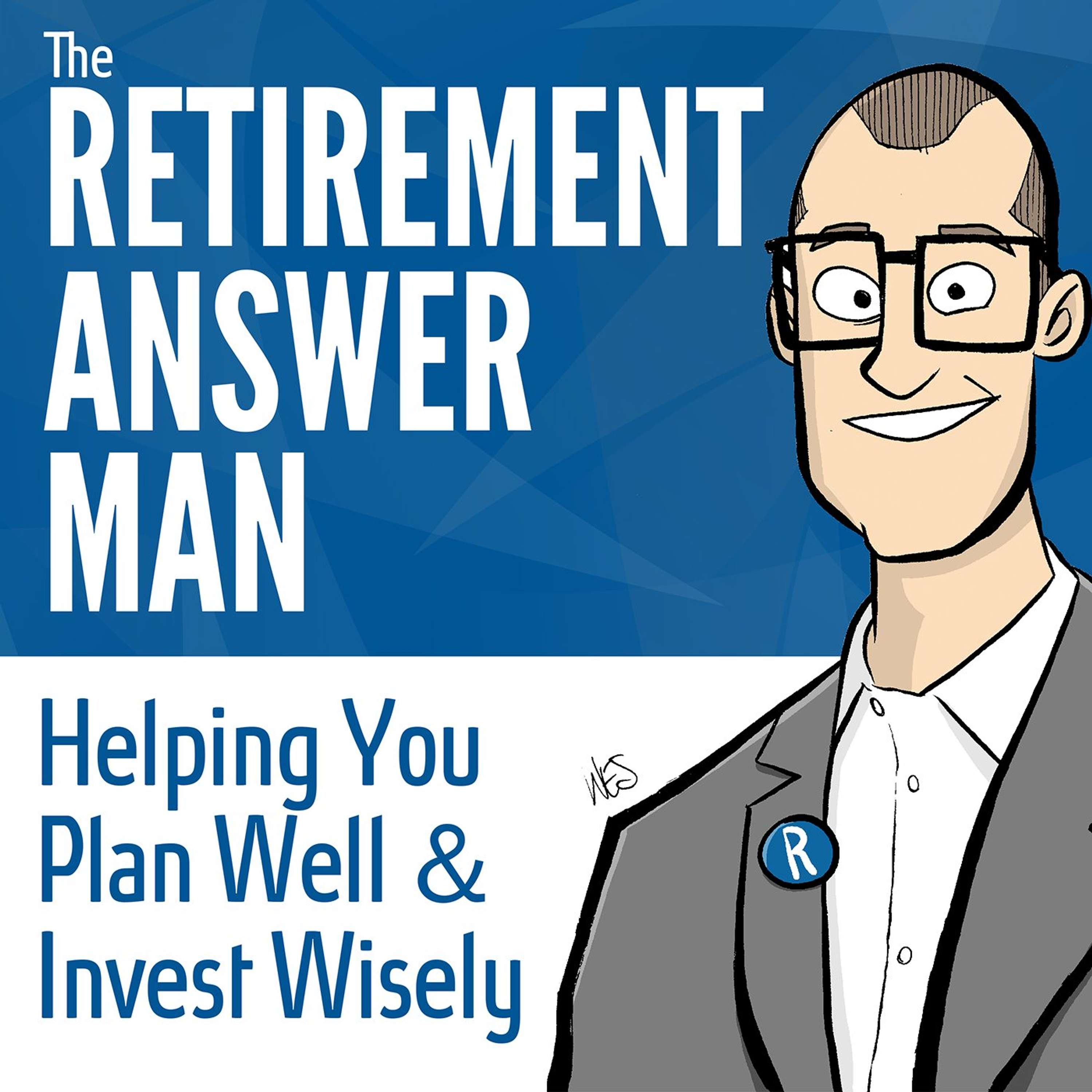
#126: Here’s to the Future: How Technology Will Change Your Retirement
It seems funny to think about but those old Jetsons cartoons from the 1960s and 1970s are actually becoming more and more reality in the present day. More and more opportunity and concern is arising from the advances in technology that we see happening around us. I believe that many of these advances can be used to maximize our lives during retirement, giving us a happier and more comfortable life in those years when most people think of life winding down. For the next few episodes of The Retirement Answer Man I’ll be chatting about some of those technological advances and giving you thoughts about how you can take advantage of them to make your retirement the best it can be. What the HECK is the Internet of Things? Have you heard the term, “Internet of Things?” It’s a phrase that’s used these days to talk about many of the technological devices that are created to work together through computer networks to do all kinds of convenient and helpful things - from turning on your lights automatically, to adjust the temperature in your home, to keeping an inventory of the items in your refrigerator. It may sound strange to think of your home being automated in that way but as you move into retirement, it may not be such a bad thing. On this episode I’m going to walk you through some of the ways those kinds of advances can benefit you, giving you a happier and safer retirement season. Samsung has invested $1.2 million in the Internet of Things. Why would such a large company invest such a huge amount of money into this “Internet of Things” thing? It’s because the IOT is truly the wave of the future. Things we use every day are becoming more and more interconnected (it’s like a television remote times 100) and the leadership of Samsung sees the potential for new products and services that will not only help the consumer but will also increase their bottom line. This episode of The Retirement Answer Man begins a short series focusing on the technological advances that will be a significant part of our retirement years, with a focus on the things that could give us greater security, mobility, and independence during those years. Is technology our friend or an enemy to be avoided? We’ve all seen those doomsday movies (Terminator, The Matrix) where technology has become “alive” and the machines have taken over the world. Those movies represent the fears that many of us feel about the path technological advances could take us - but it’s only one perception of what could occur. I tend to think there will be many more benefits to the rise of technology than we are even able to imagine… and that there’s no reason to be afraid. On this episode I begin a series of episodes highlighting some of the ways I see the advances in technology that are happening all around us becoming a benefit to us in the retirement years ahead. You might be surprised at some of the things that already exist and the ease with which they could help you maintain mobility, independence, and personal safety as you age. Interested? Be sure to listen. Today’s S.M.A.R.T. Sprint: Try out at least one automated service. As human beings we often become afraid as the comfort of what we know is disrupted by change. But if we never change then we never grow - and I for one don’t want to stop growing. On this episode of The Retirement Answer Man I describe many automated services or products that improve the quality of life of their users and could be of great benefit to retirees. My challenge today is for you to choose one of the services or products I mention and give it a try. I believe that as you experience the benefits of some of these services or products for yourself, you’re going to find the benefits far outweigh the fears you might have. So be sure to listen, pick out a product or service you are willing to try, and give it a shot! OUTLINE OF THIS EPISODE OF THE RETIREMENT ANSWER MAN [0:24] My welcome and introduction to this episode of the podcast.[3:00] A preview of the next few episodes.WHAT DOES THAT MEAN? SEGMENT [4:00] Today’s term: “Internet of Things.”HOT TOPIC SEGMENT [5:37] Samsung is investing $1.2 million in the Internet of Things.[6:00] Why would such a large company make that kind of investment?PRACTICAL PLANNING SEGMENT [7:44] Why do you enjoy technology? (or do you?)[9:13] The MIT Age Lab - a look at technology for older people.[9:55] 3 questions that predict the quality of your life in the future?[12:22] How is technology going to help us maintain independence in our own homes?[23:30] Services that could help us remain independent as we age.[33:00] Tying things together: Amazon Echo.THE HAPPY LAB SEGMENT [37:33] What’s the PURPOSE of living longer?[38:45] Purpose can be large or small.TODAY’S SMART SPRINT SEGMENT [39:55] Test out a couple of the services I mentioned on this episode.RESOURCES MENTIONED IN THIS EPISODE The MIT Age LabThe NEST Thermostat A Smart MattressSmart Doorbells (with cameras) Smart LightbulbsSmart Carpet Smart Refrigerators Roomba Automatic Lawn MowersTask RabbitBlue ApronUberEatsHelloAlfredwww.JoinHonor.com Amazon EchoContact Roger: http://www.rogerwhitney.com/retirementanswers/Roger’s retirement learning center: www.RogerWhitney.com/learn The Retirement Answer Man Facebook page: www.Facebook.com/RetirementAnswerMan
41:5706/07/2016
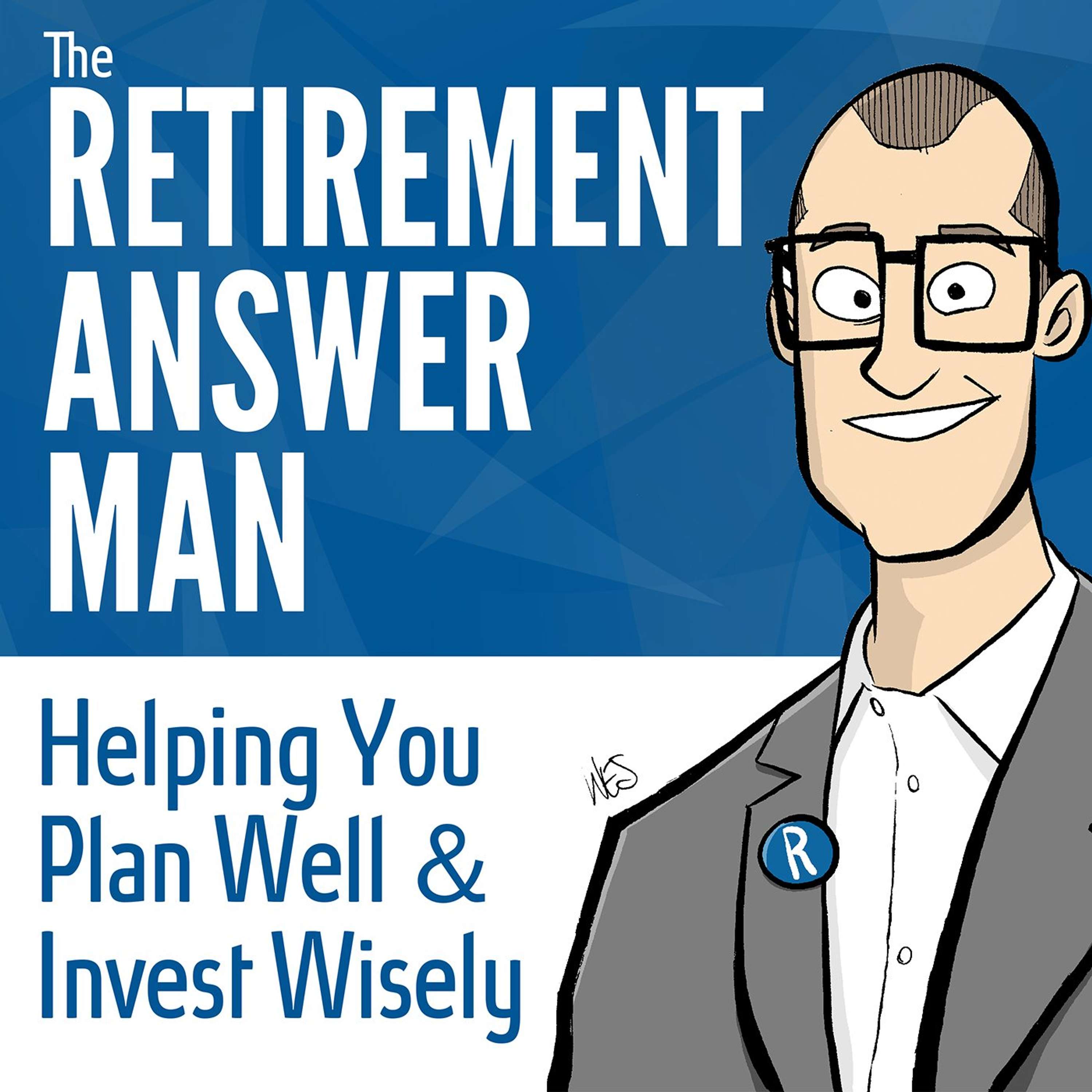
#125 - 5 Ways BREXIT Could Impact You and Your Retirement
Hey, it’s me, Roger Whitney - the Retirement Answer Man - and I’m here to help you not only plan for a happy and healthy retirement season but also to live a happier and healthier life now as you move toward retirement. On this episode we’re going to tackle the volatility in the markets as a result of the news that Great Britain has voted to leave the European Union.There are many things to consider having to do with lifestyle, investing, and retirement planning that you need to think through, and I’m going to help you do that on this episode of The Retirement Answer Man podcast. BREXIT is in the news. A surprise vote that has turned the markets on their heads (if markets had heads). As you probably know, the United Kingdom’s vote to leave the European Union was a surprise to almost everyone. Even the betting pools got this one wrong. And if there’s one thing the markets hate - no, they despise - it’s surprises of this nature. That’s why everything is in turmoil and why the financial commentators can’t stop talking about it. So what does it mean for you and your retirement planning? That’s what really matters to me, so I want to address some of the things I see on the horizon because of this vote and help you think through the issues that could most impact you. Uncertainty may not sound like a financial term, but it impacts almost everything about financial planning. Almost everything that financial experts and prognosticators do for their clients is aimed at culling uncertainty from their investment strategies. I think we can all understand that - we all want to know for sure that something good is coming our way - but the sad truth is that it simply doesn’t work that way. In light of that fact how should we view the issue of uncertainty in financial and retirement planning? I’m going to take on that subject on this episode to enable you to make wiser decisions with your overall investment and retirement planning strategy, on this episode. In light of the uncertainty in the financial markets here are 5 things you can do to maximize your own retirement. BREXIT is just one example of the kind of things that can happen to throw the financial markets into a tizzy at any moment. It’s those kinds of things that get us thinking seriously about the security and stability of our retirement funds. But it’s not only our retirement finances that we should be thinking about, this kind of uncertainty can point us toward wise planning in other areas of our lives as well. On this episode I walk you through the basics of a presentation I recently gave that encourages you to implement some SMART sprints in your life - small steps that make big impact - to prepare for retirement more wisely even in the face of uncertainty. It pays more than ever to work part time during retirement. Most people retire because they are ready to be done with the 9 to 5 rat race that they’ve been about for the past 30 to 40 years. But keeping a part time job that fits your particular criteria is actually one of the most logical and powerful things you can do to fuel a happy retirement. That may sound counterintuitive but if you stick with me through this episode I’ll show you exactly what I mean. It’s on this episode of The Retirement Answer Man. OUTLINE OF THIS EPISODE OF THE RETIREMENT ANSWER MAN [0:31] My introduction to this episode and the topics discussed.[1:30] How to get “6 Shot Saturday” from me.WHAT DOES THAT MEAN? SEGMENT [2:56] Today’s term, “Uncertainty.”[5:16] How uncertainty impacts your employment.[6:48] 90% of the financial industry capital is spent trying to avoid uncertainty.[7:31] Why your advisor needs to quit trying to give you perfect clarity and instead help you manage it.HOT TOPIC SEGMENT [10:16] The United Kingdom voted to leave the European Union.[12:15] Why did Britain vote to leave the EU?[13:55] Why I say that the markets hate surprises like this.[15:04] What happens now?[16:57] What worries are coming up as a result?PRACTICAL PLANNING SEGMENT [18:57] 5 things the BREXIT means for your retirement.[19:45] Why uncertainty is here to stay and we need to deal with it.[20:22] SMART sprints where we can make changes.[22:22] Focusing on the relationships in your life.[24:30] Health is a second area for a SMART sprint.[26:53] A SMART sprint in your professional life.[28:49] The financial area needs a SMART sprint of its own.[30:30] Why cash is now king.[34:08] It pays more than ever to work part time during retirement.[36:46] The European markets may be a great buy.[38:14] How you manage risk could be impacted by BREXIT.THE HAPPY LAB SEGMENT [51:30] Who cares about the stuff?TODAY’S SMART SPRINT SEGMENT [53:00] Monitor your spending over the next week to assess your vanity level.RESOURCES MENTIONED IN THIS EPISODE The Cliff Ravenscraft ShowContact Roger: http://www.rogerwhitney.com/retirementanswers/Roger’s retirement learning center: www.RogerWhitney.com/learnThe Retirement Answer Man Facebook page: www.Facebook.com/RetirementAnswerMan
55:0729/06/2016
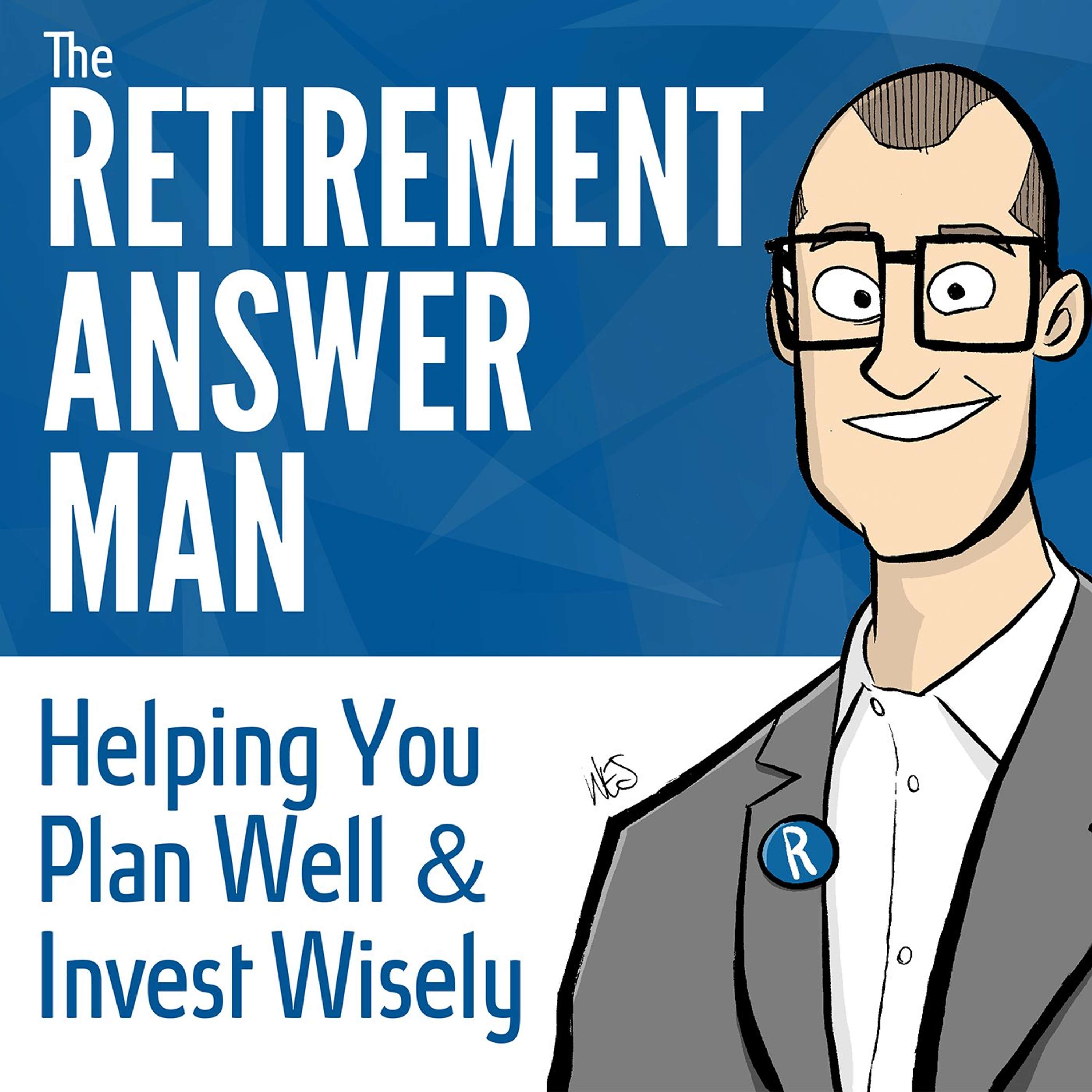
#124 - Why You Should't Be Afraid of Yes
Today is a day to say “Yes” to something. I mean it. There are so many opportunities out there, so many experiences to enrich your life. What could happen if you took the time to say “yes” to one of those opportunities? You’ll only know if you do it. I’m so thankful you’ve joined me today. We’re going to cover some listener questions today about caring for a dependent adult child as retirement nears, combining retirement accounts, and taking distributions from retirement accounts when you’re blessed to retire before the normal retirement age. And of course, we’re going to talk about the power of saying, “yes.” The term, “Brexit” is in the news lately. What is that all about? You may have heard that the nation of Great Britain is considering a move away from the European Union, an economic affiliation of nations that use a shared currency, the Euro. The voters of Britain are set to vote this week as to whether their country will remain in the union. Today I’m going to cover a small bit of how this is impacting the markets and how I think we should all think about this event. That’s in my “What Does that Mean” and “Hot Topic” segments, so be sure to listen if you’re concerned about those issues (and even if you’re not). I’m nearing retirement and have a developmentally delayed adult son. How do you recommend I think of retirement in light of that responsibility? This real world question came from a listener to the Retirement Answer Man and I’m happy to give the answer my best shot. It’s a matter close to my heart because I once had a relative in the same situation, but it was back in the early to mid part of the previous century when people born with disabilities were often shuffled off to an insane asylum. But that’s not what happened in my family, I had a valiant grandmother who took on the responsibility of caring for that relative and it changed the lives of everyone in the family. I give my best, most heart-felt suggestions to this listener today and think there are some lessons to be learned for all of us regarding how we care of those we love even when we’re retired and beyond. Can you combine your retirement accounts? And should you? On this episode of The Retirement Answer Man a listener wrote in to ask if he should combine his retirement accounts. He’s near retirement and doesn’t believe he’ll be making any additional contributions to any of the accounts, so he’s curious if there are advantages or disadvantages to putting all of those funds in one pot. It’s a great question and I recommend that he does combine them, for a handful of reasons. You can hear what those reasons are and how I got to that conclusion on this episode of the show. Retiring before the legal age for retirement account withdrawals? What do you do? On today’s episode a listener asks what he can do to make withdrawals from his retirement accounts since he’s been blessed to retire before the age he can legally make withdrawals from those accounts. That’s a situation most of us have never even thought about. There are actually some legal ways to make withdrawals from retirement accounts in a situation like that, and I cover them on this episode. But I also throw another consideration into the mix and challenge this listener to evaluate the ways he can continue to add value to society and provide a greater amount of security for his retirement at the same time - all while remaining flexible and “retired” in ways that matter. Curious? Take some time to listen to this one. 5 benefits that come from saying, “Yes.” There are two schools of thought on the issue of saying yes to things. Some people feel that they say yes to far too many things, stressing themselves out and overloading their schedules. Others, out of fear, don’t say yes to enough things, cloistering themselves away in a self-protective shell. As retirement nears, either one of these could happen and it really depends on your personality and background as to which you might do. On this episode I briefly tell of some of the great experiences I’ve gotten by saying “Yes” to things that I might not have normally said yes to. I end up with a challenge you won’t want to miss, so be sure you listen. OUTLINE OF THIS EPISODE OF THE RETIREMENT ANSWER MAN [0:24] Welcome to this episode of The Retirement Answer Man.[1:04] How you can get in on my Six Shot Saturday email resource.WHAT DOES THAT MEAN? SEGMENT [2:24] Understanding “Brexit,” a combination of “Britain” and “exit.”HOT TOPIC SEGMENT [3:47] Britain is set to vote about staying in the European Union or not.[4:37] The primary concerns relating to Britain’s possible move.PRACTICAL PLANNING SEGMENT [6:01] Listener question: Caring for a disabled adult child as retirement nears, any thoughts?[14:44] Listener question: 3 retirement accounts: I won’t be making any more contributions, can I combine all three?[17:03] Listener question: Can I access retirement accounts if I retire before 55 ½? THE HAPPY LAB [22:21] The power to say “Yes” and 5 great things that come from saying yes.TODAY’S SMART SPRINT SEGMENT [28:01] Say yes to something, even something you’re not quite sure about.RESOURCES MENTIONED IN THIS EPISODE Andy Traub’s Take Permission podcastContact Roger: http://www.rogerwhitney.com/retirementanswers/Roger’s retirement learning center: www.RogerWhitney.com/learnThe Retirement Answer Man Facebook page: www.Facebook.com/RetirementAnswerMan
29:3122/06/2016





